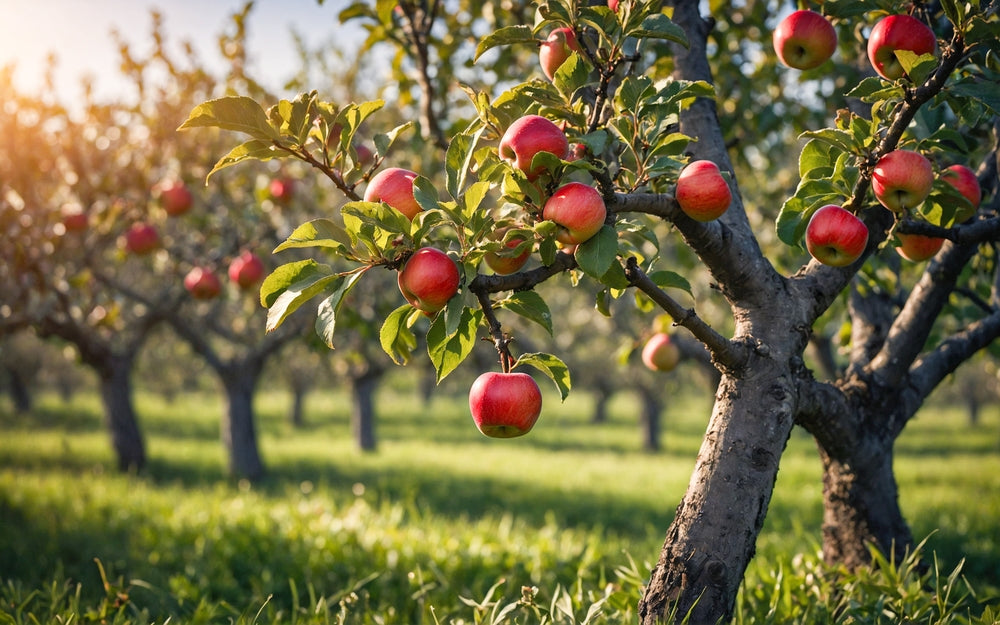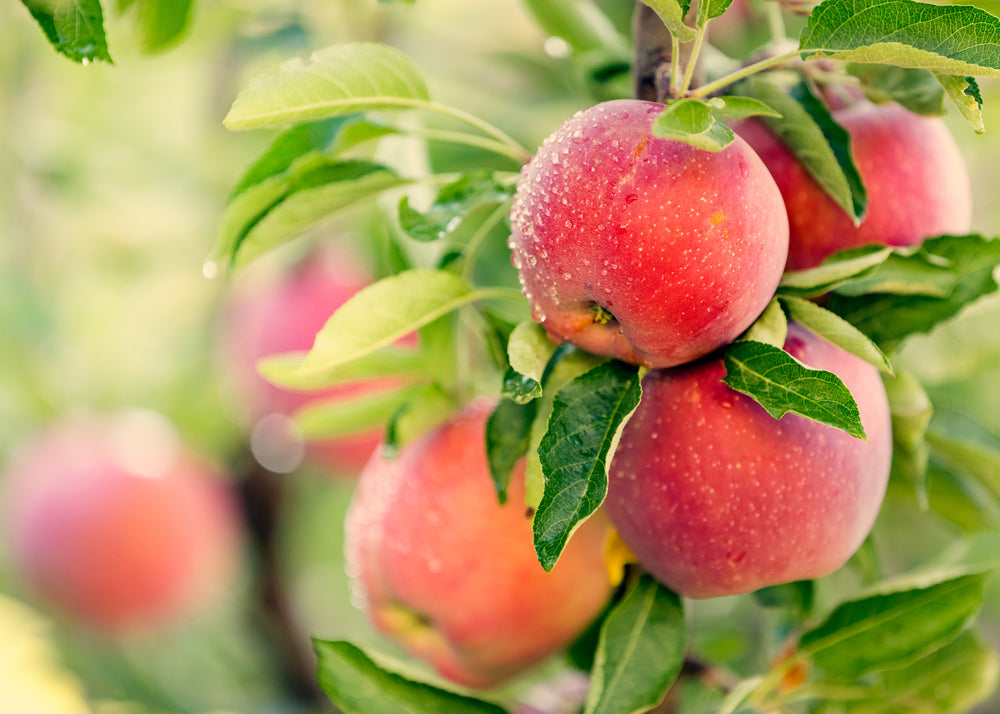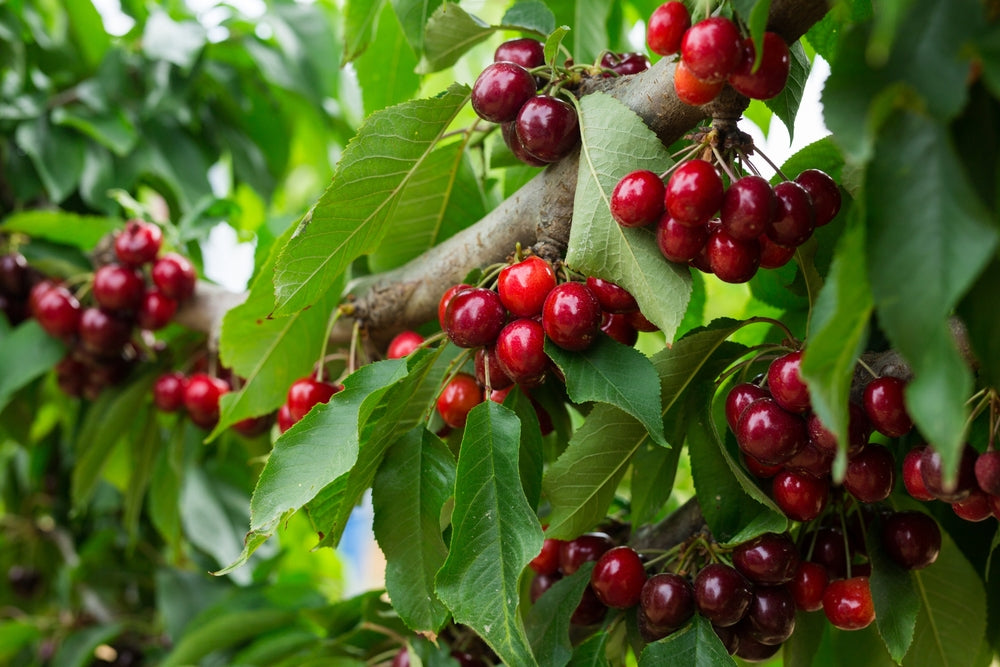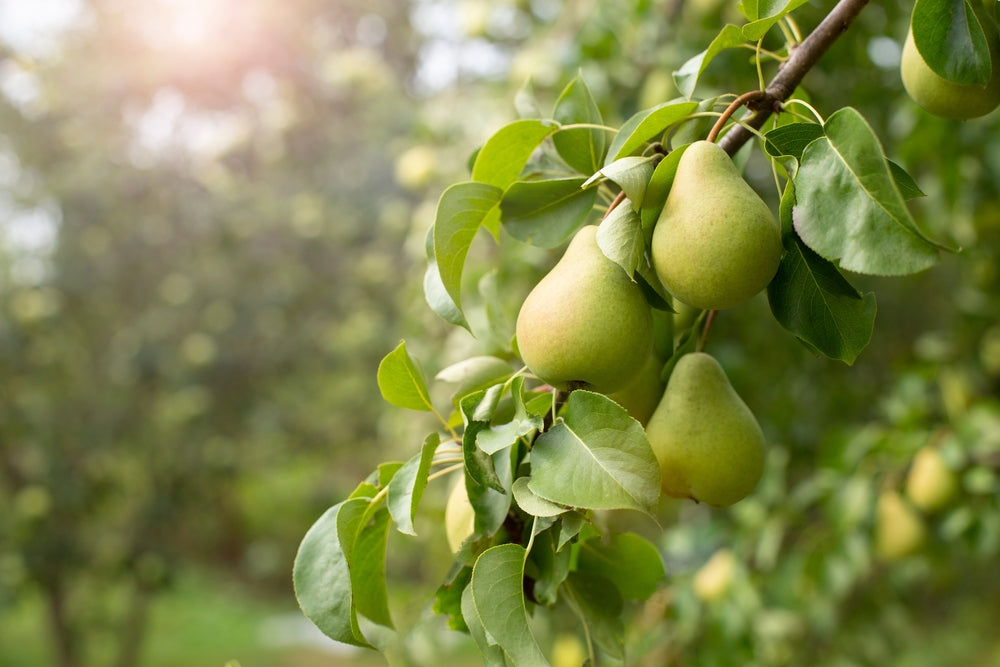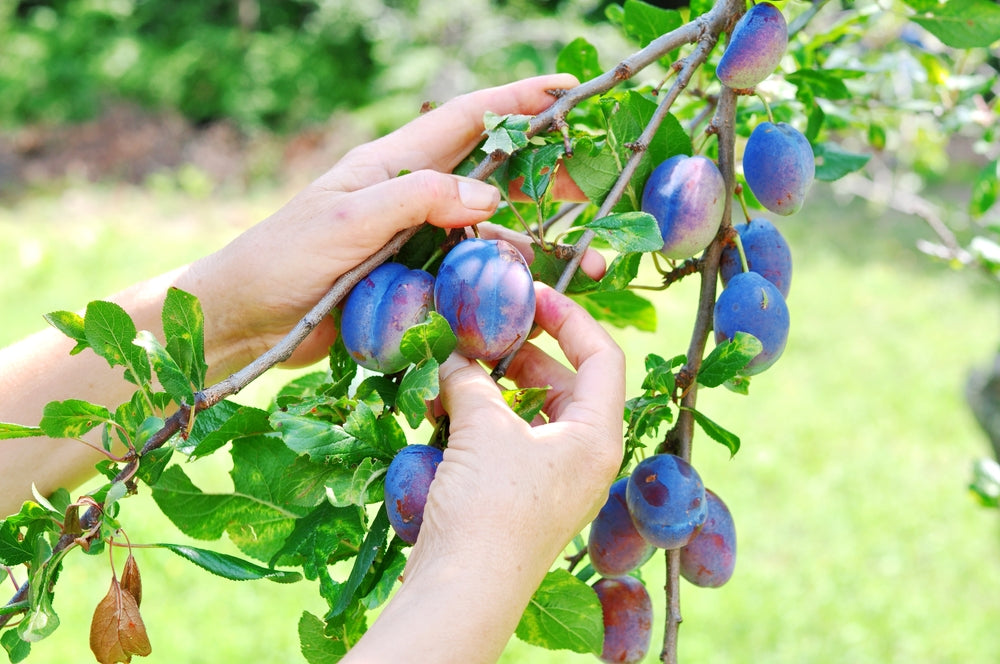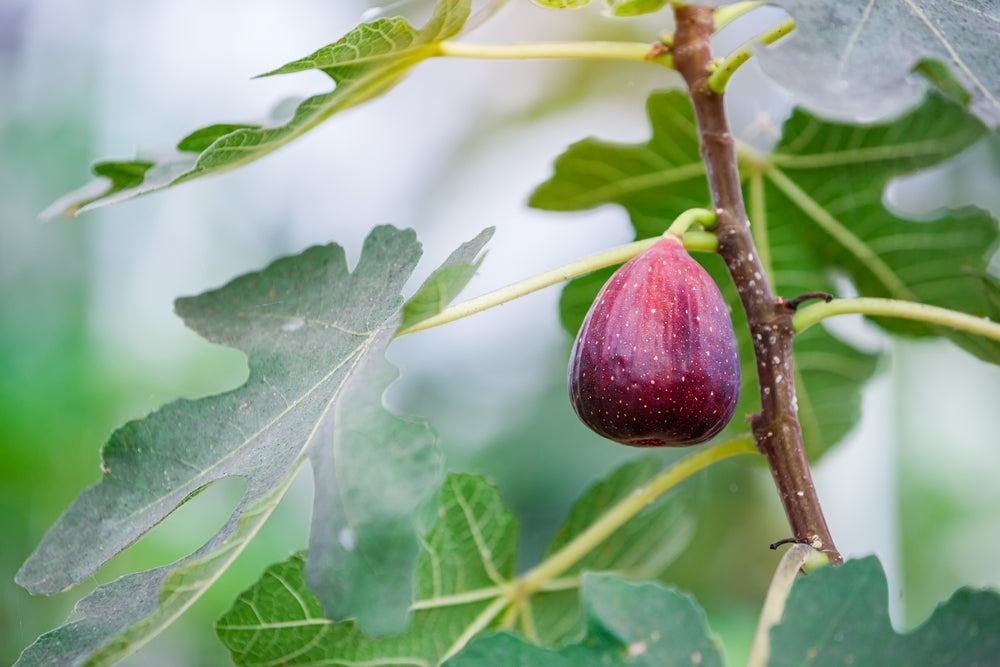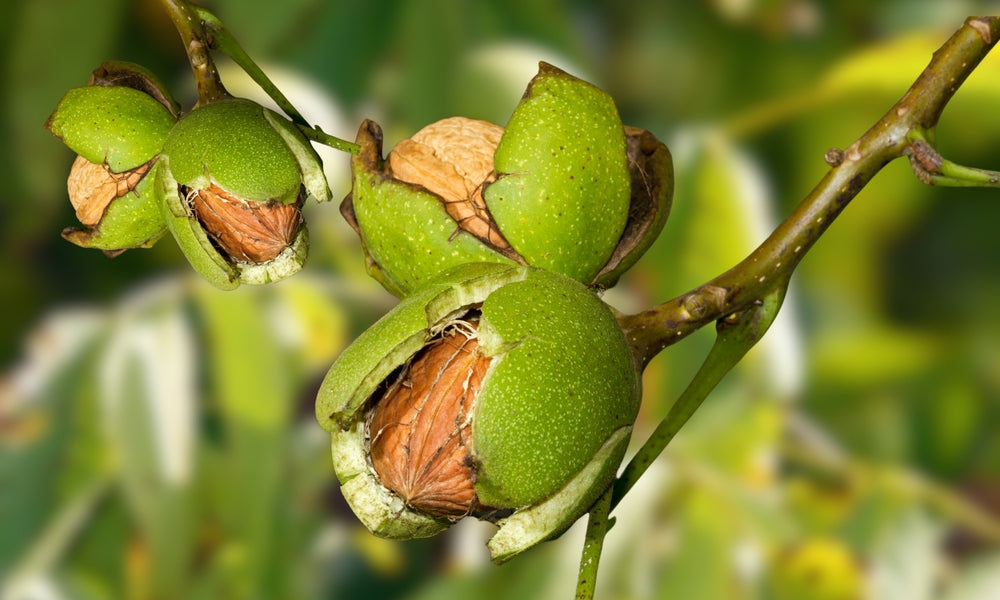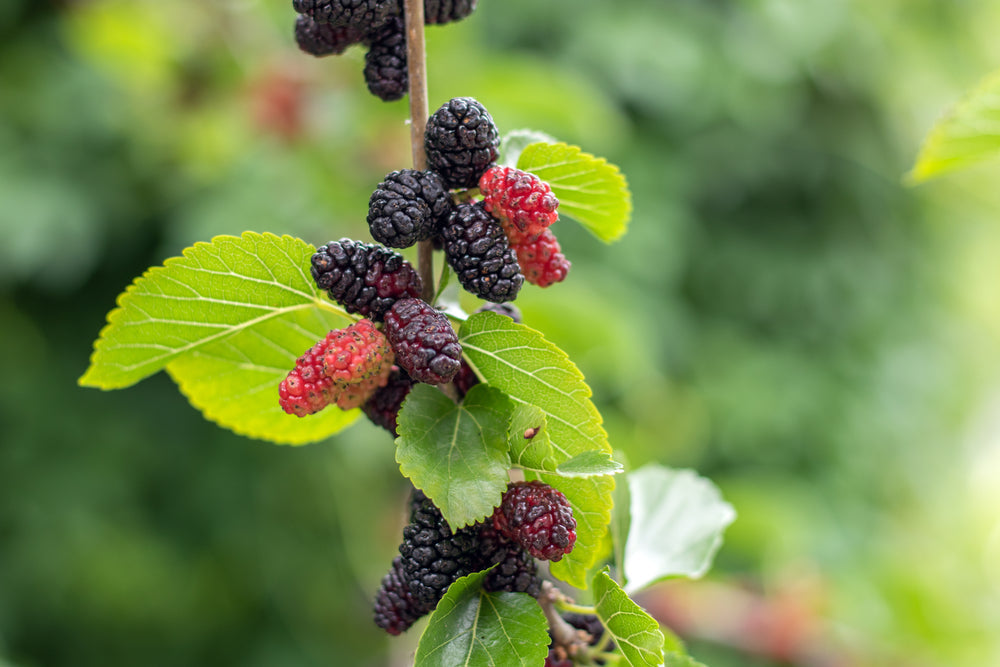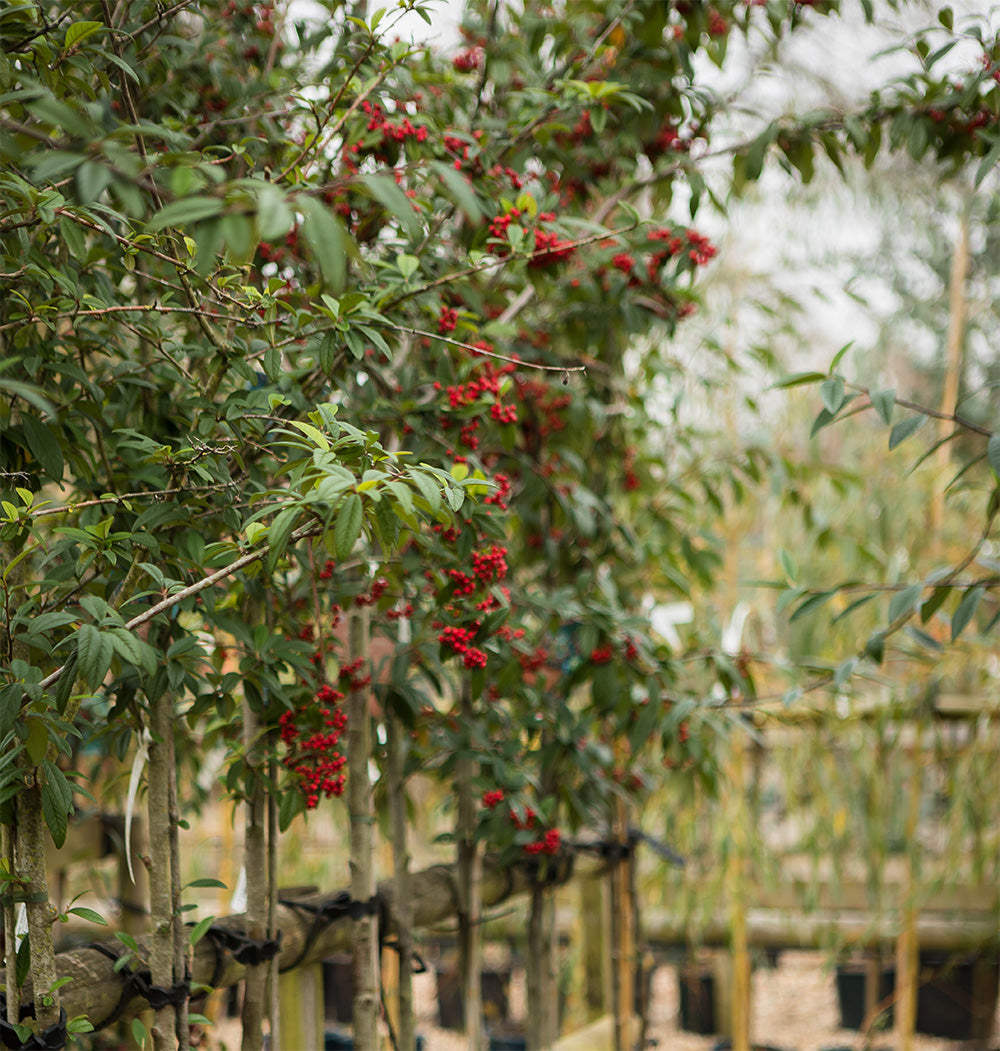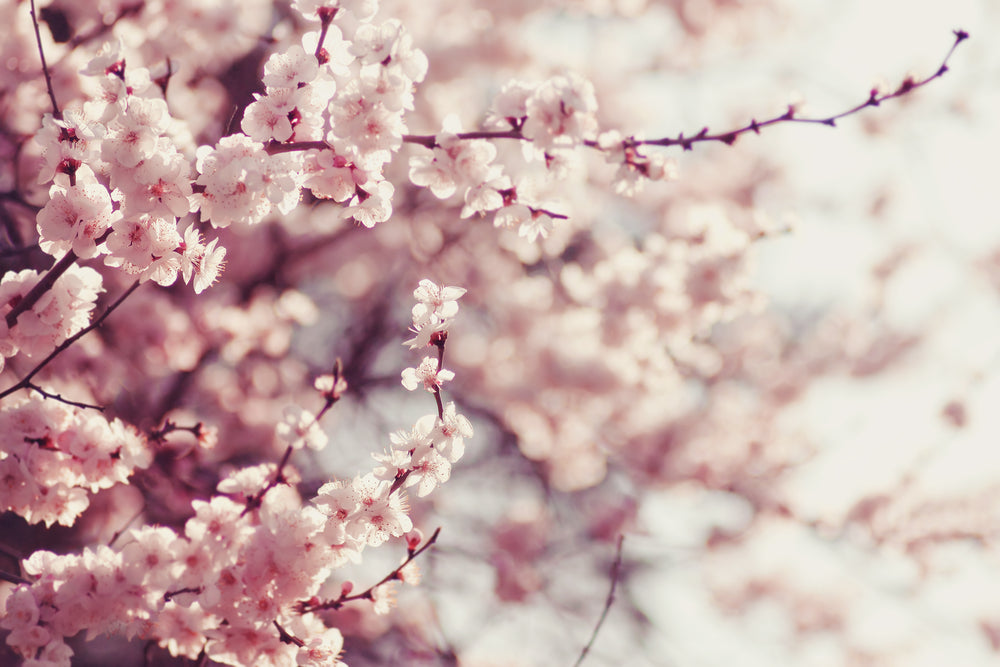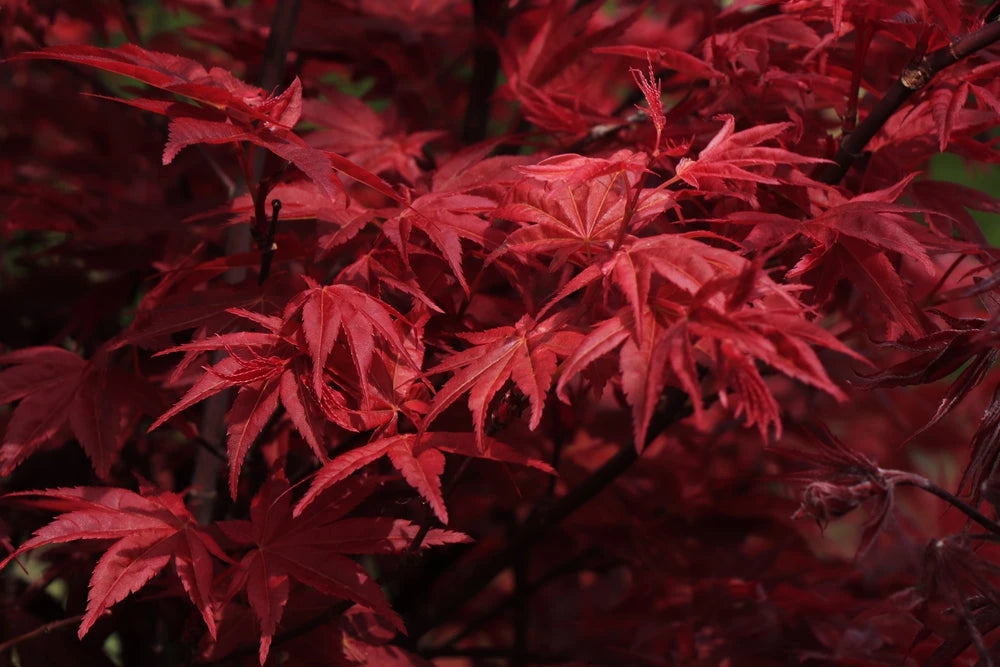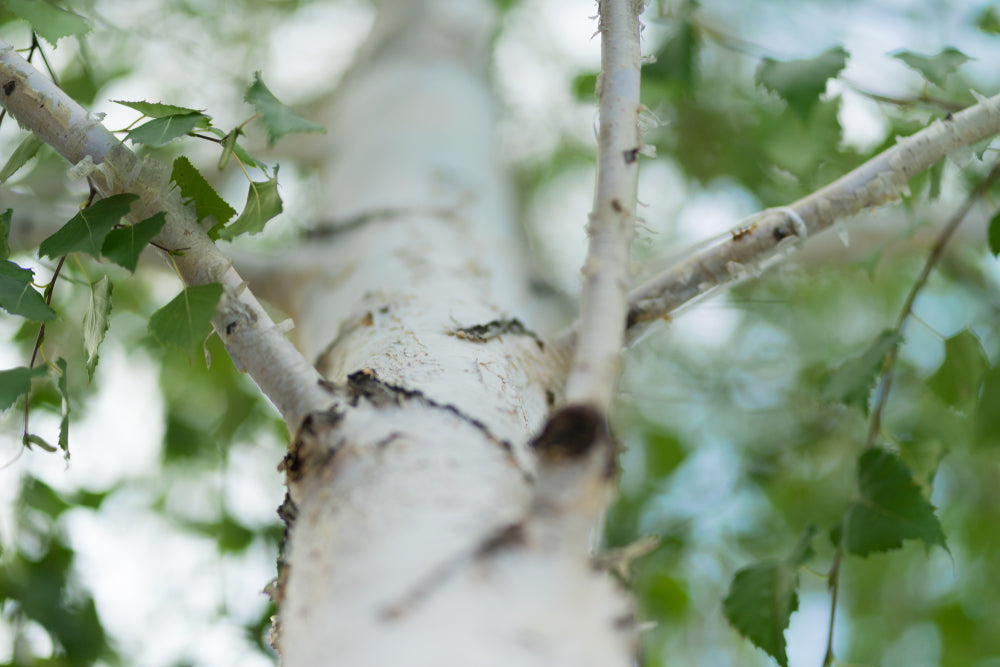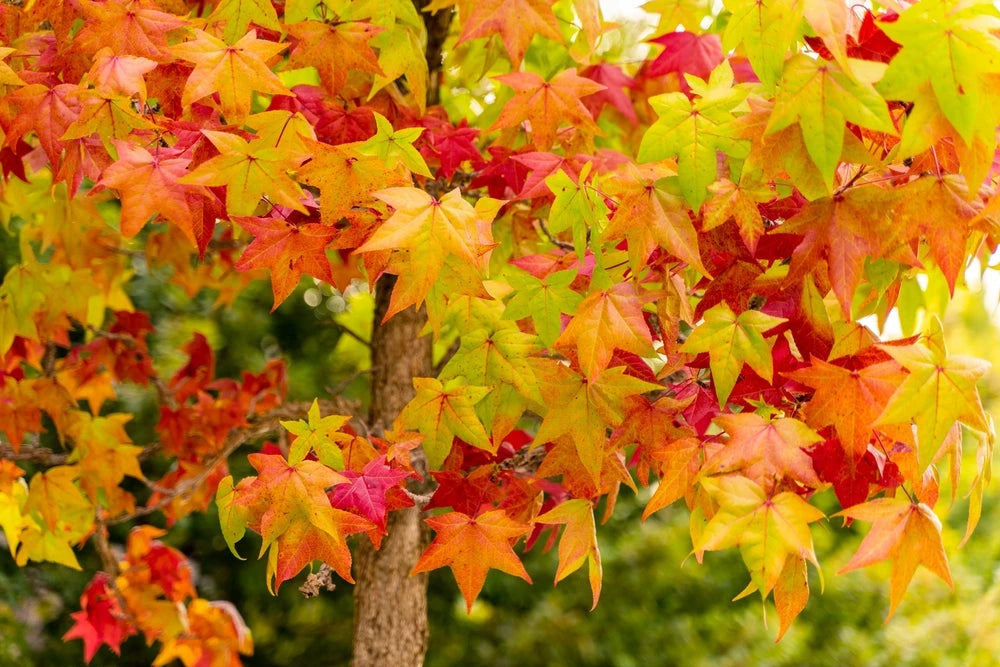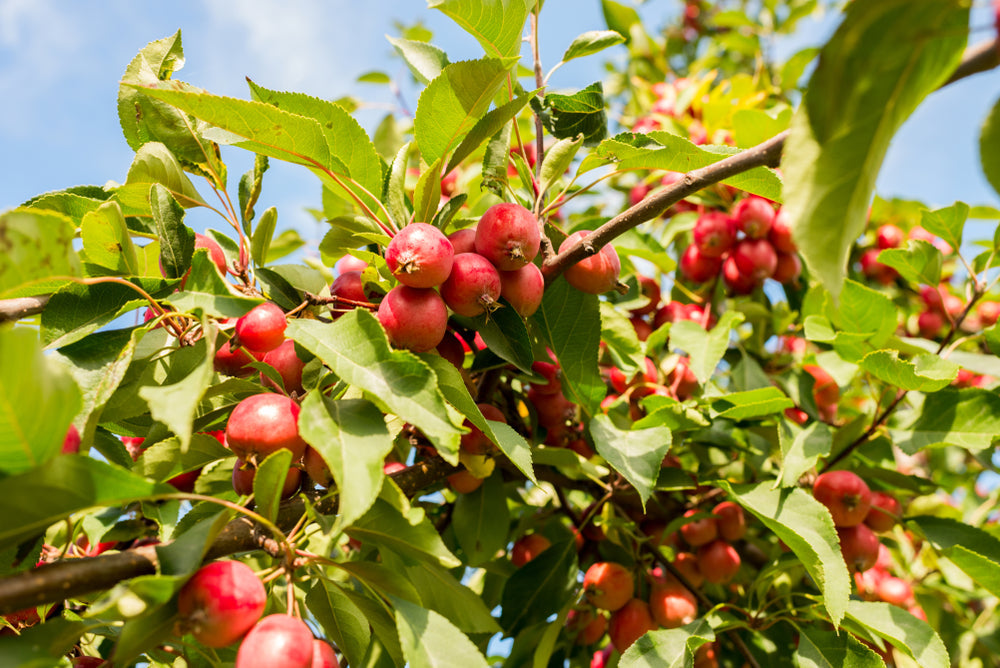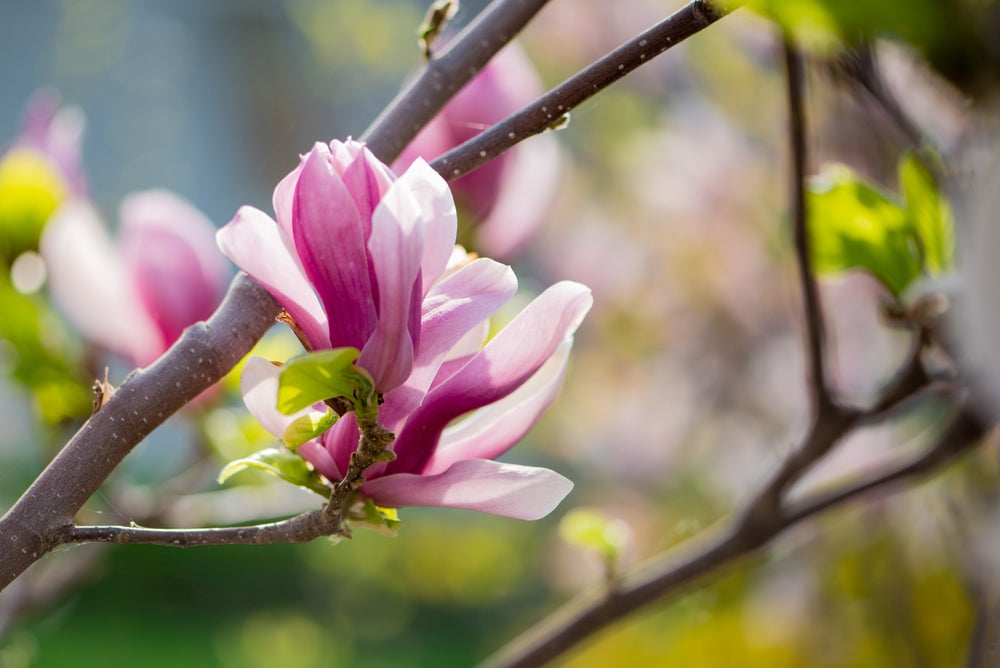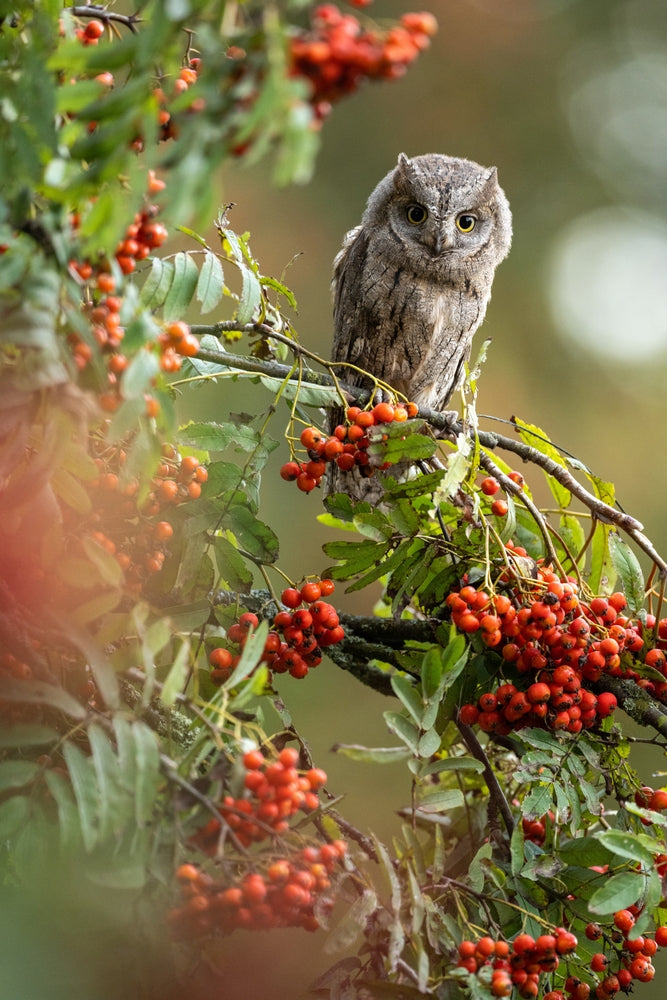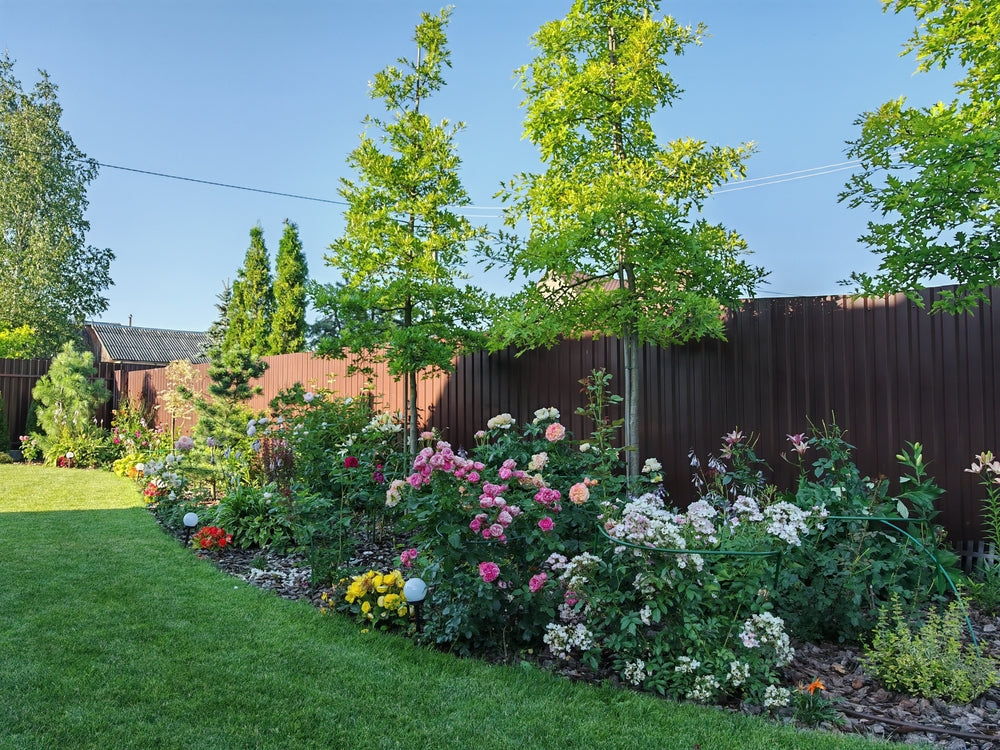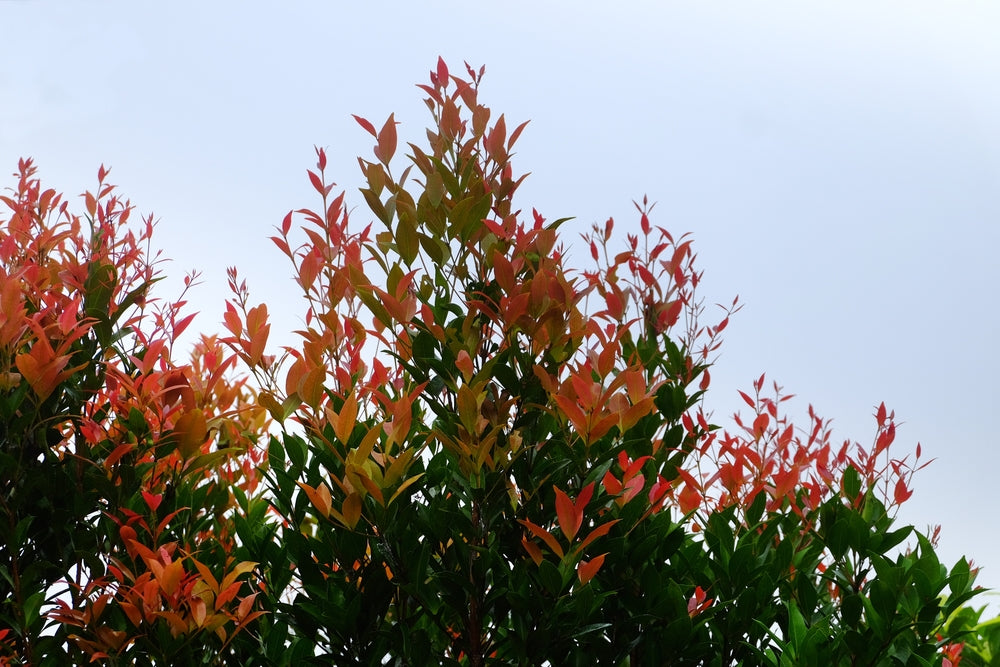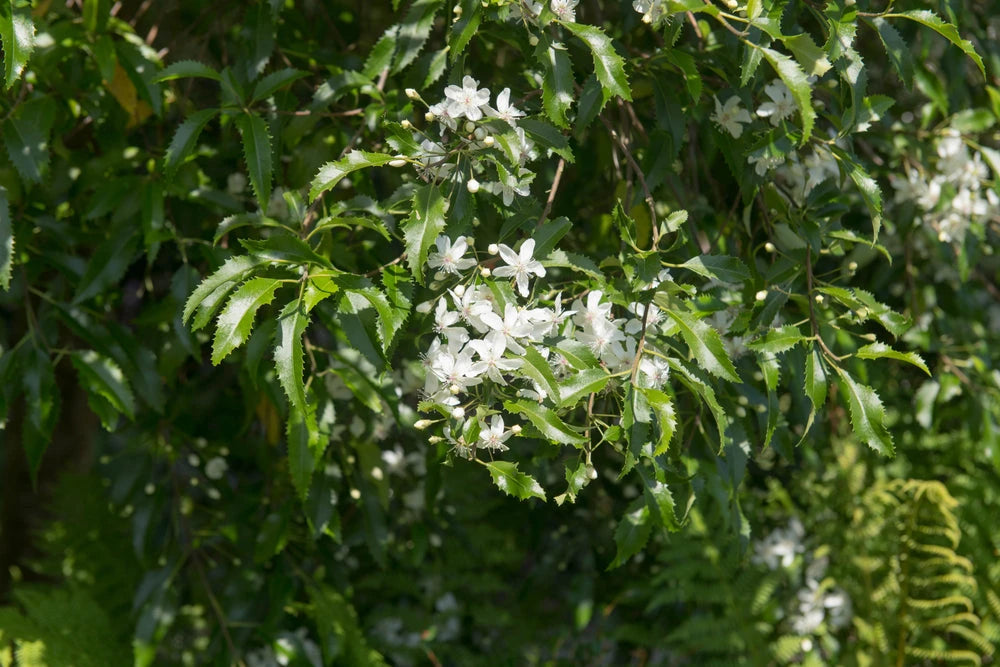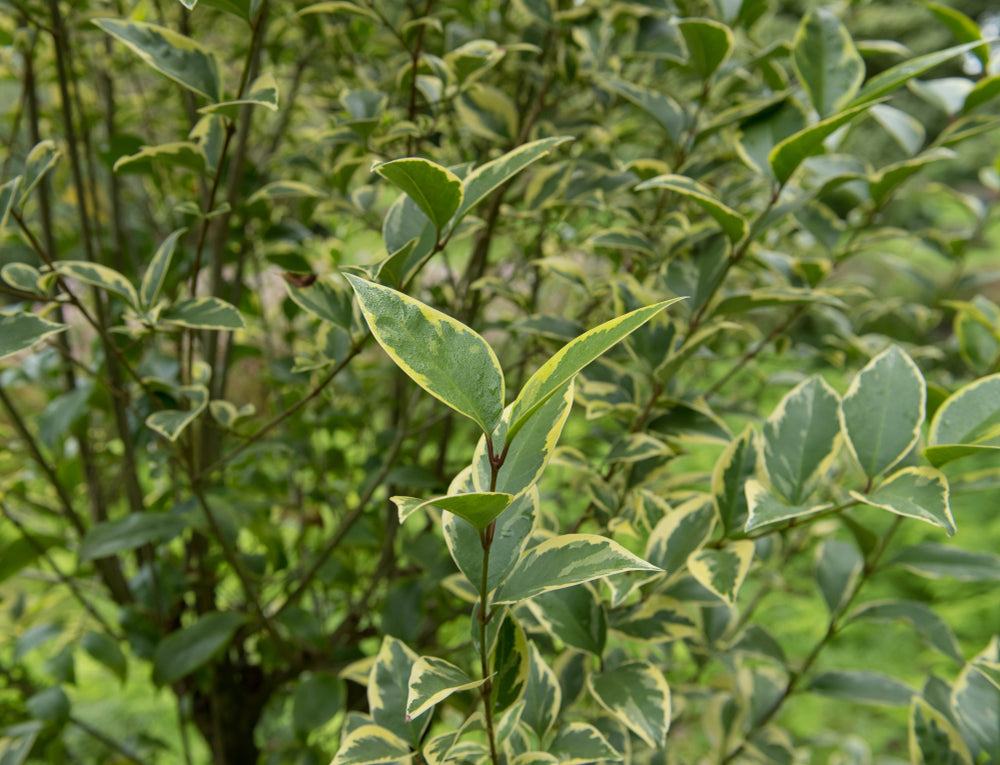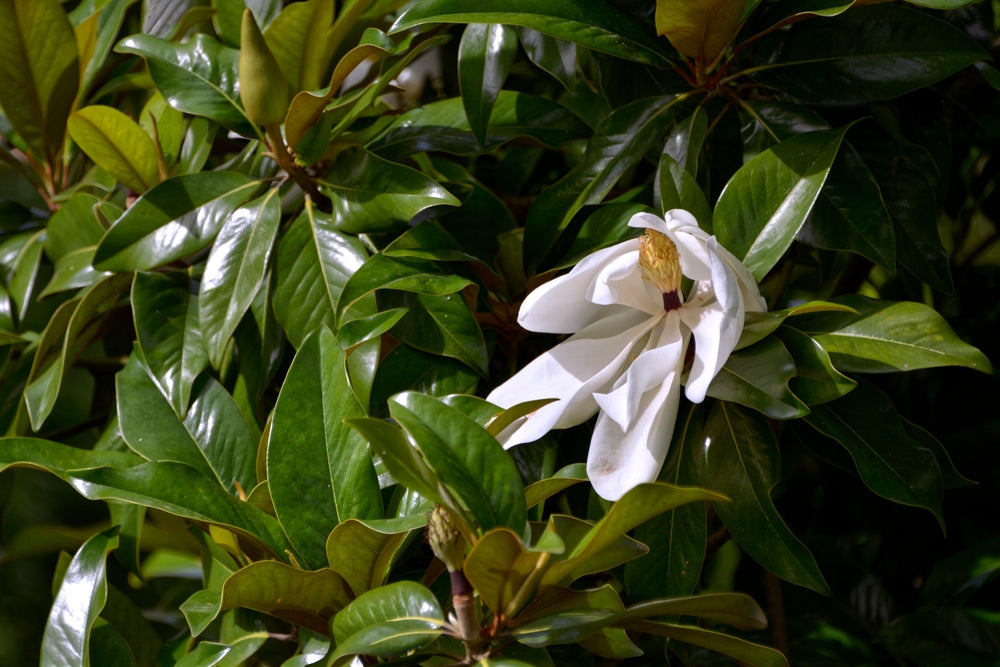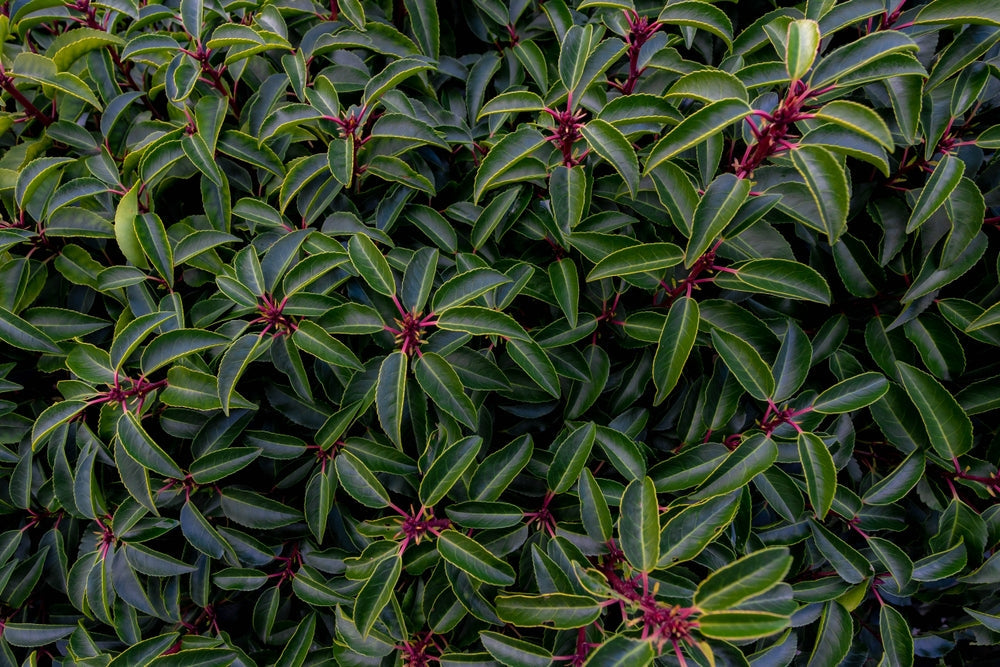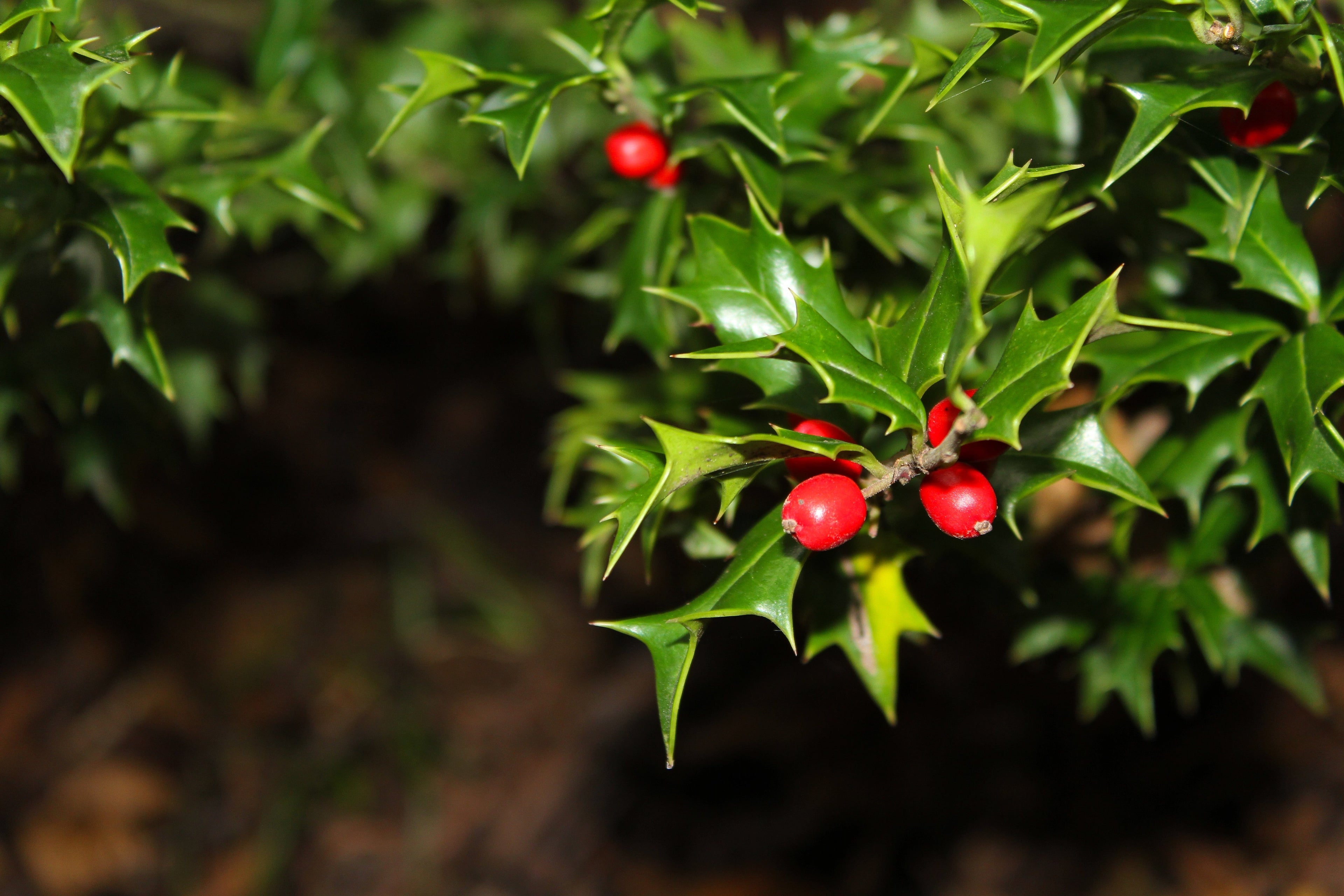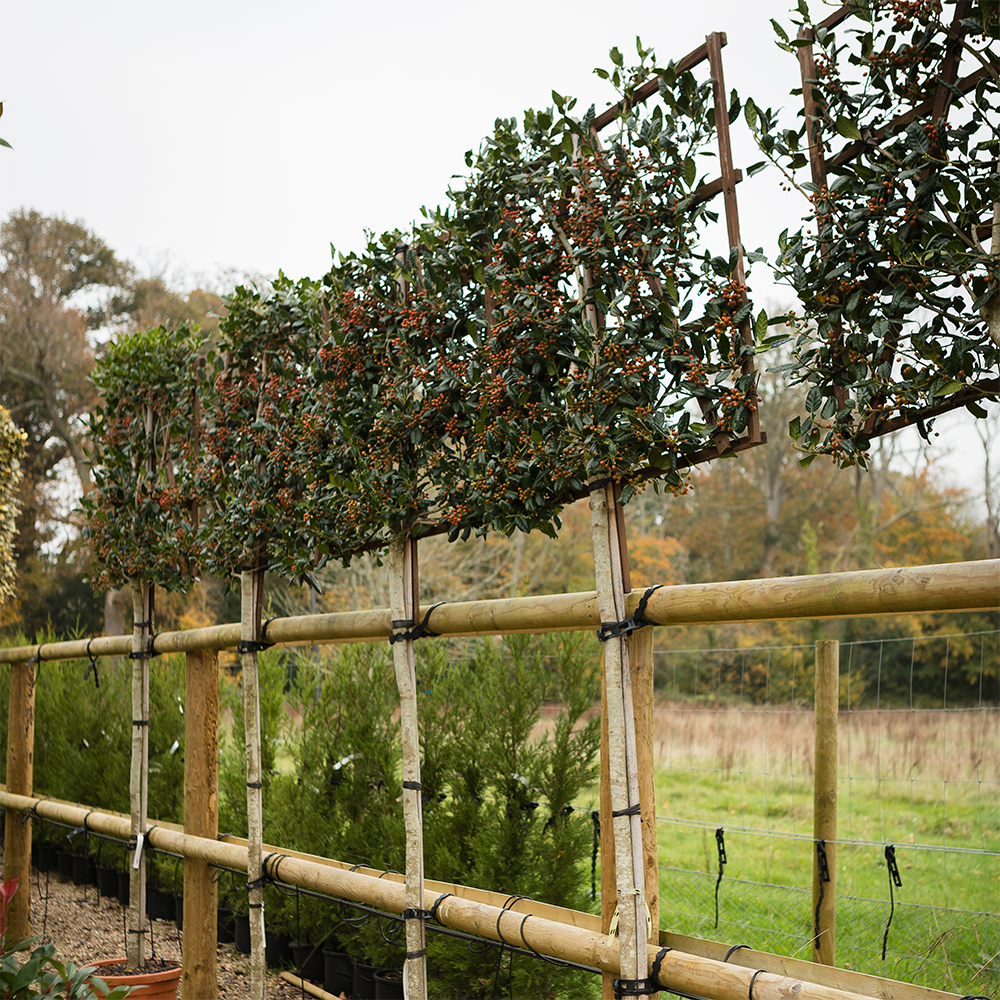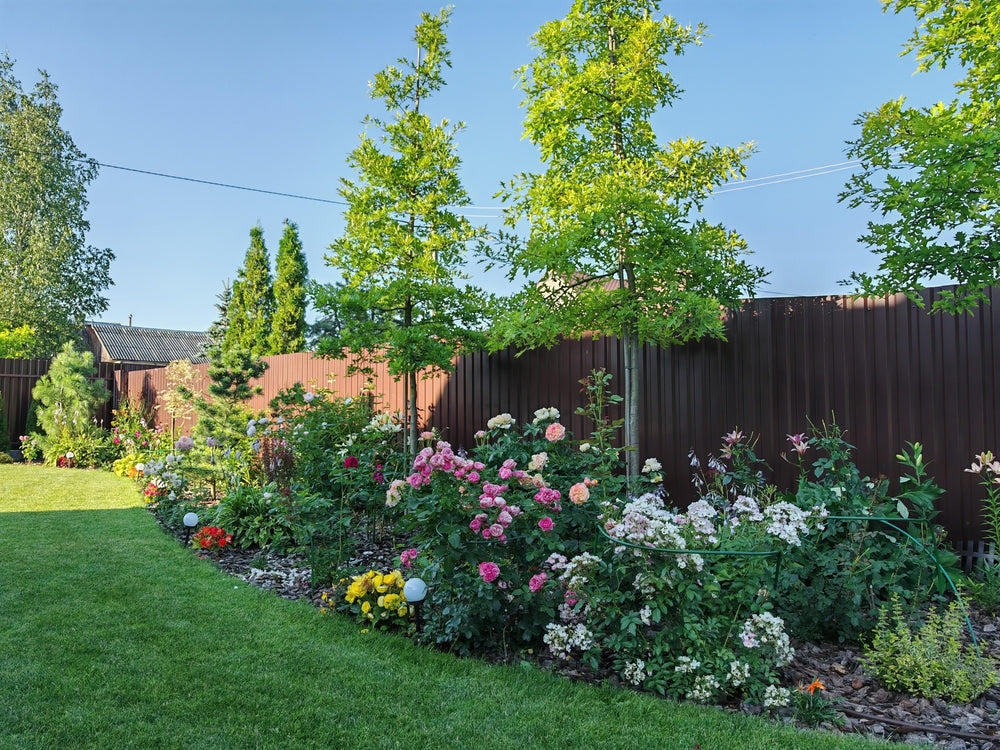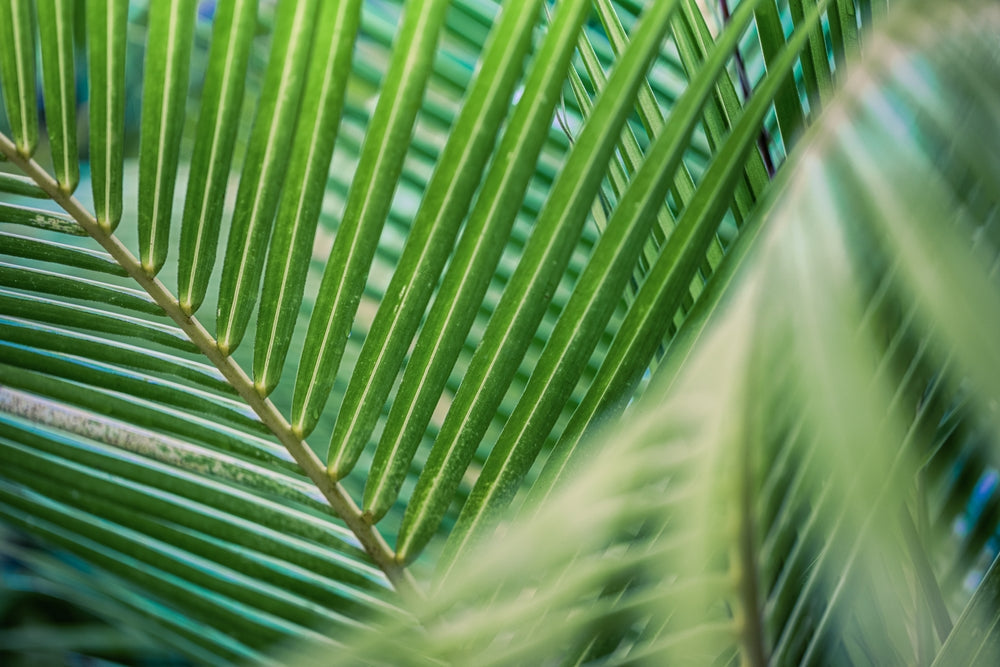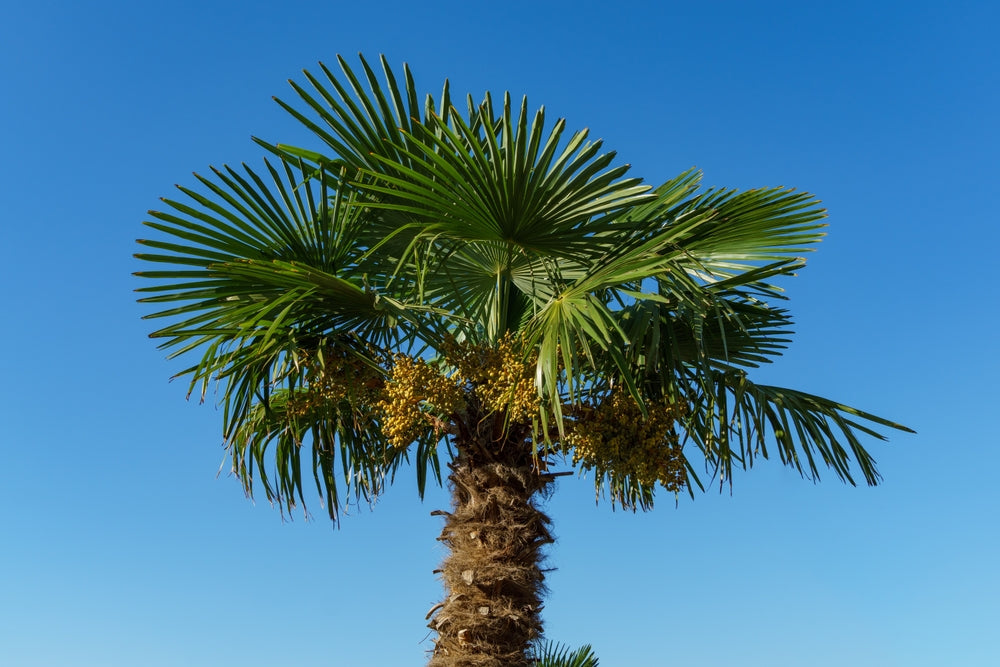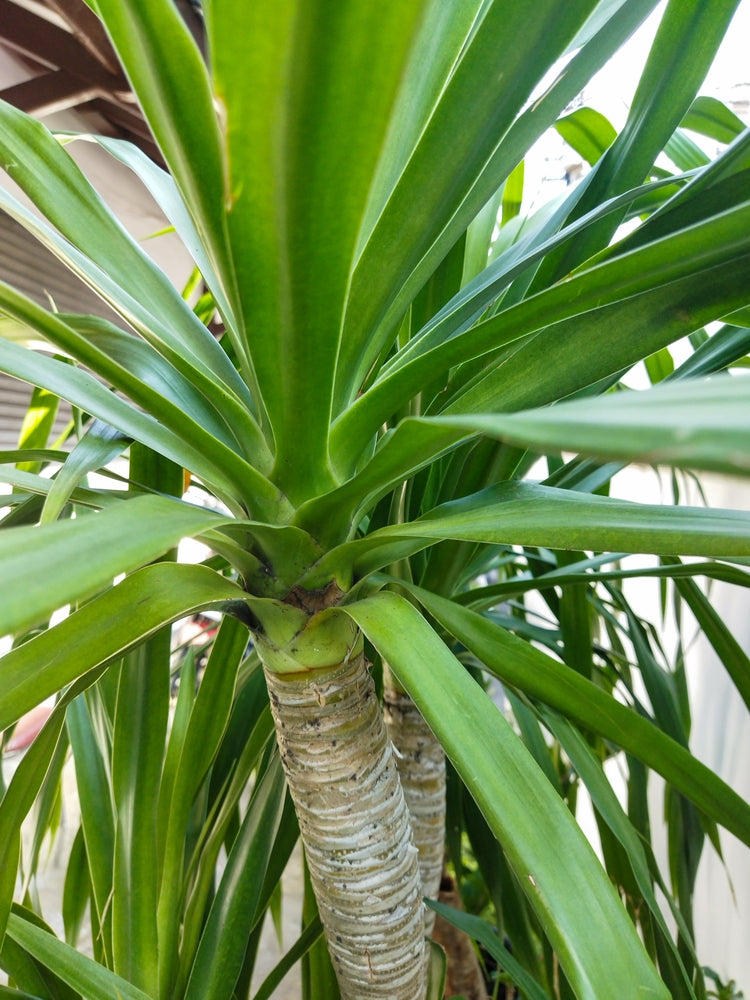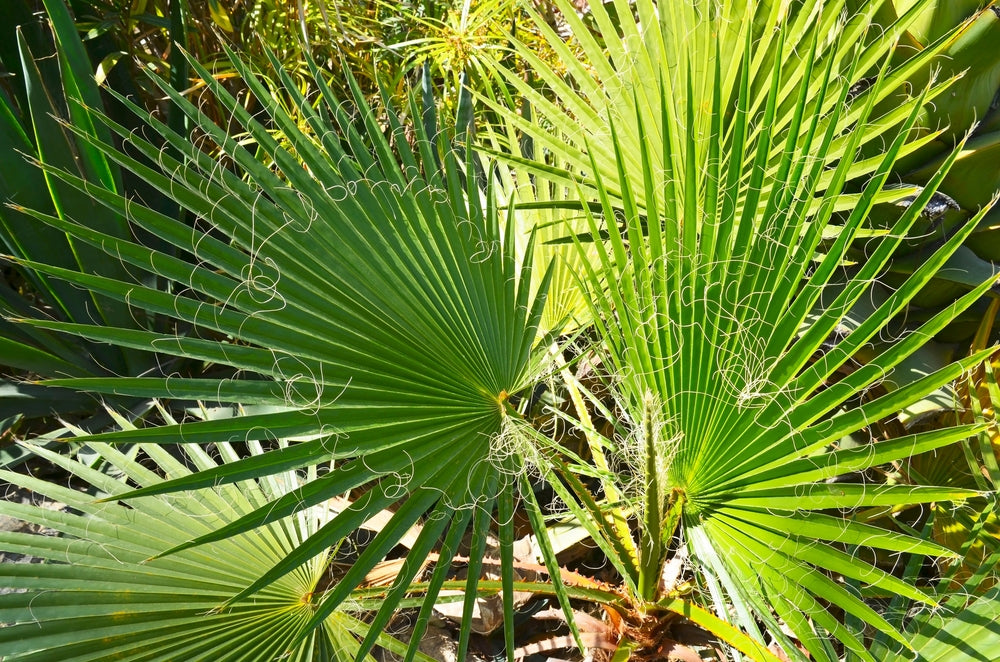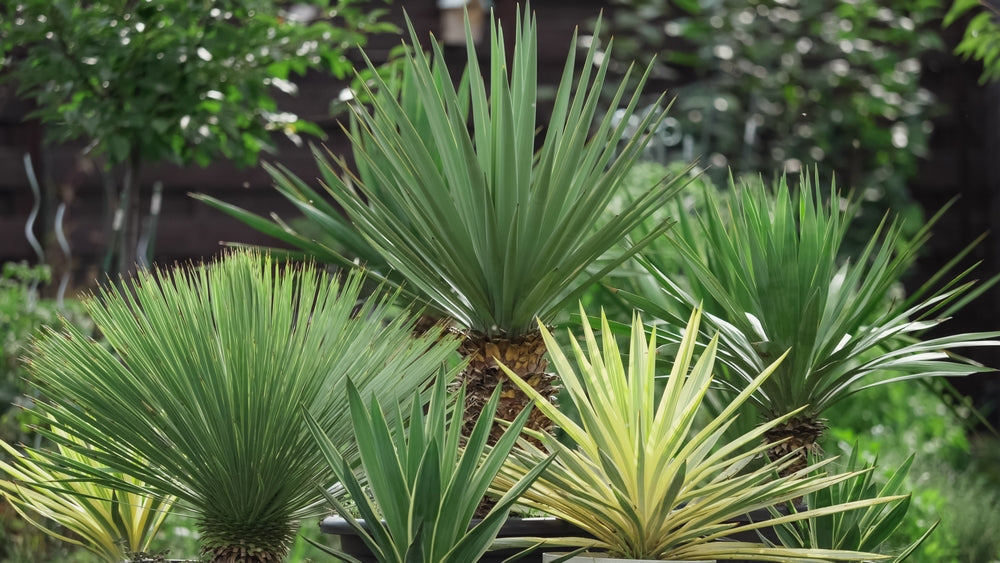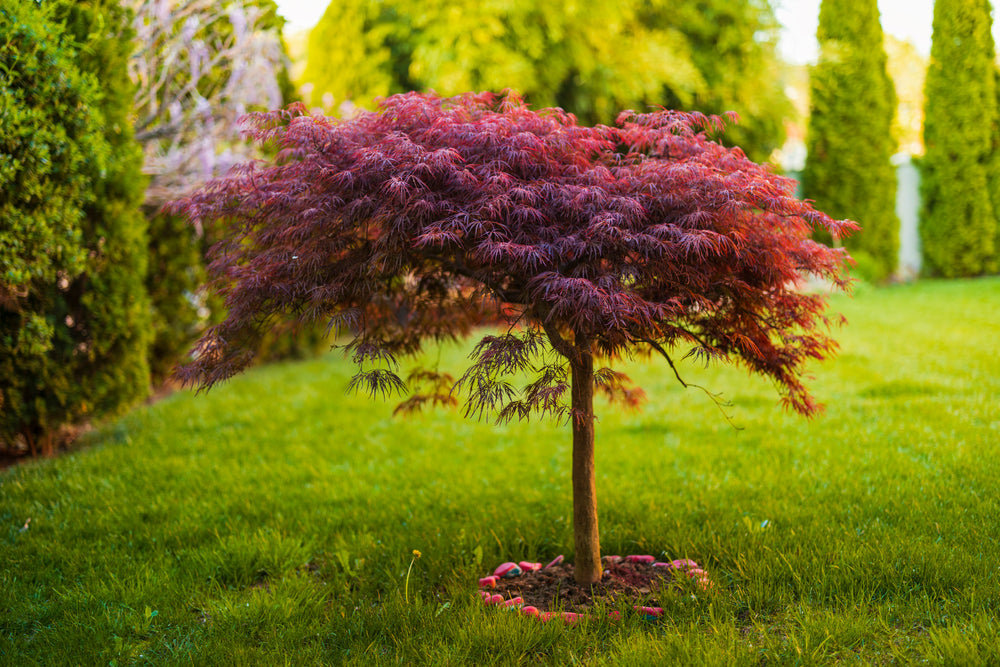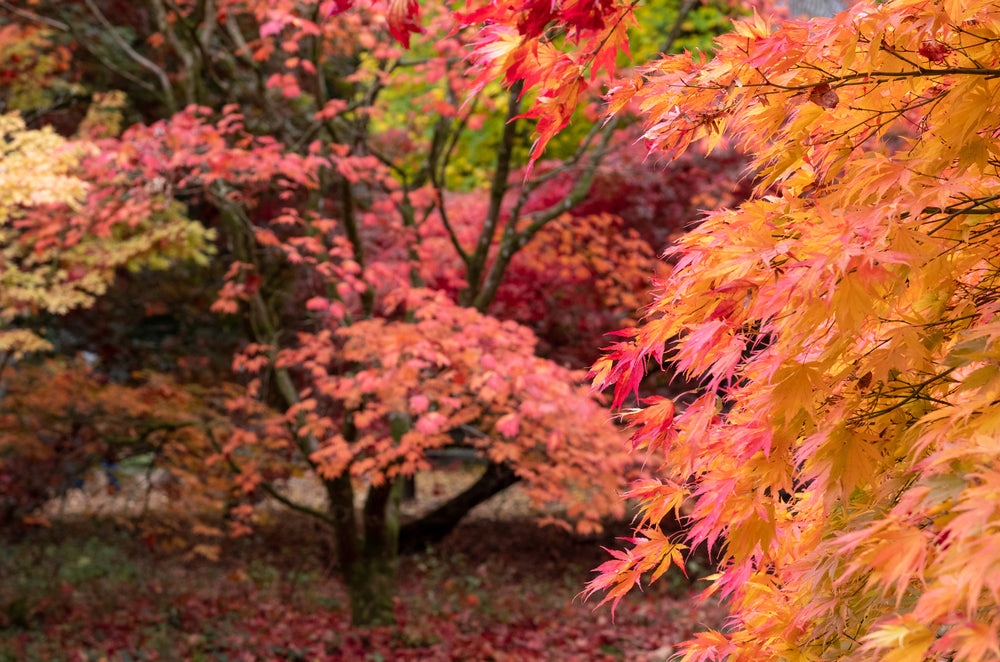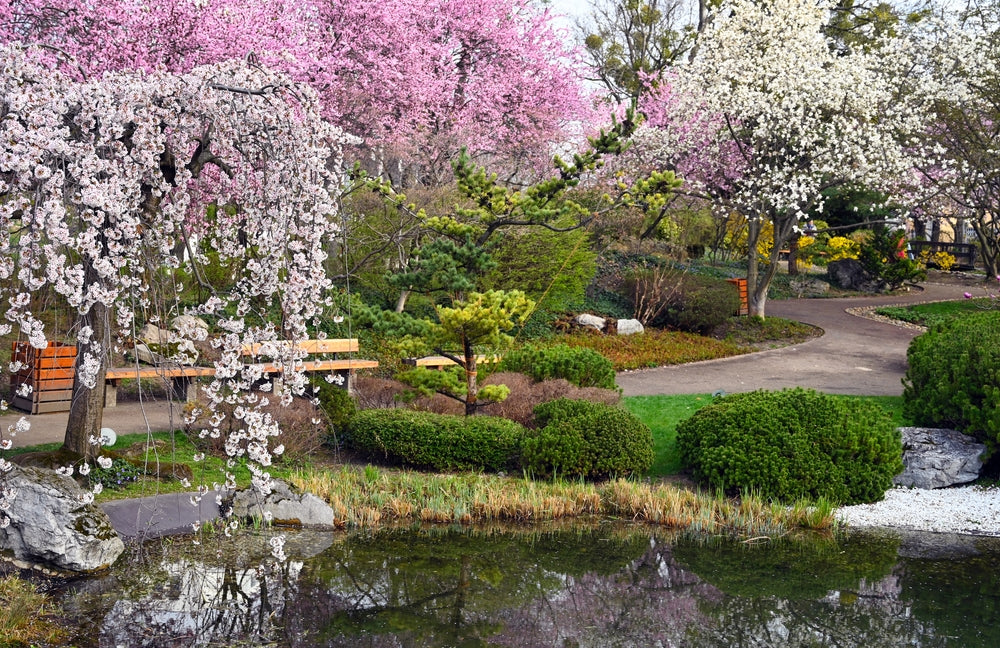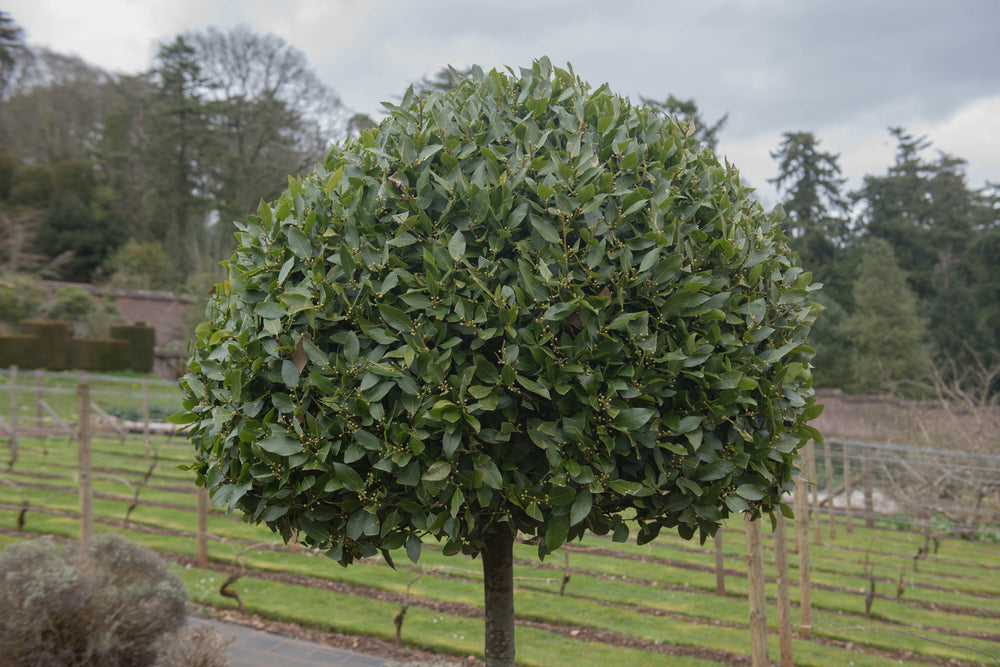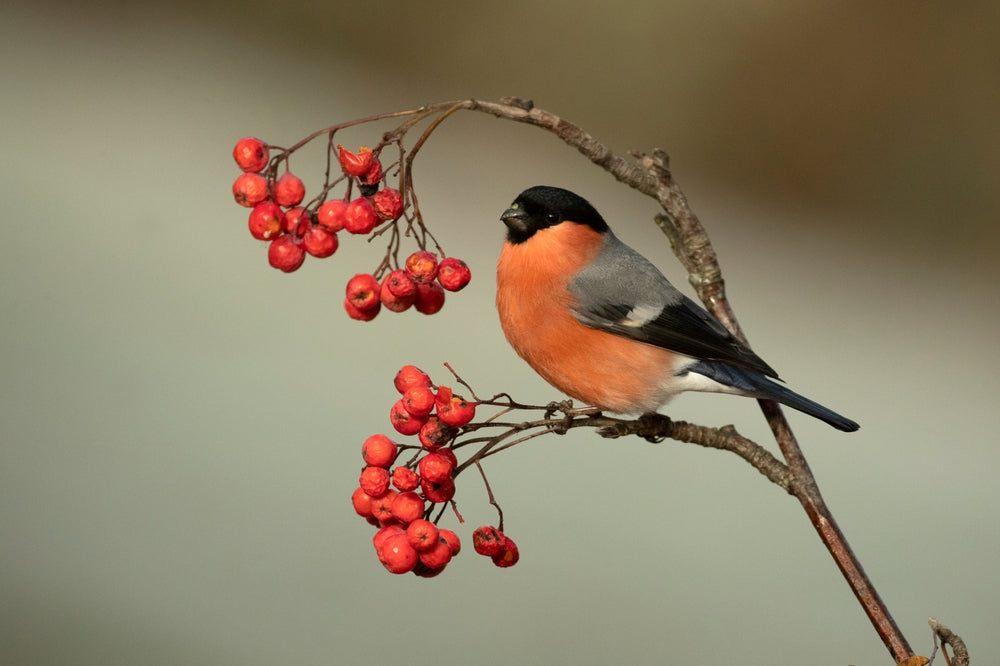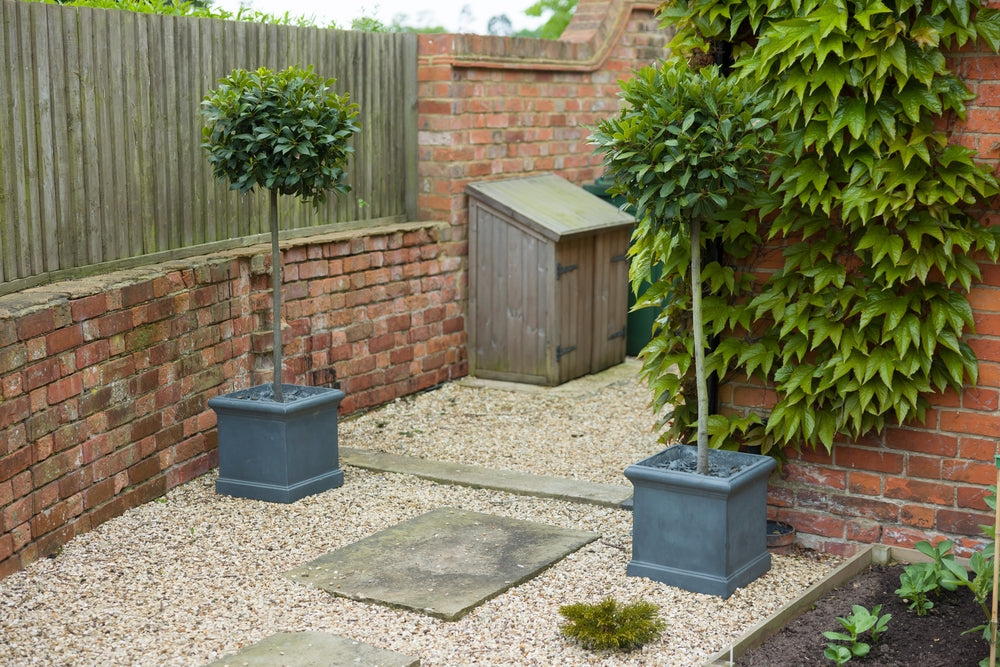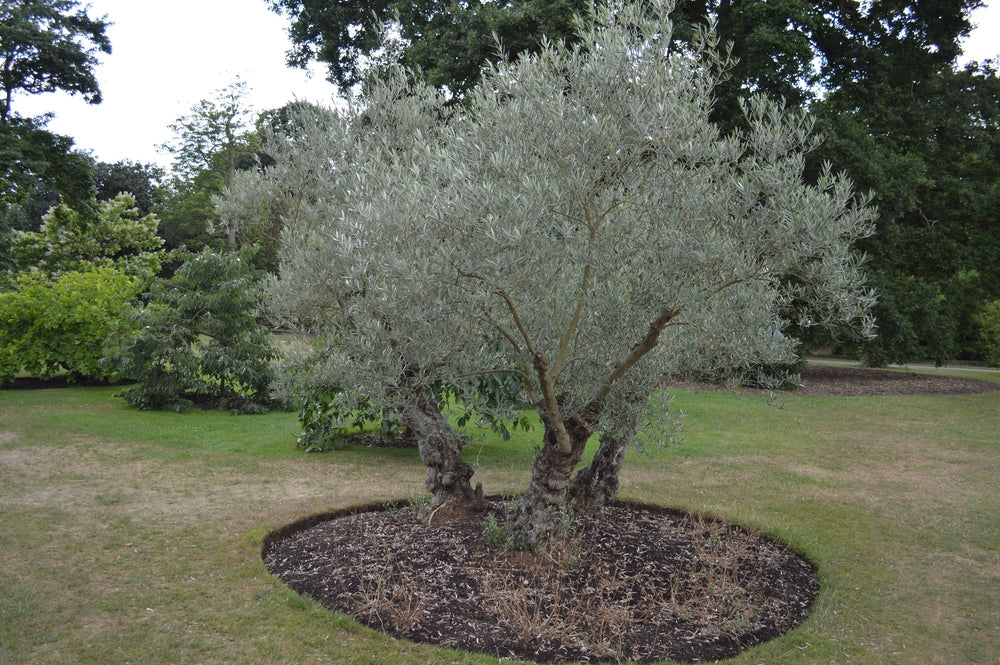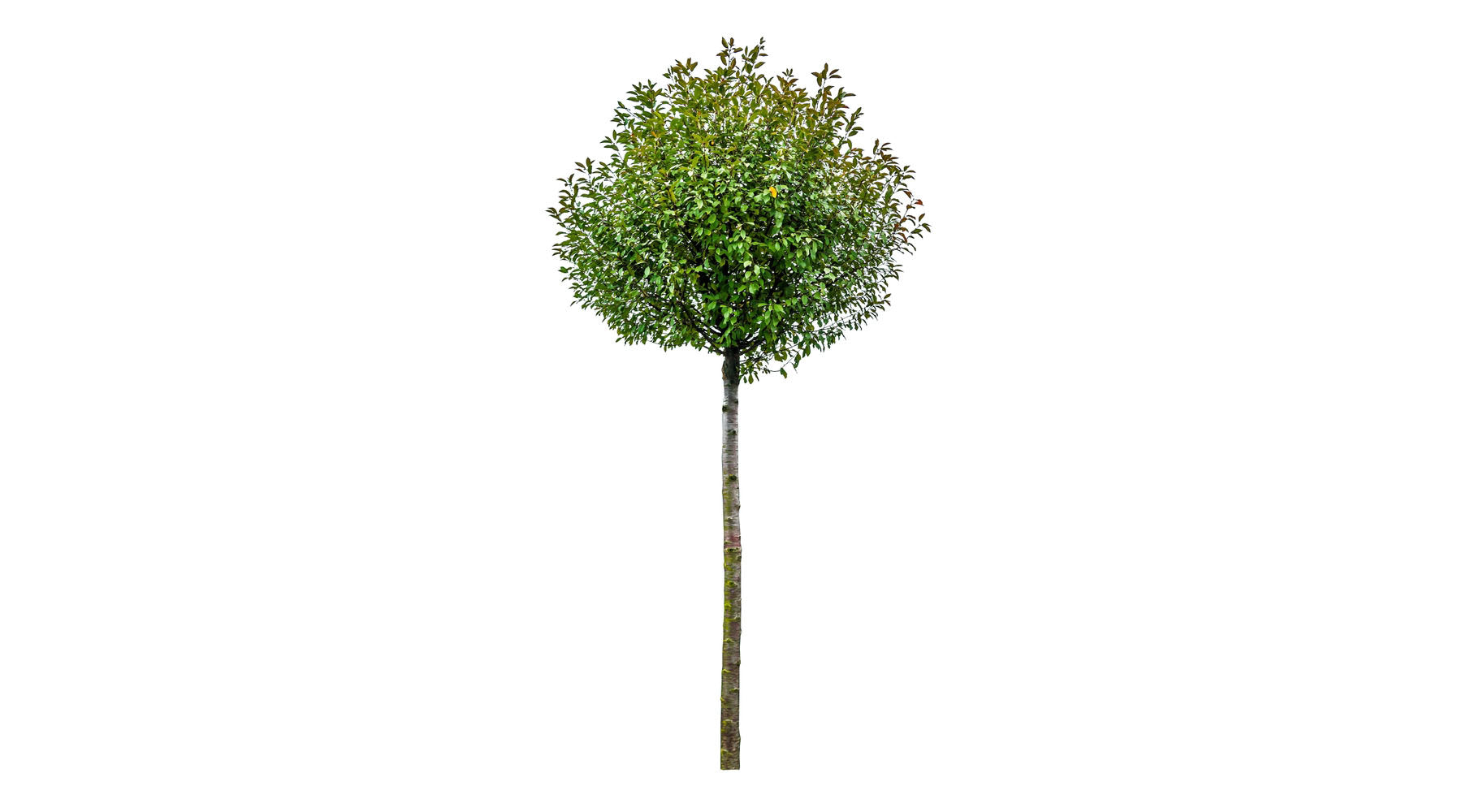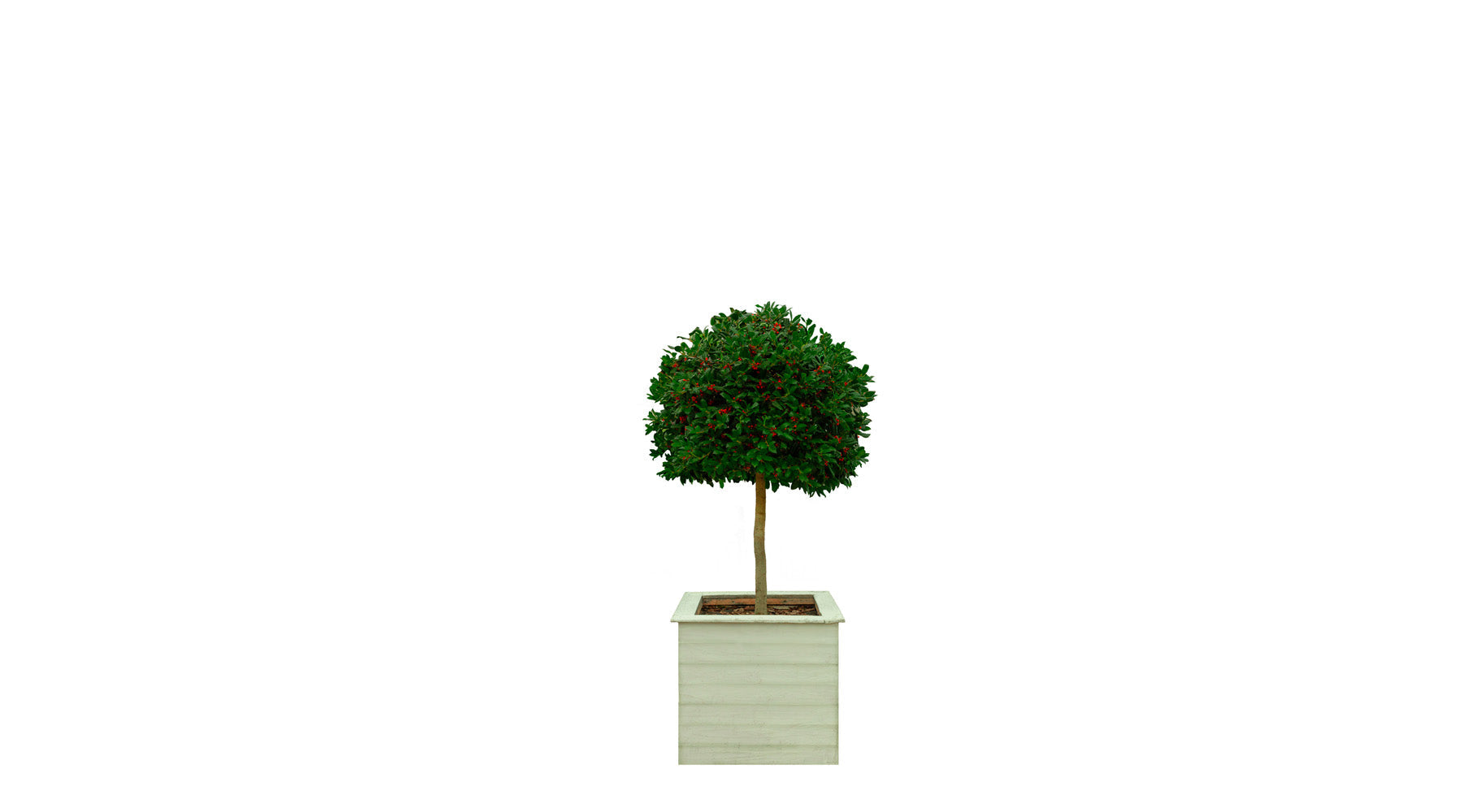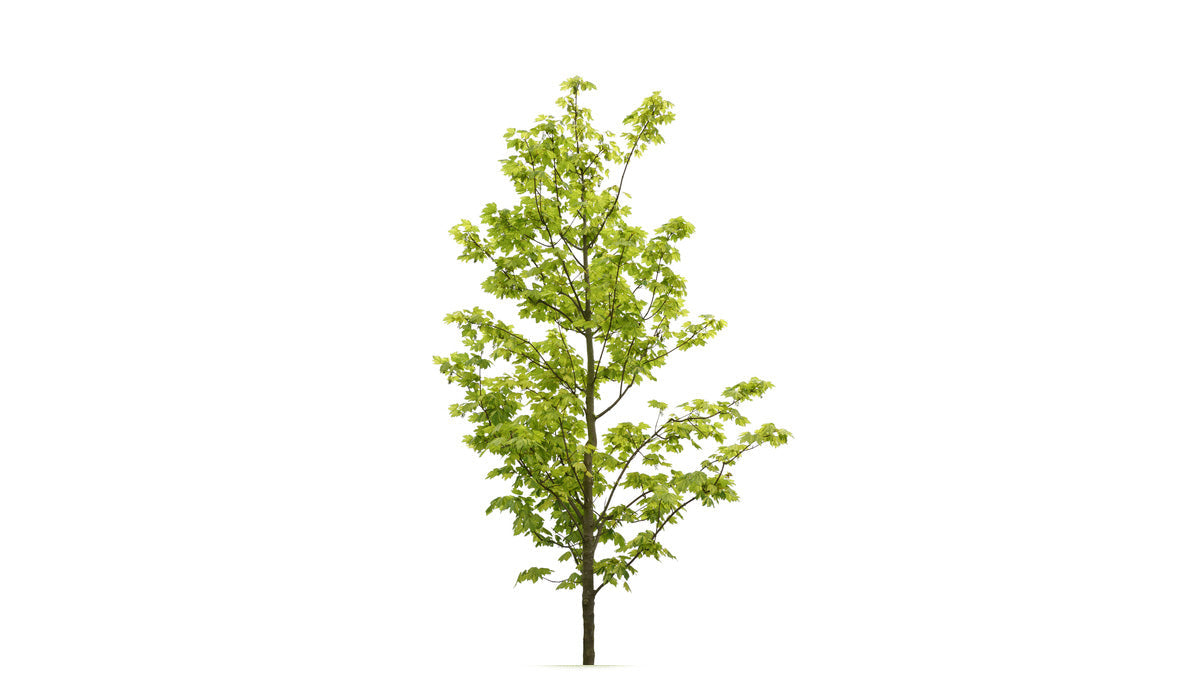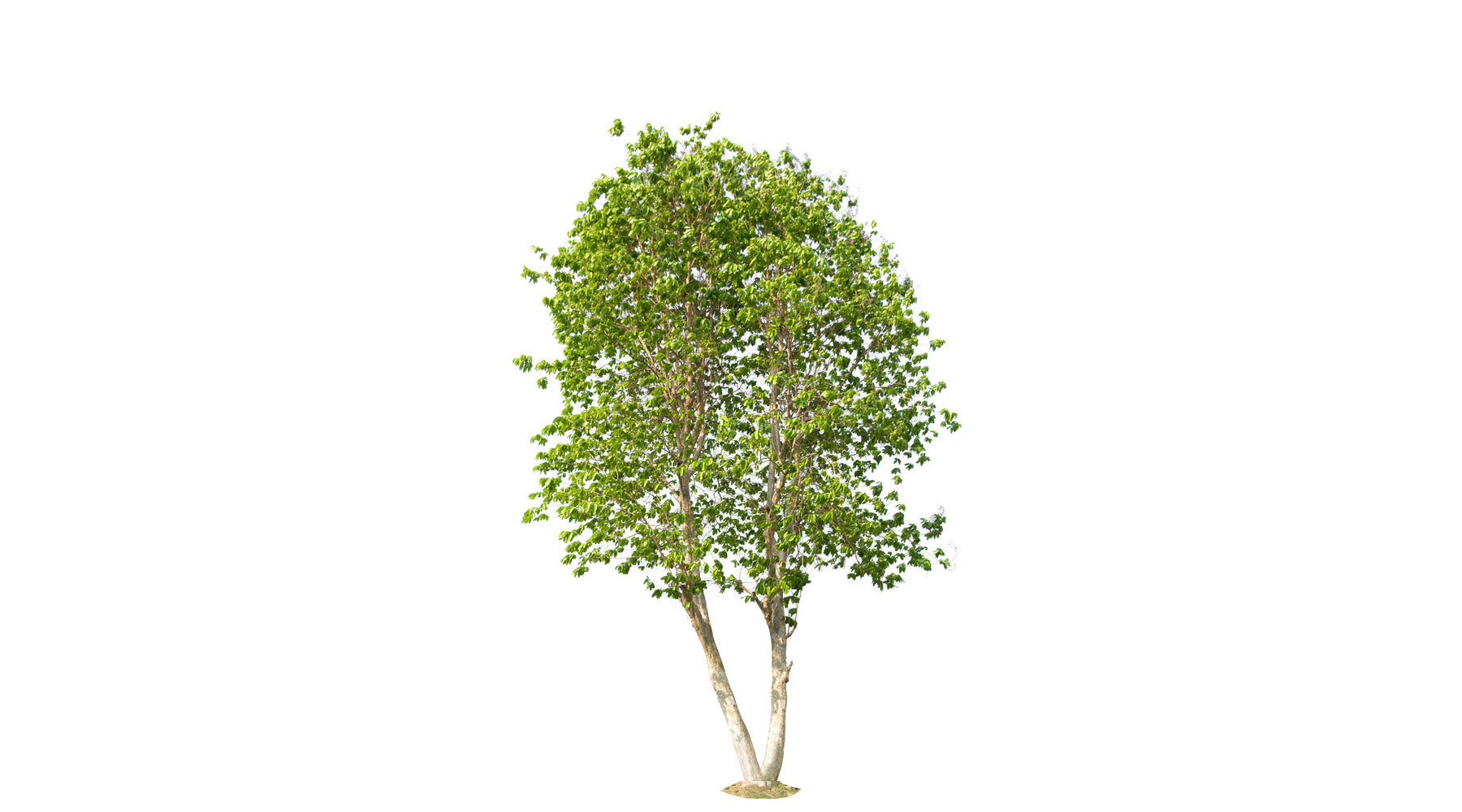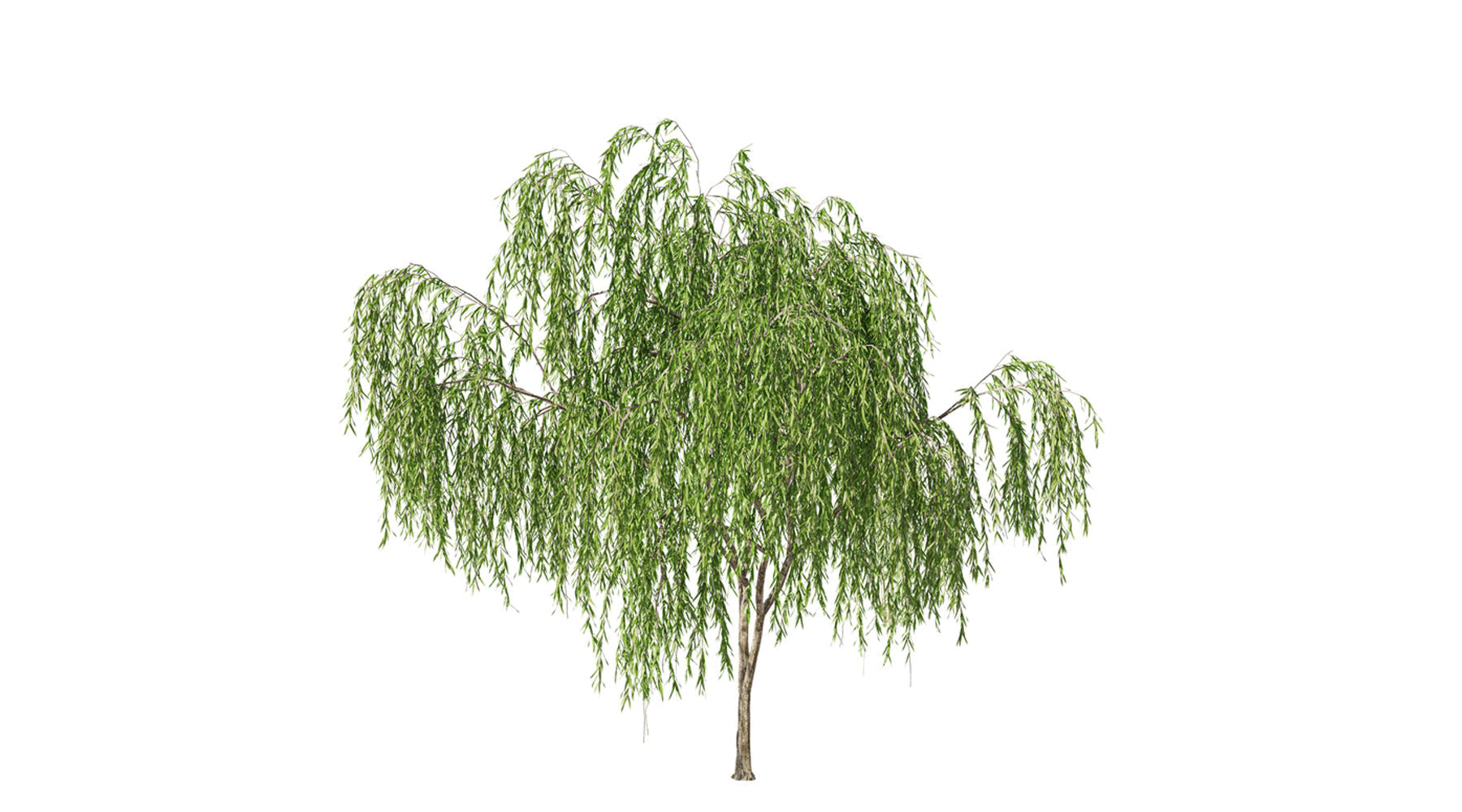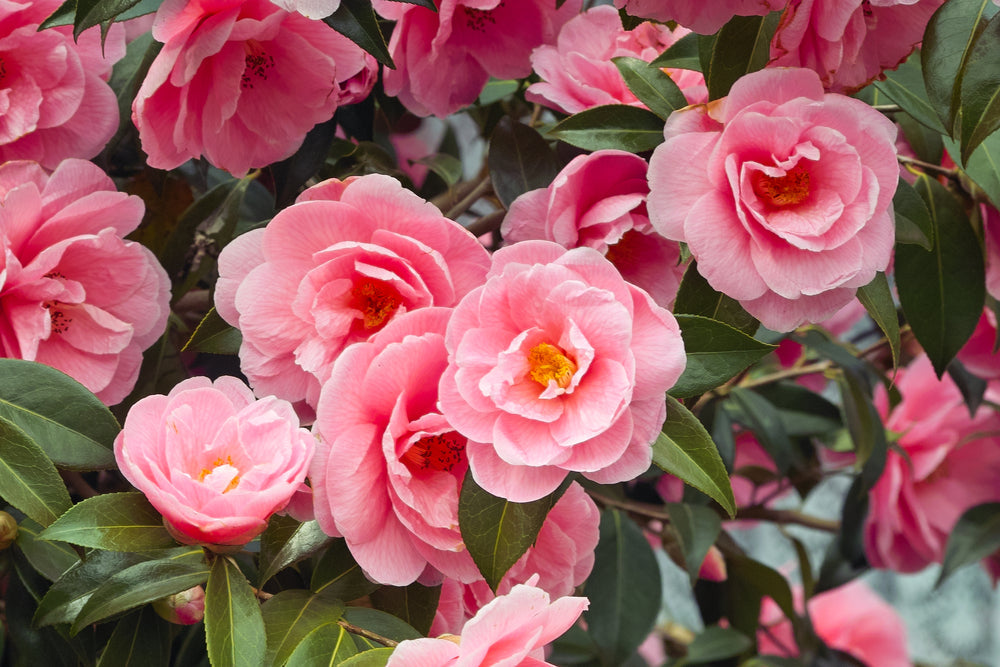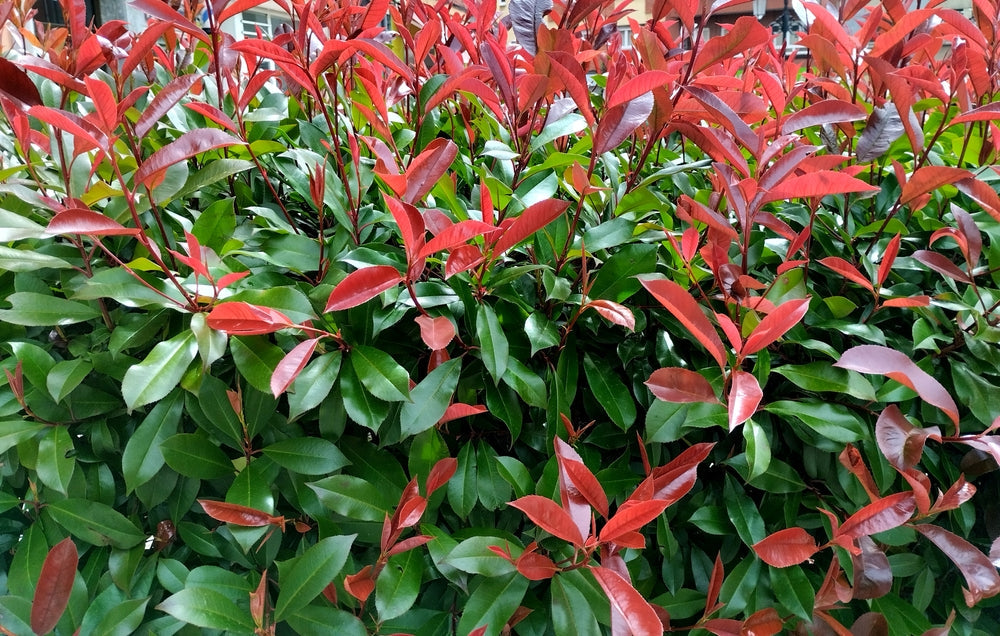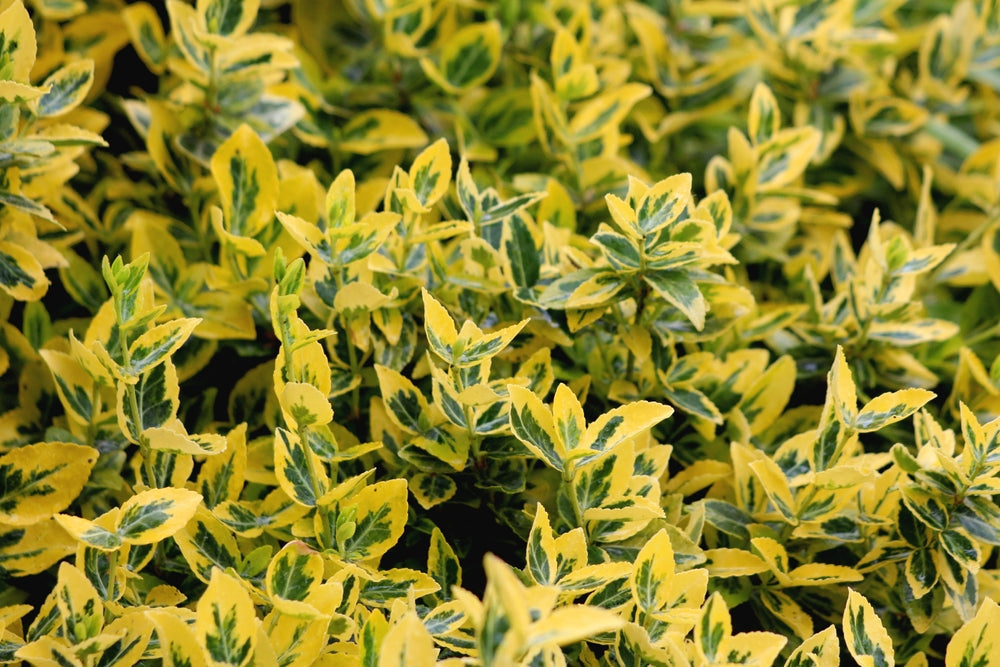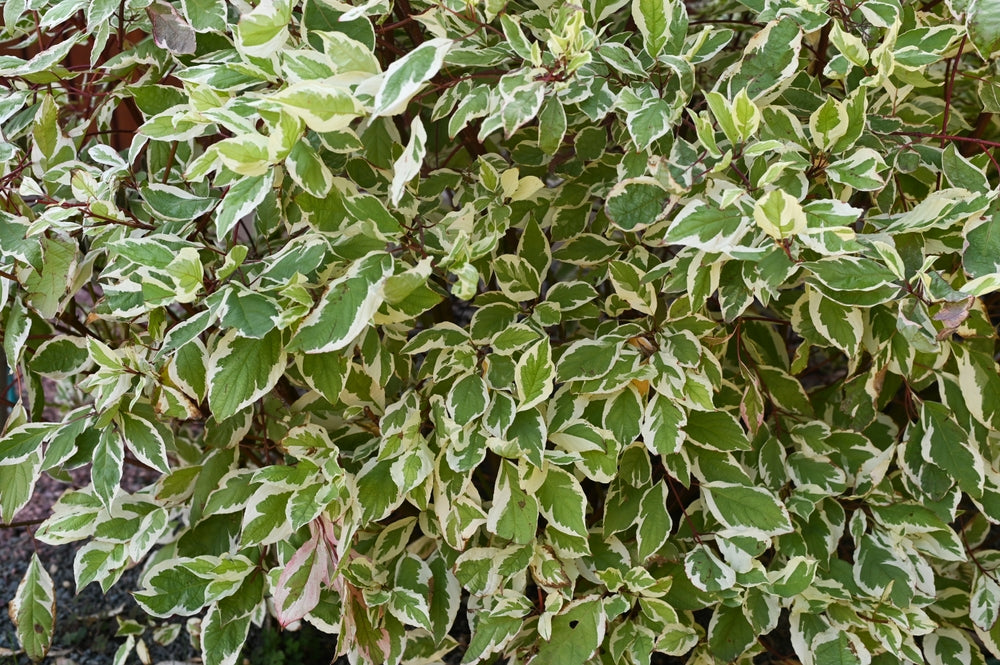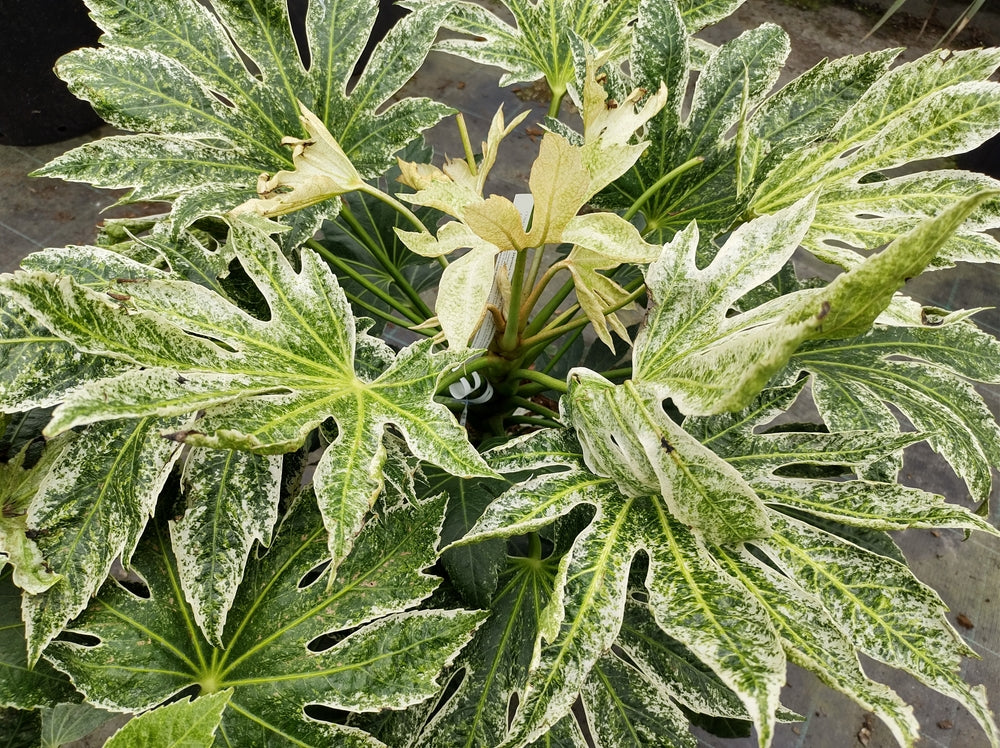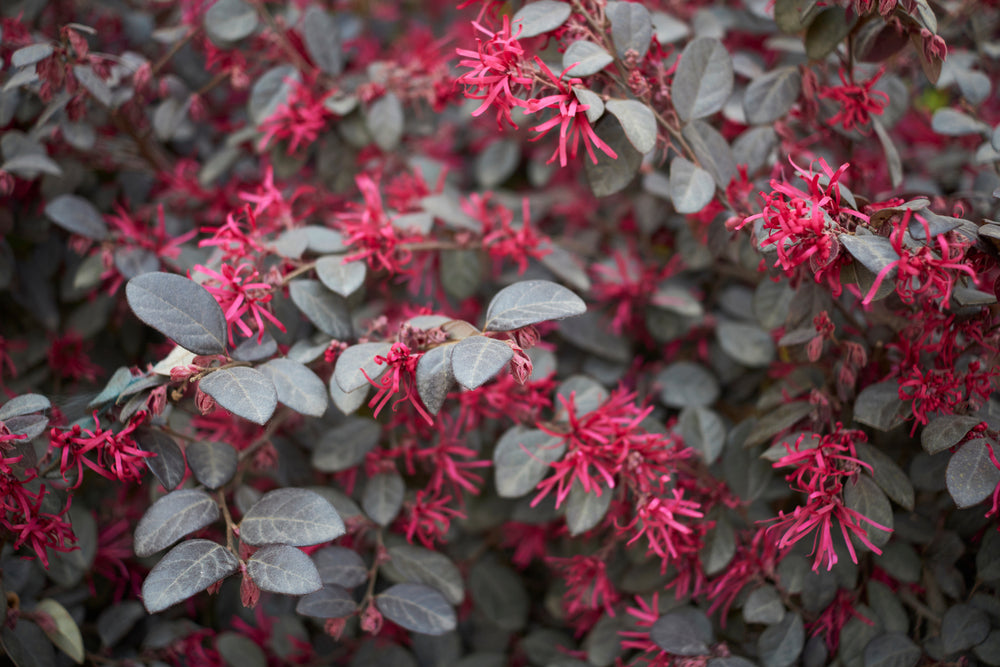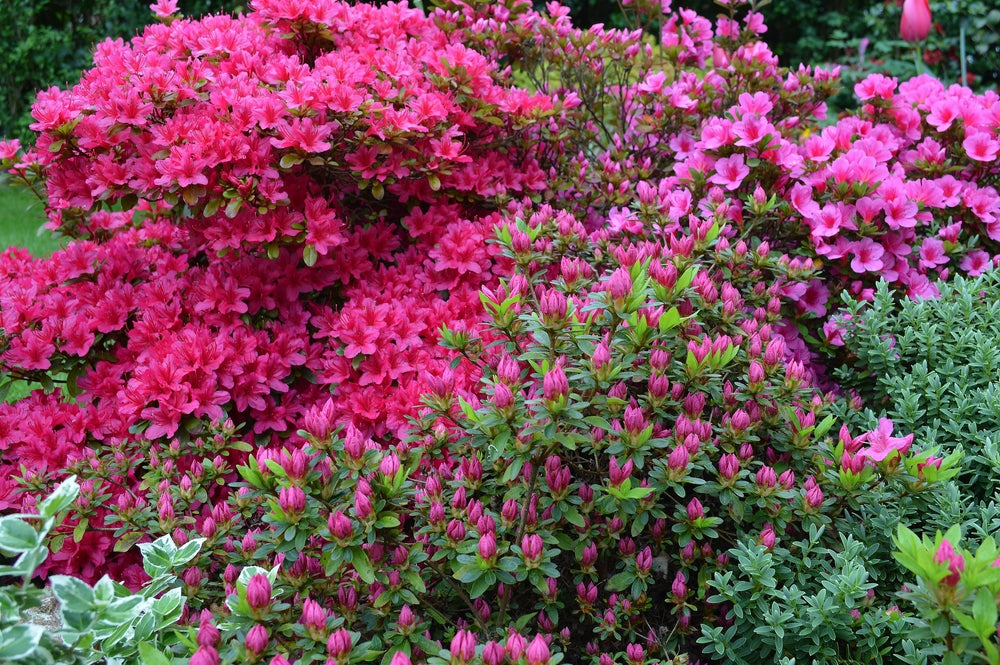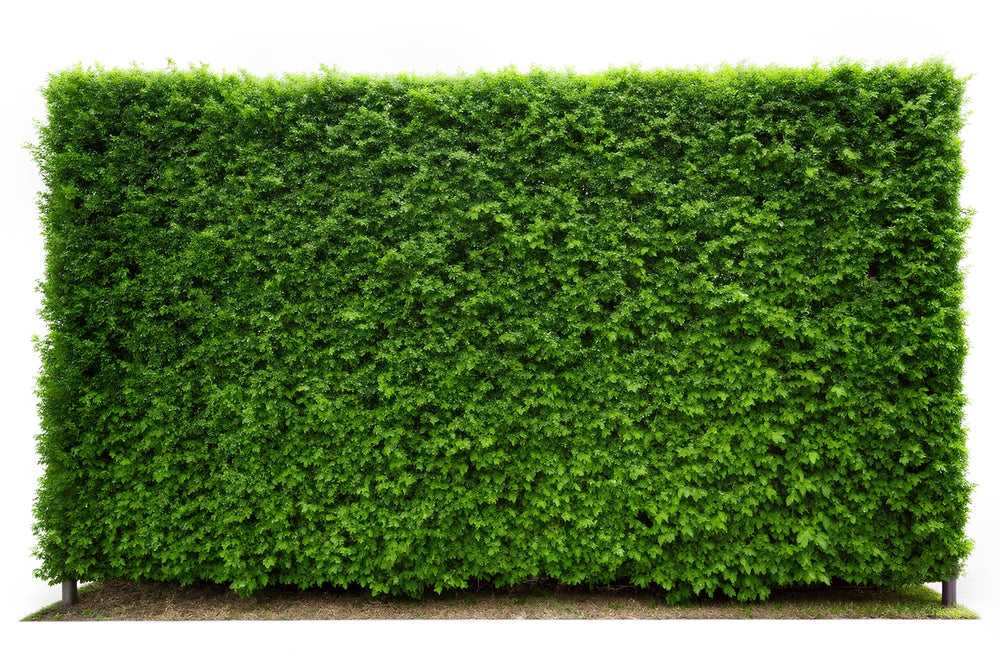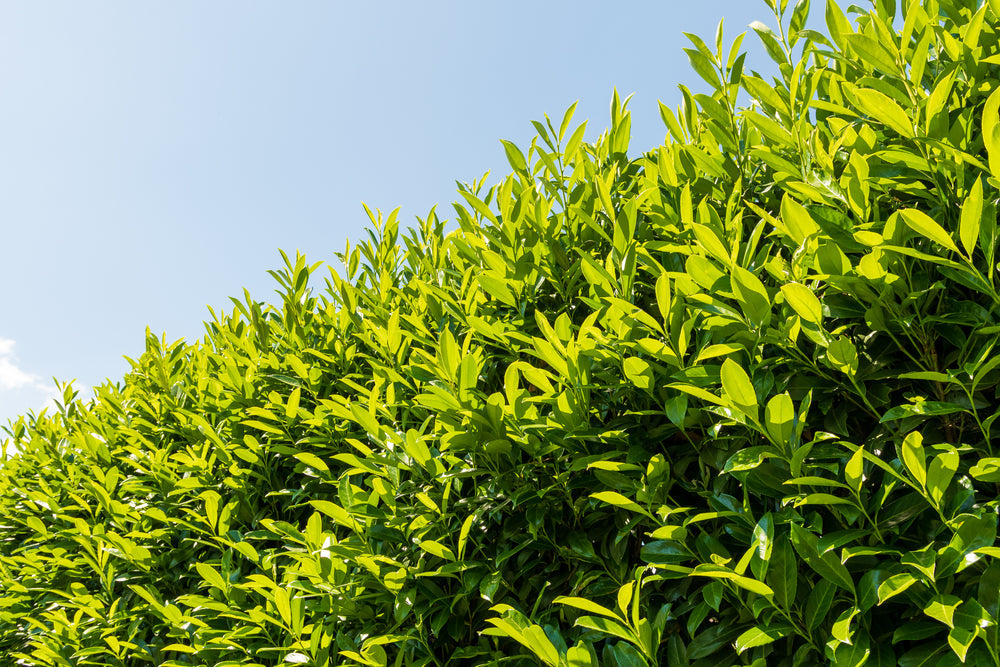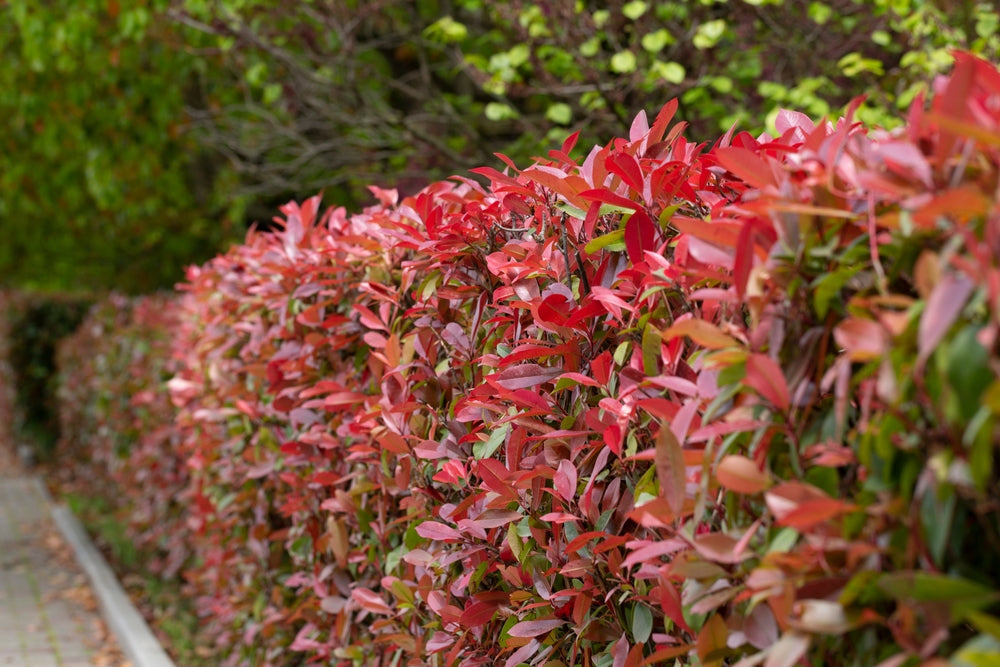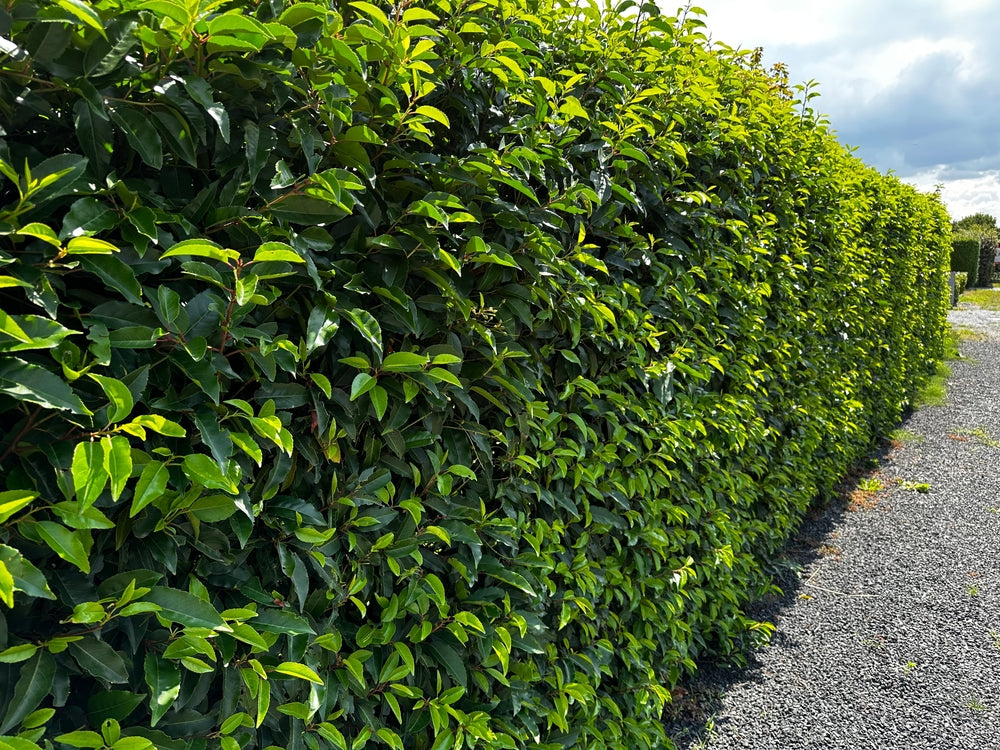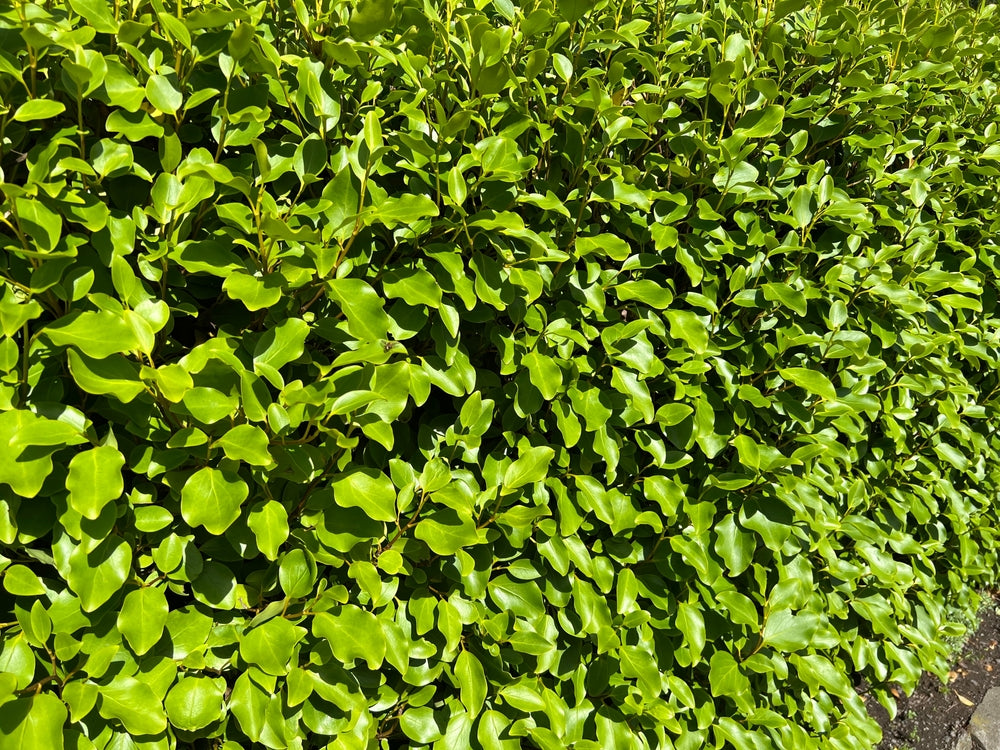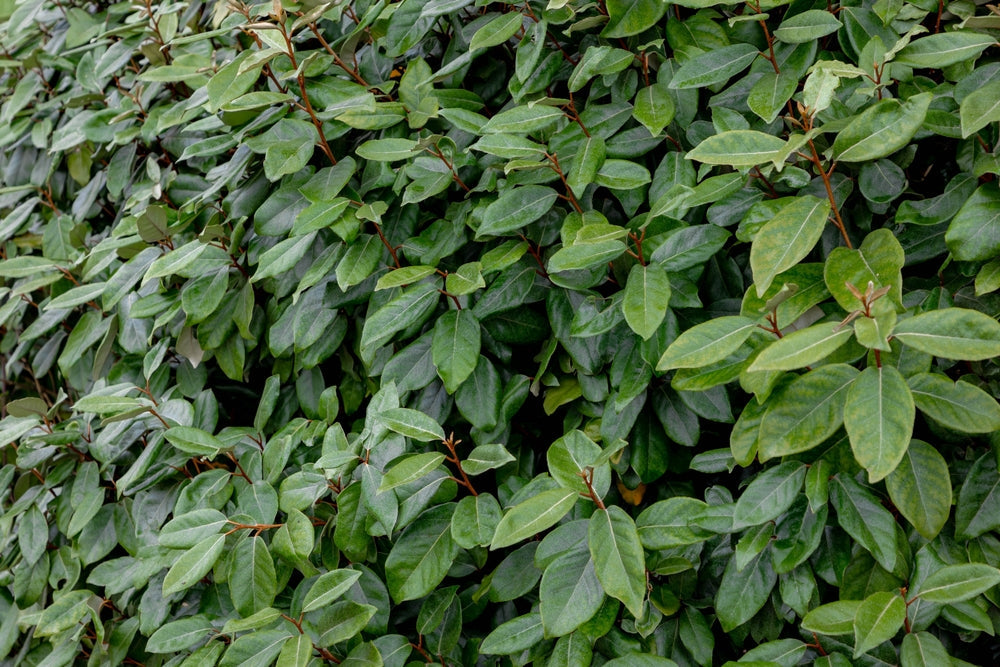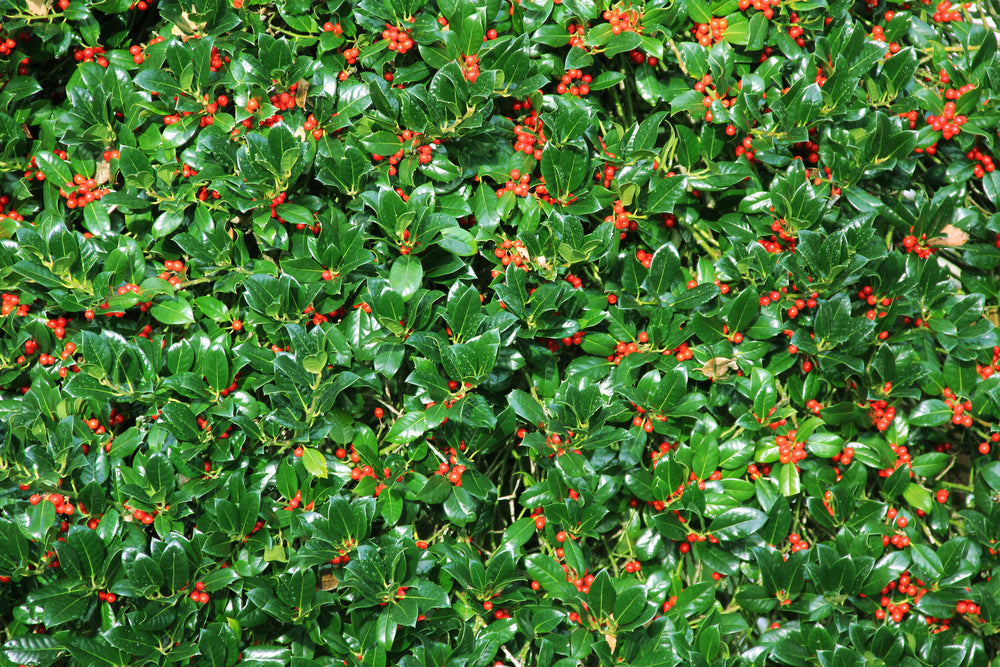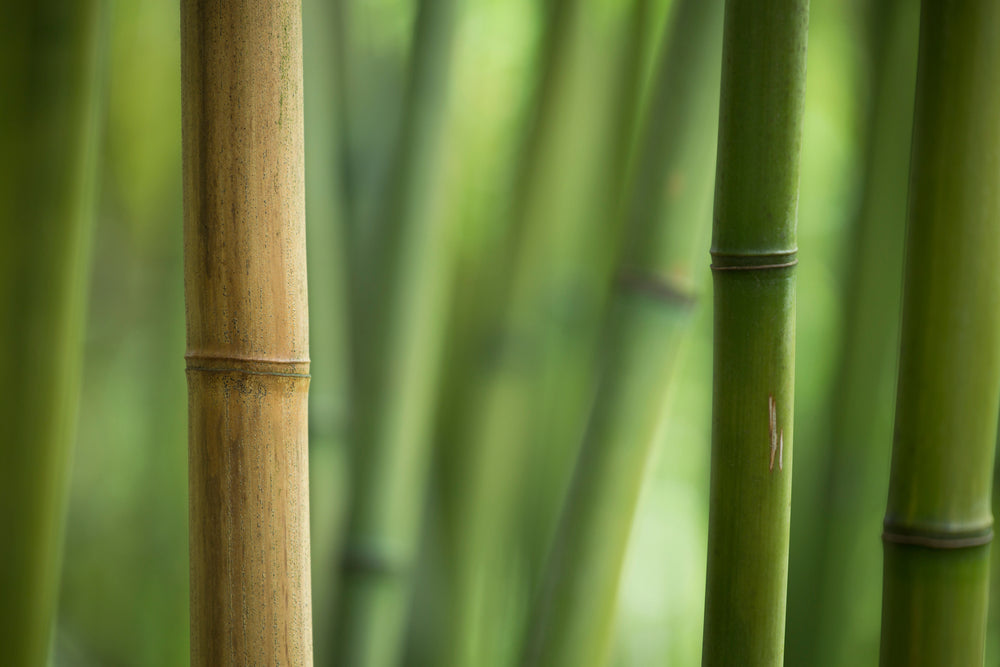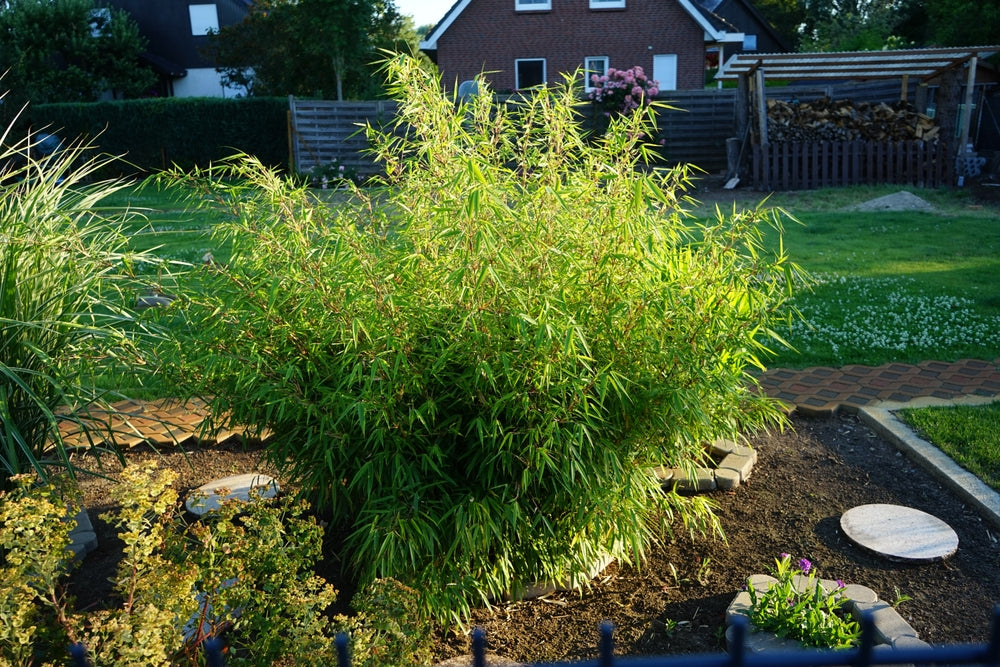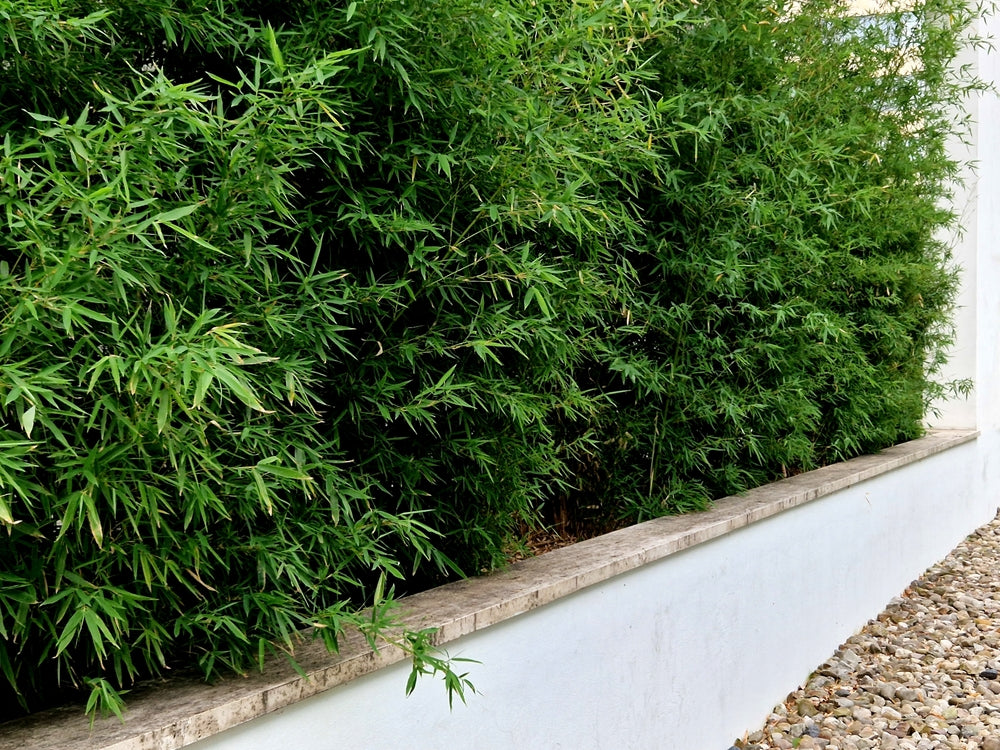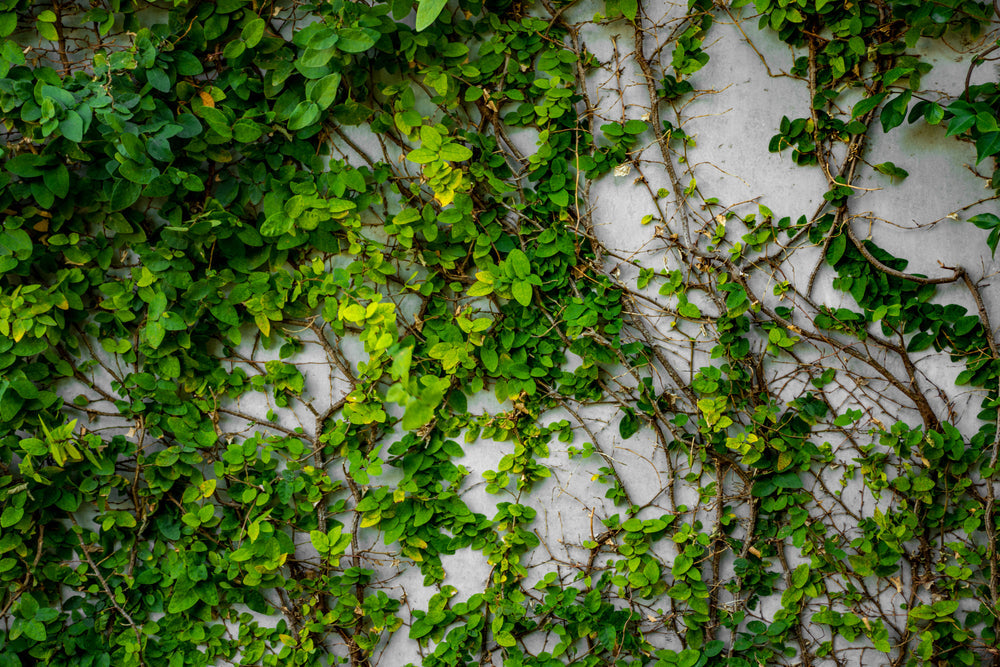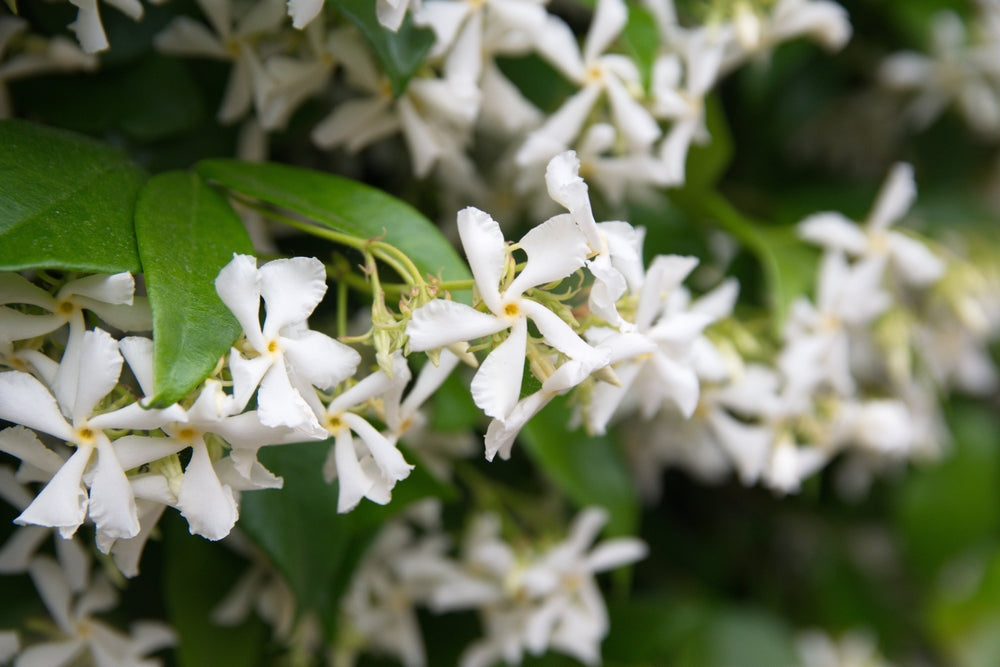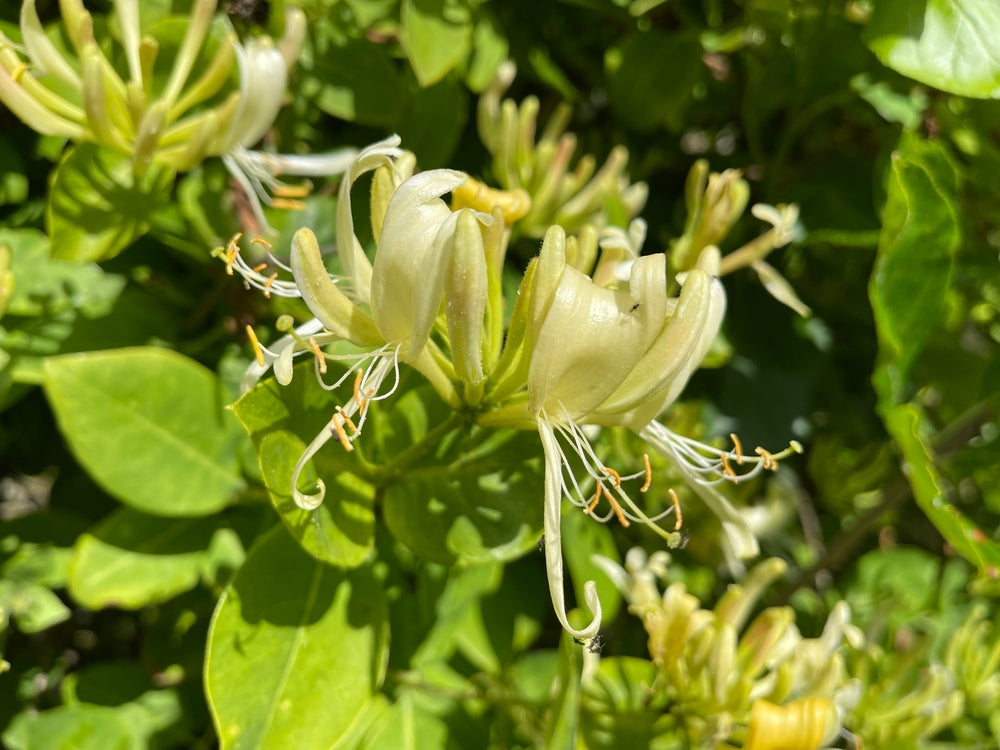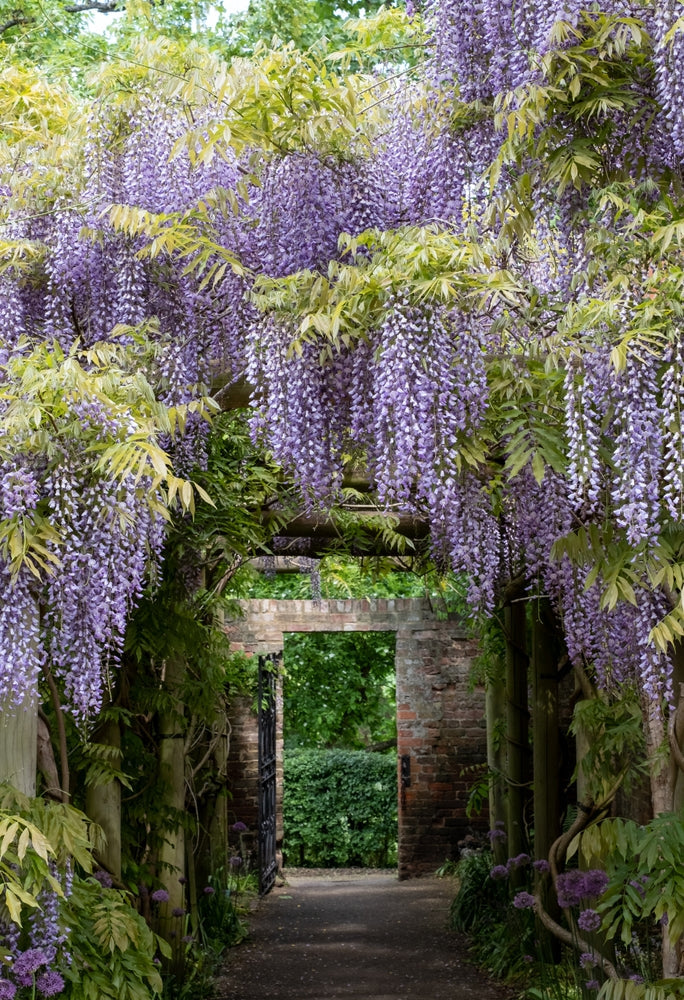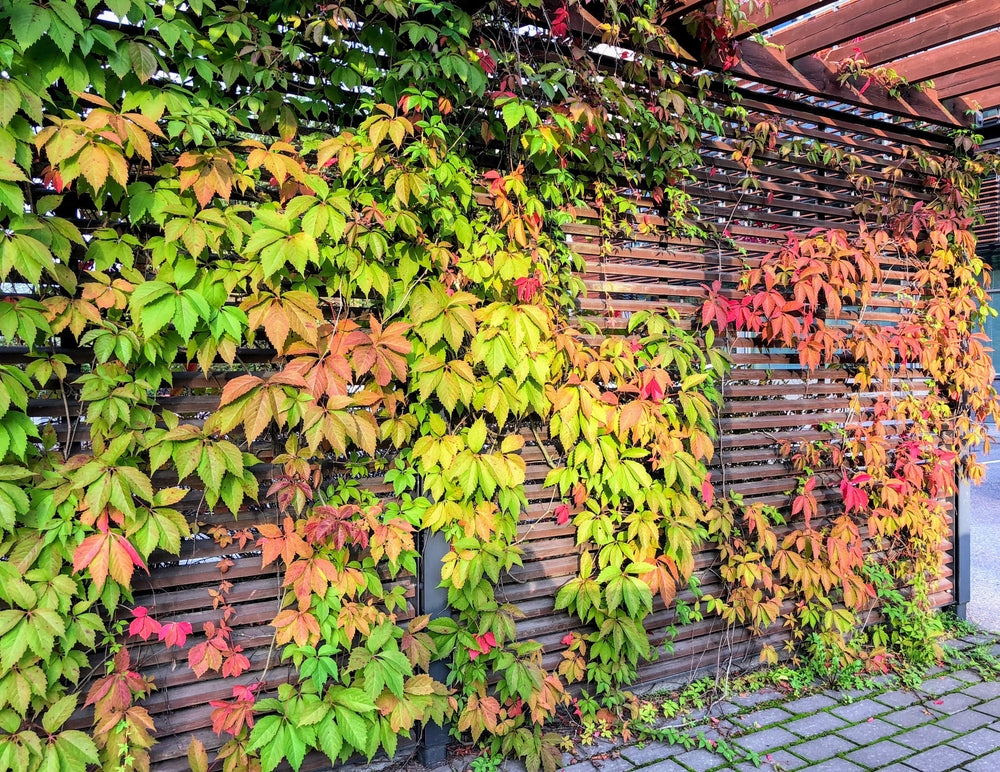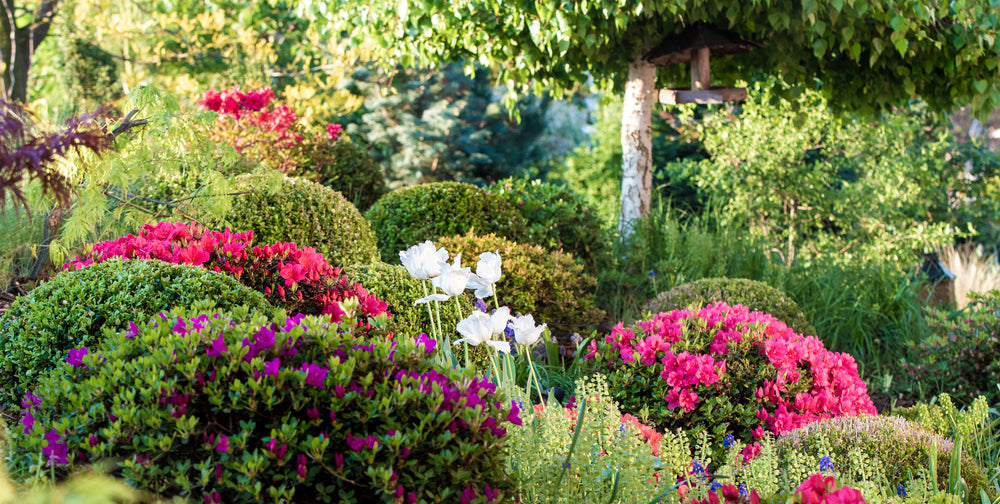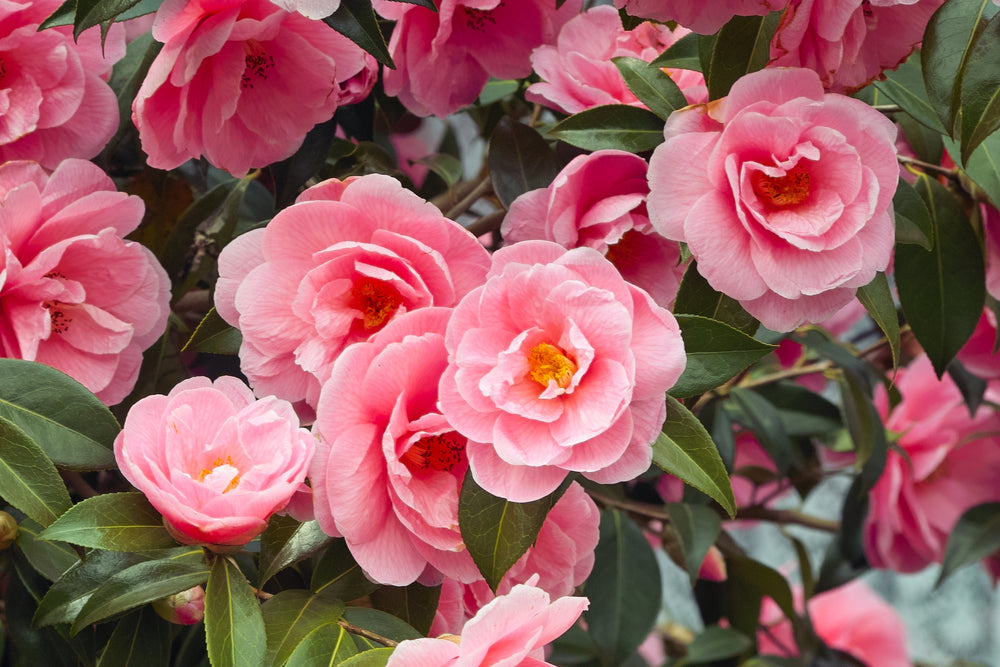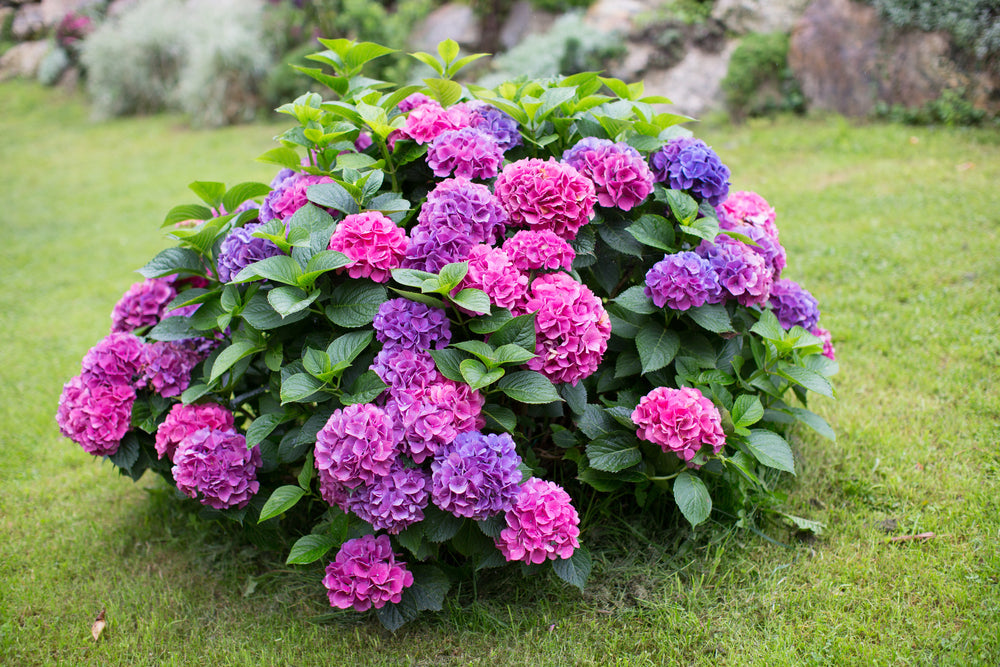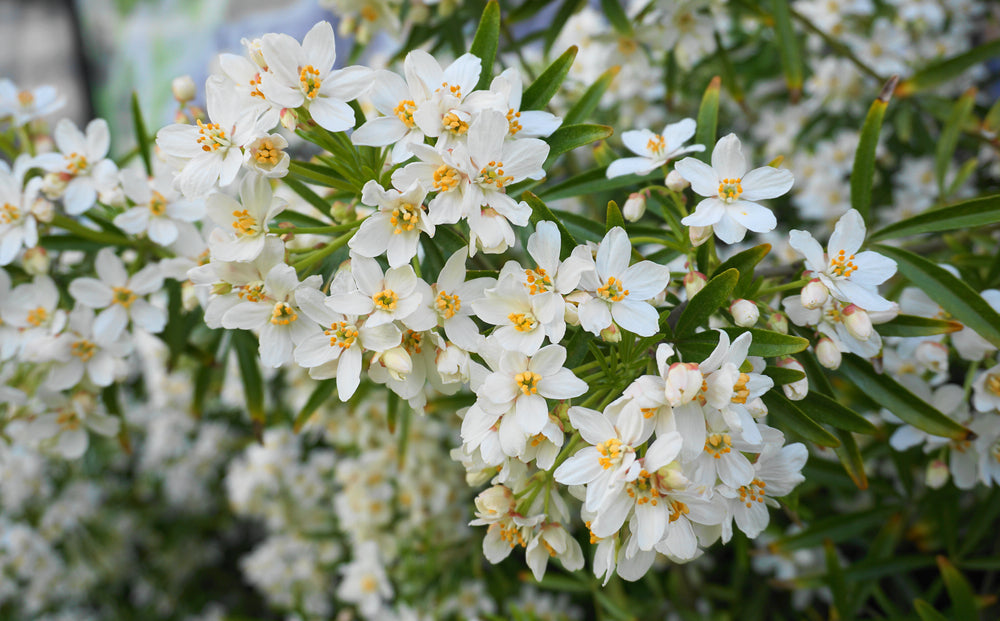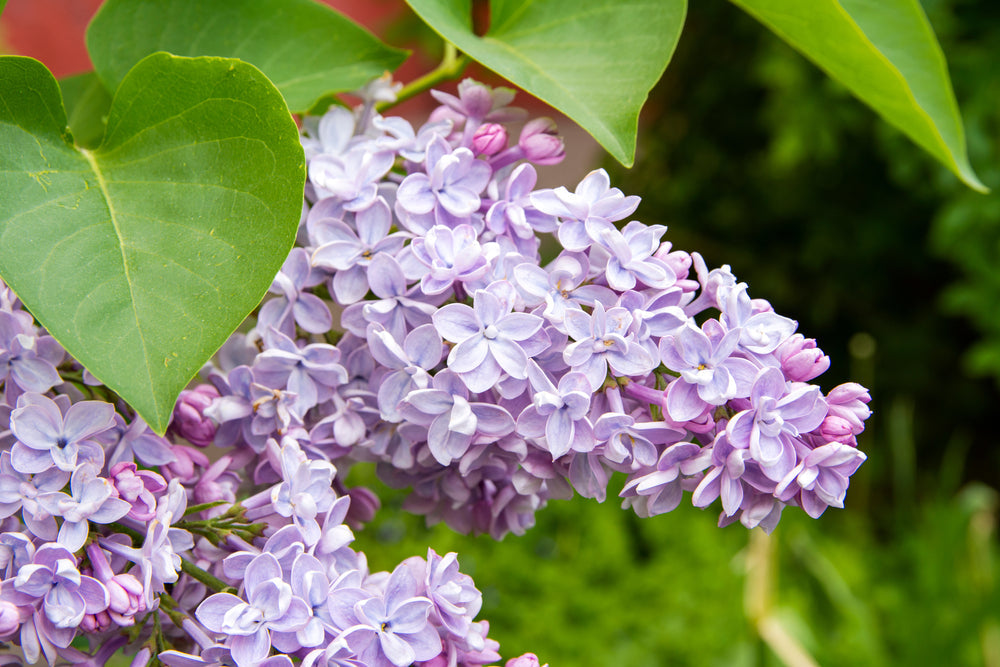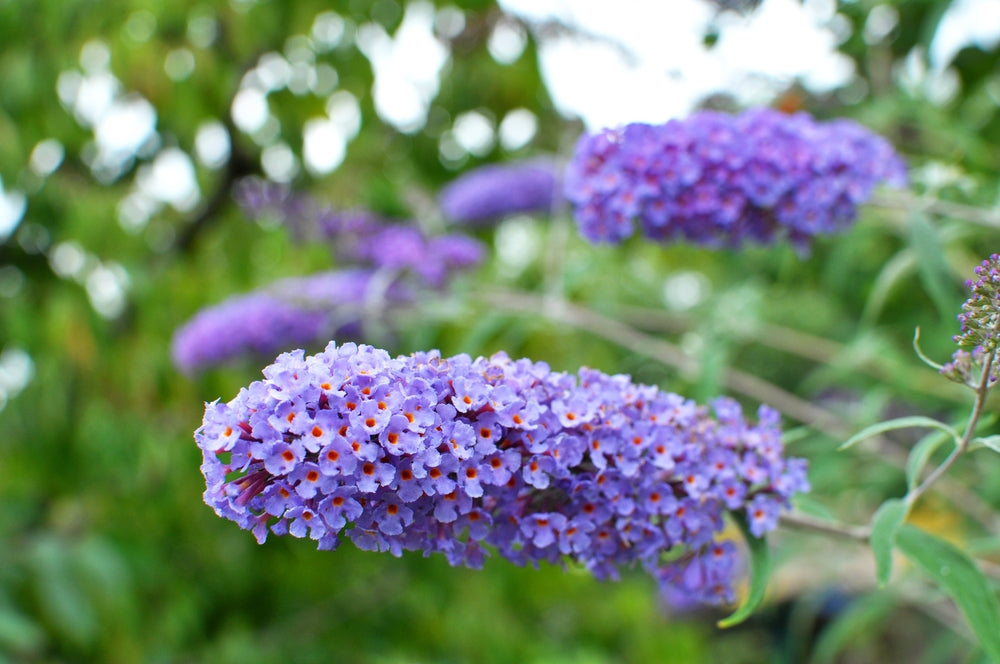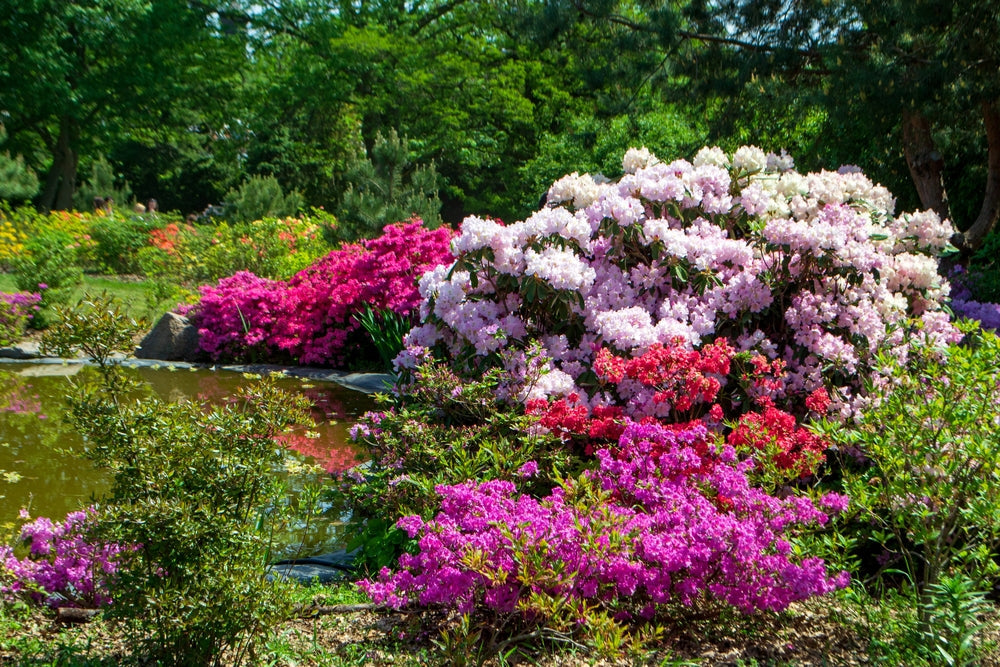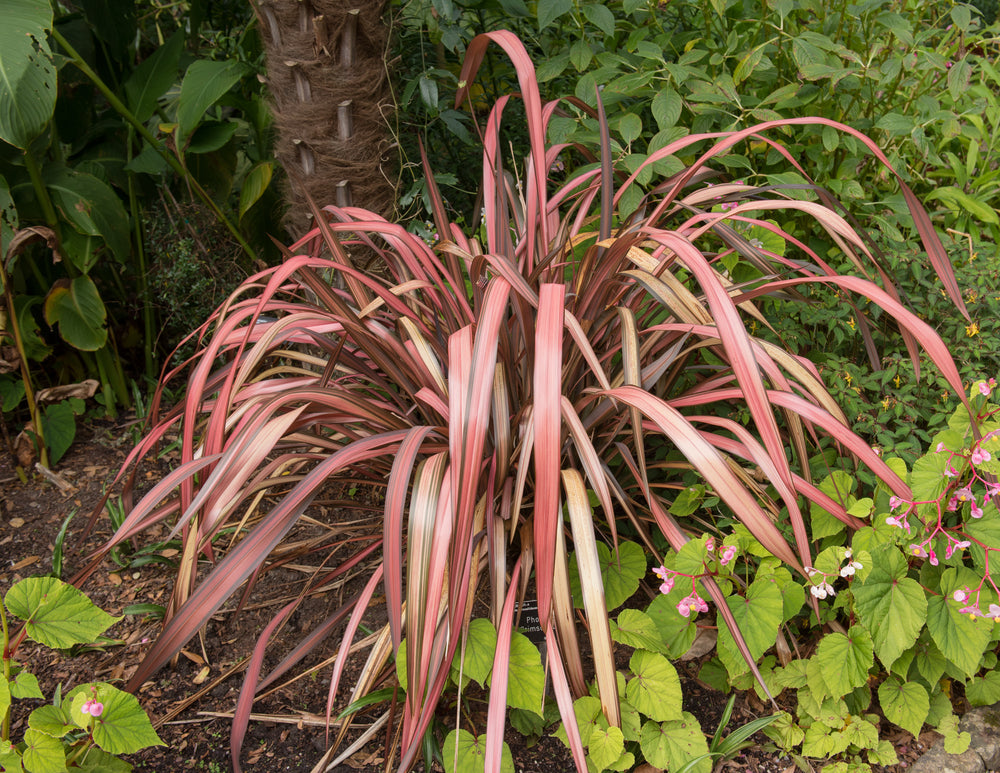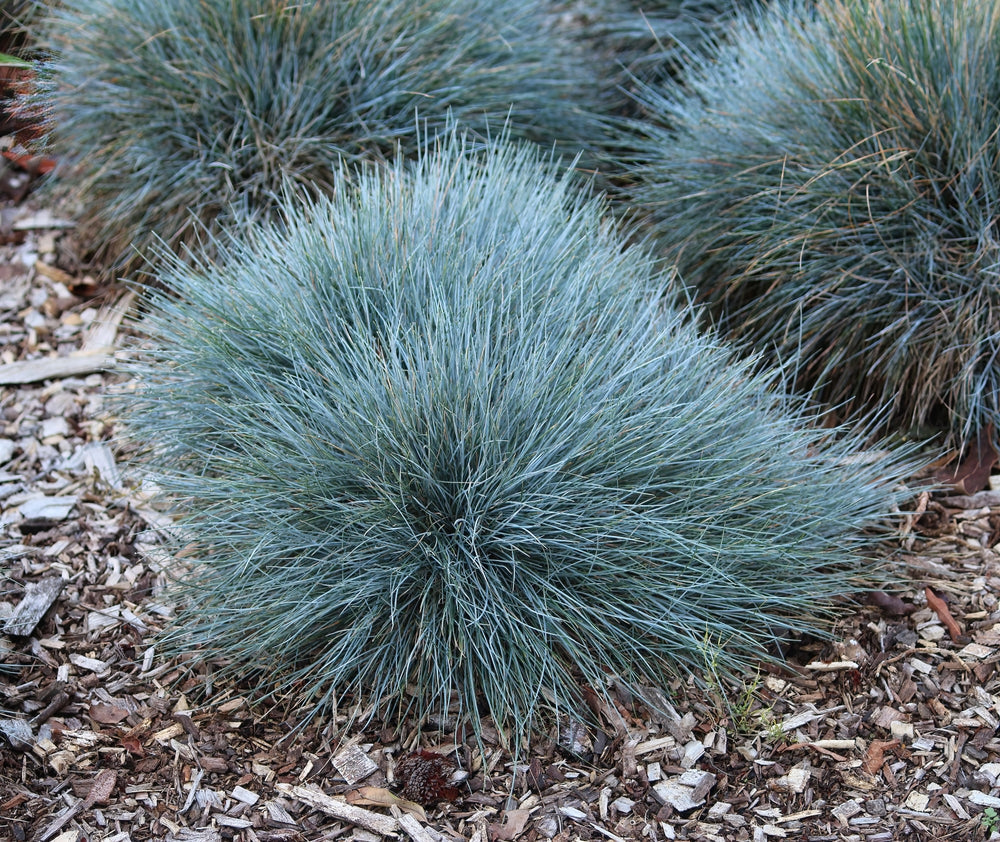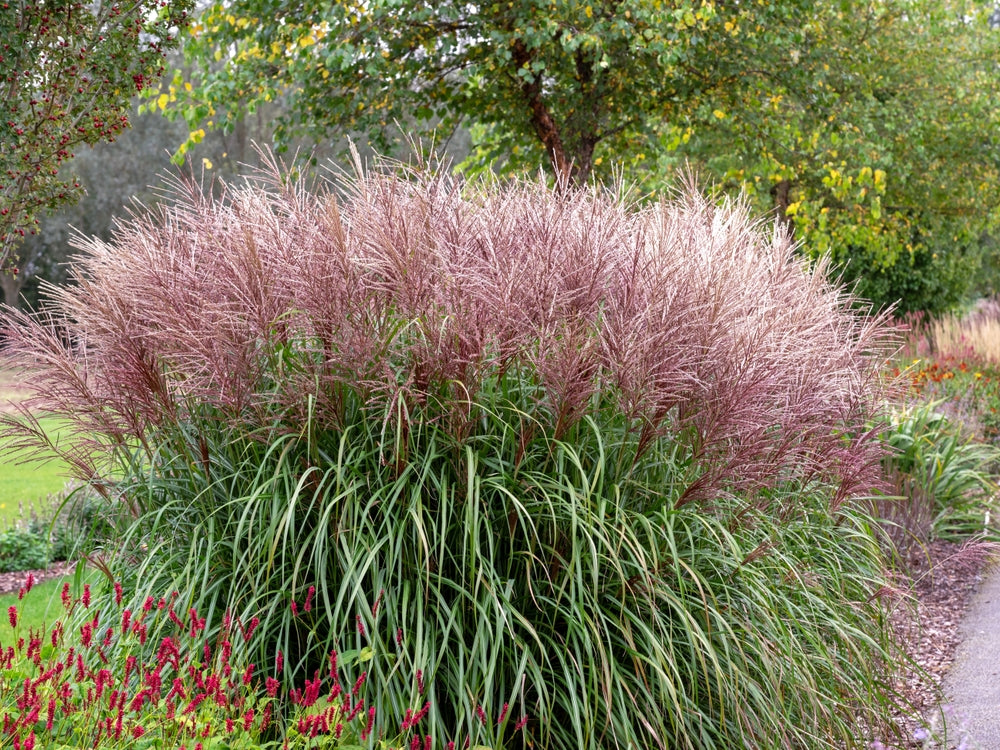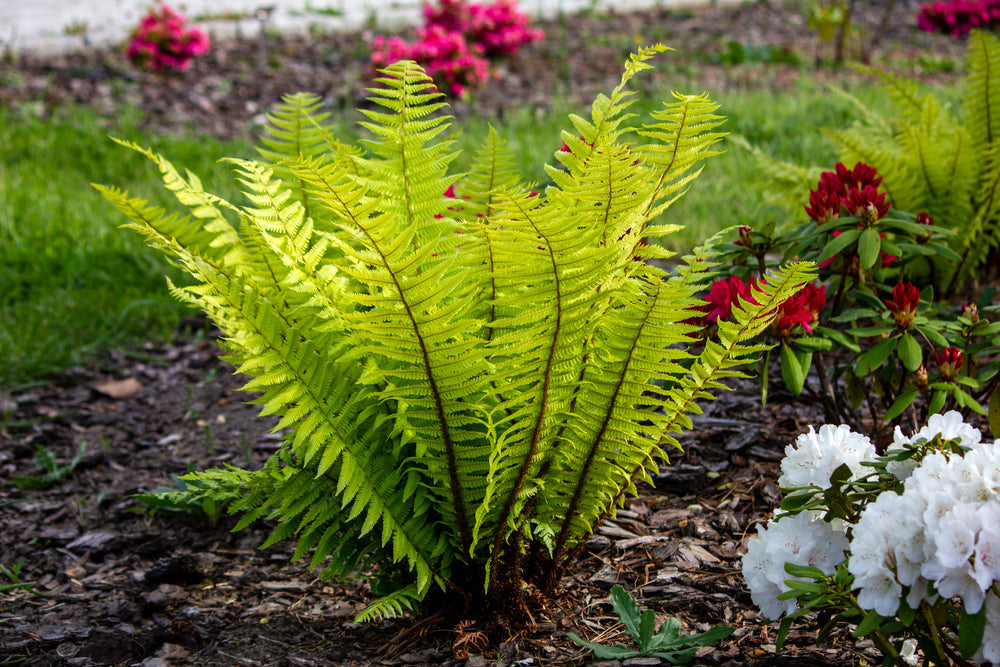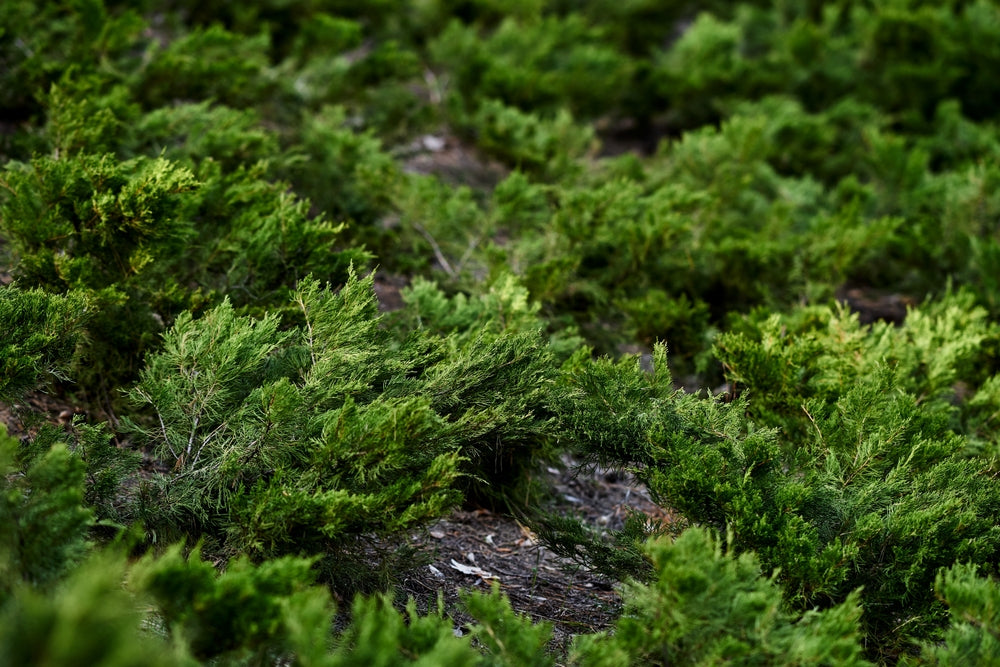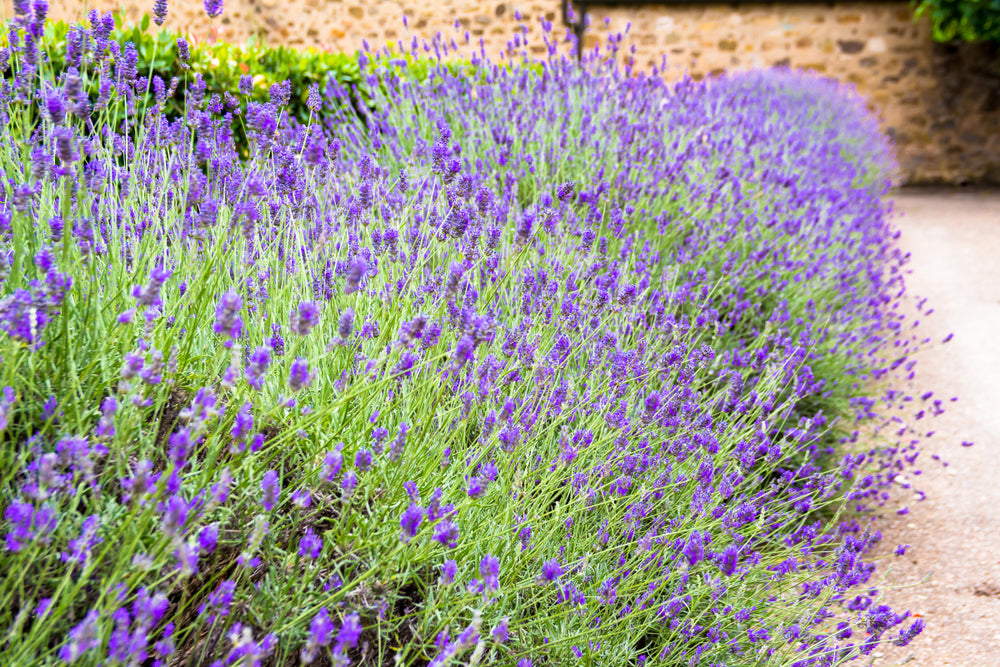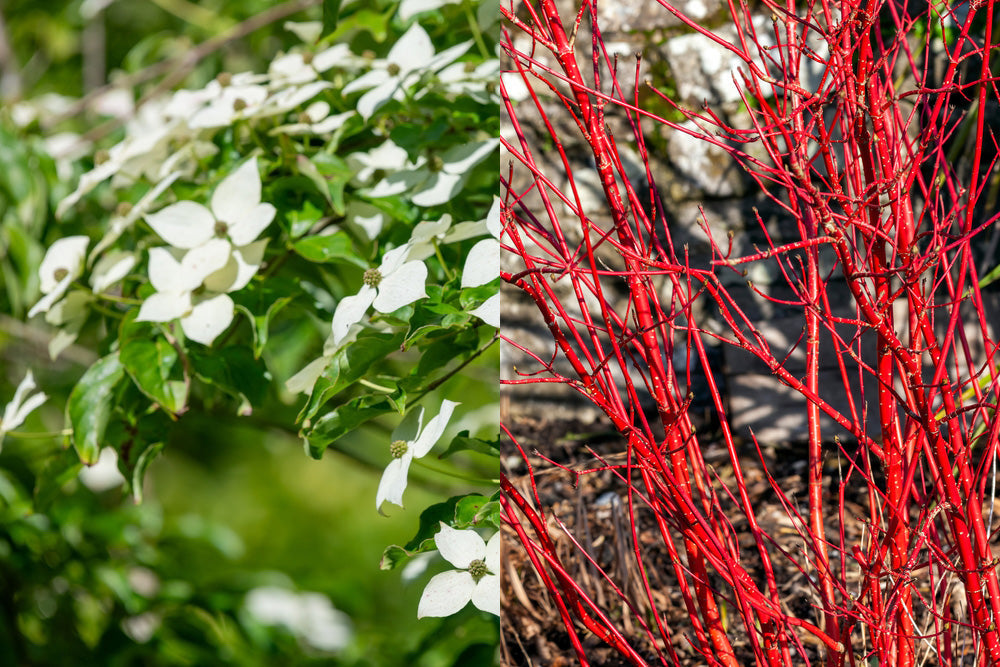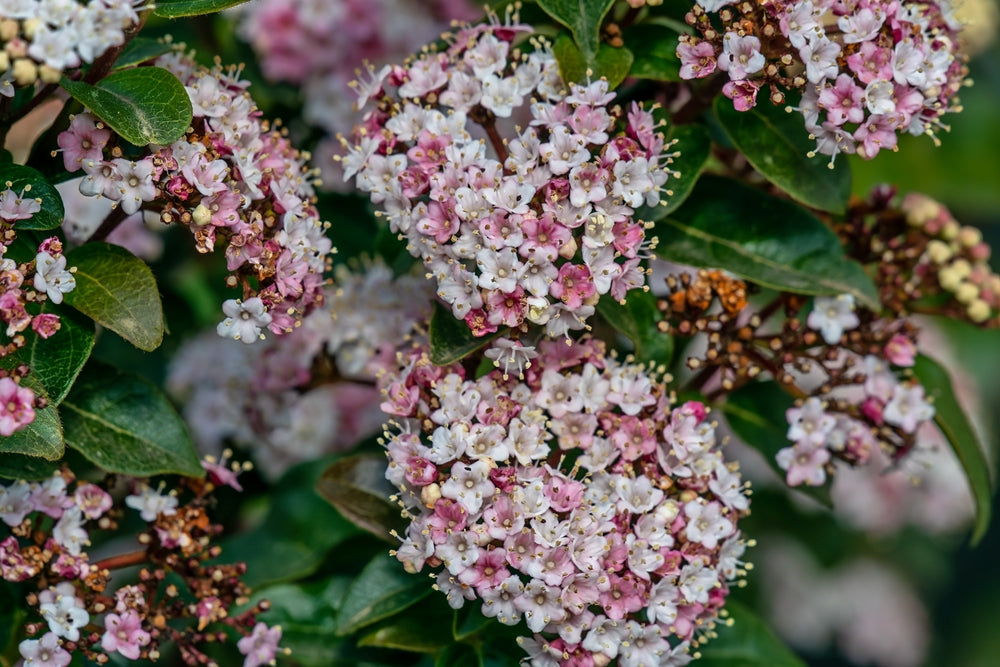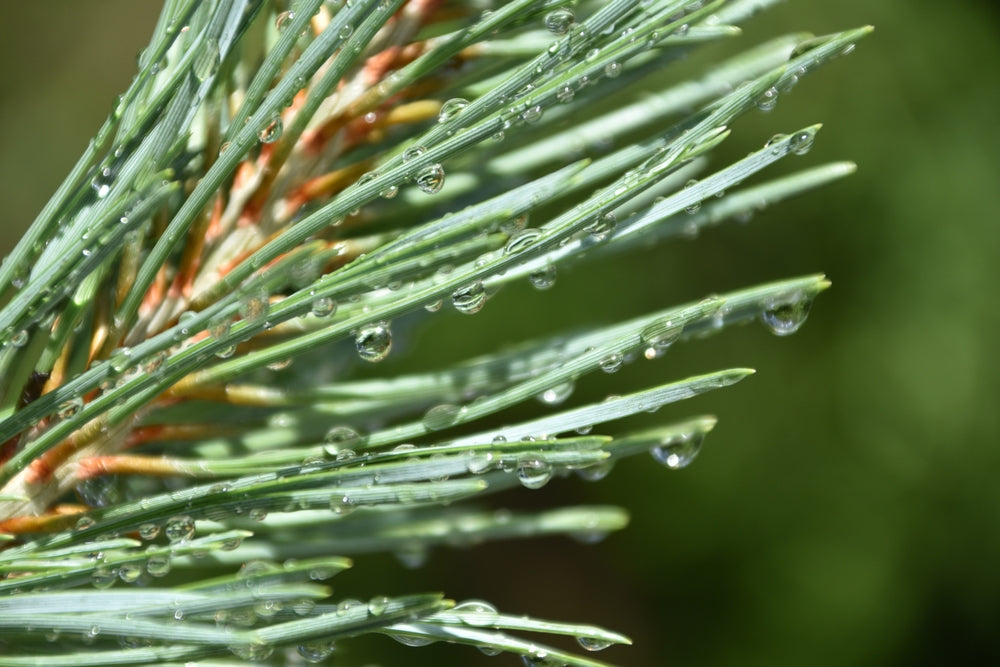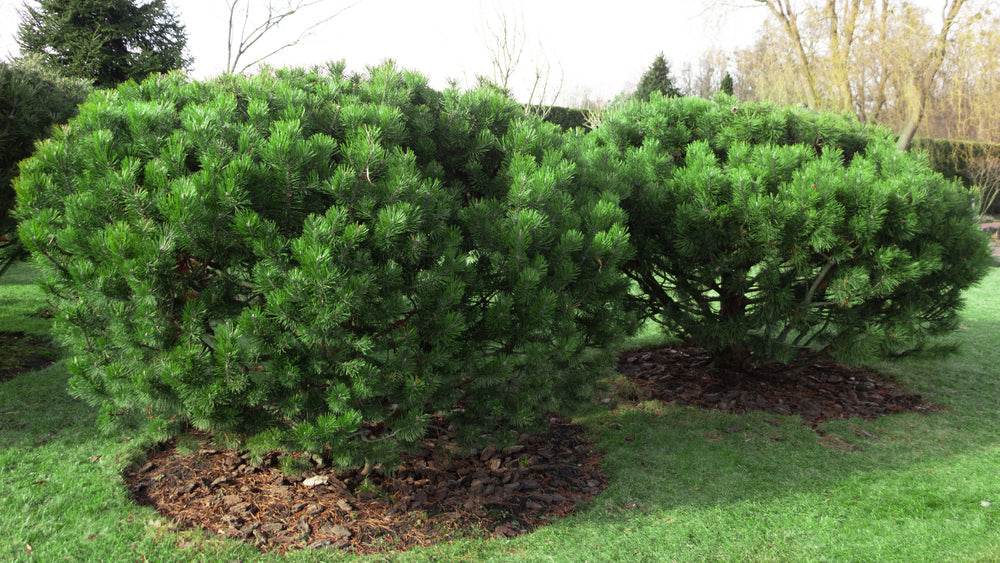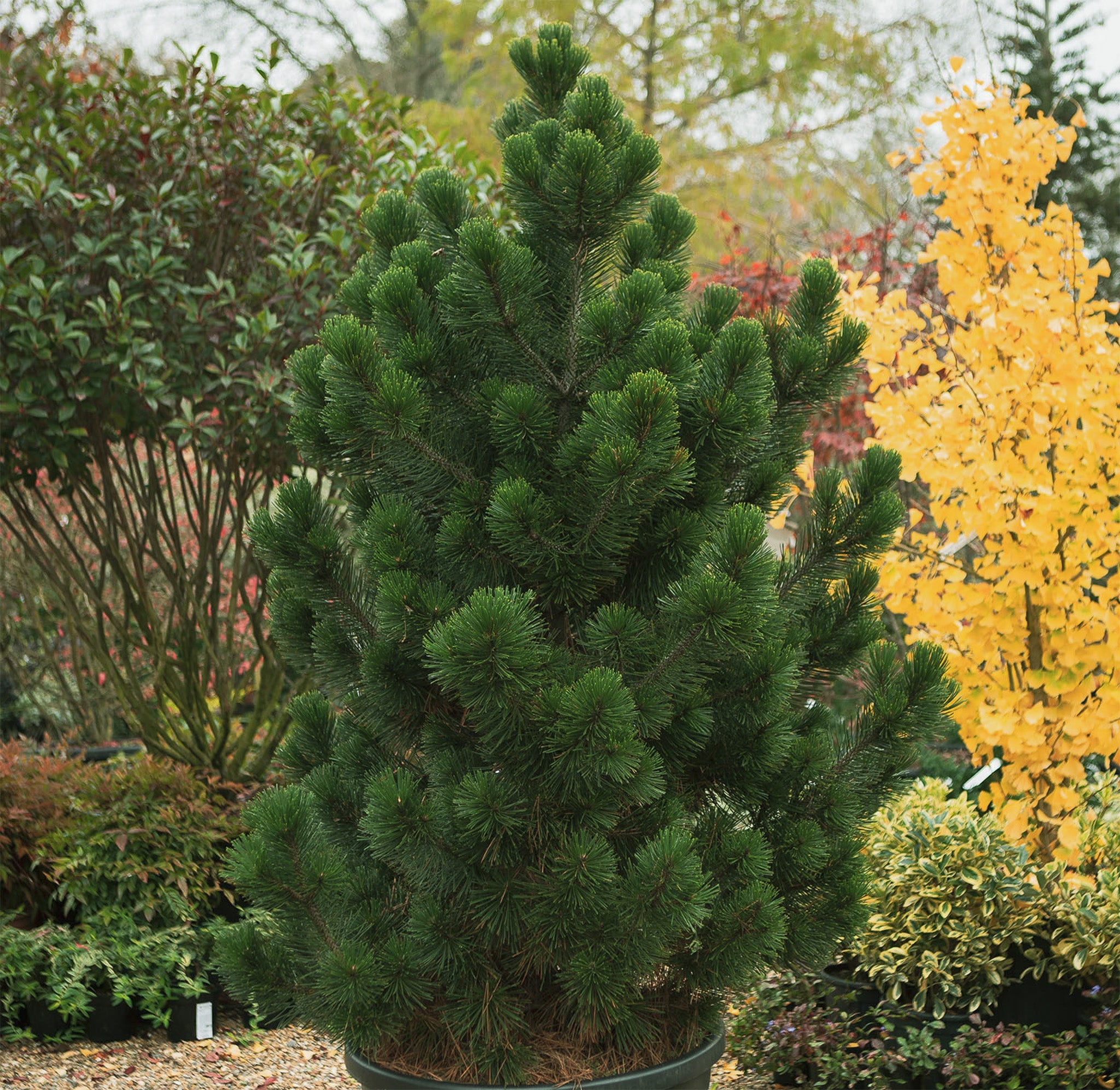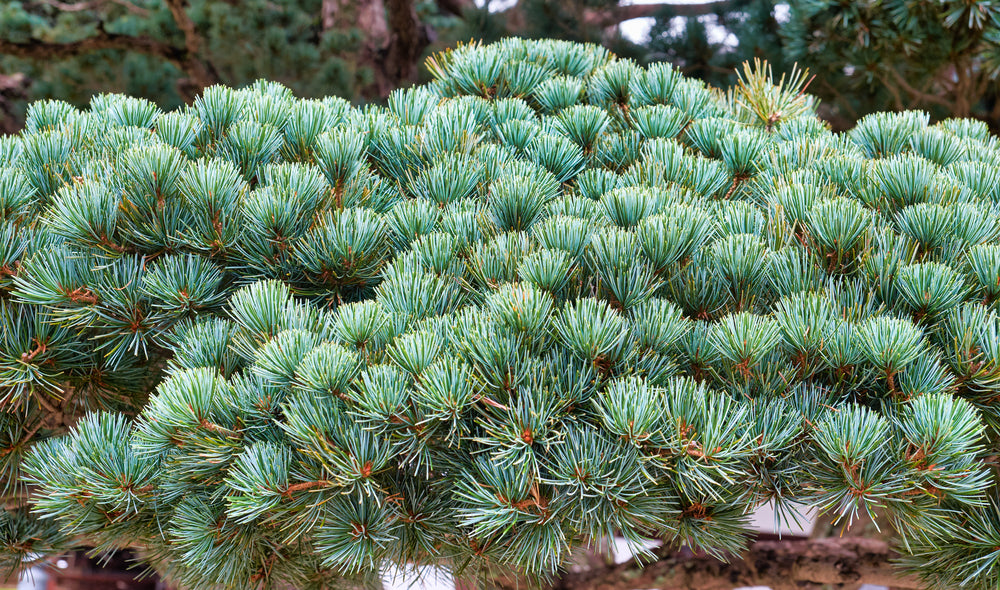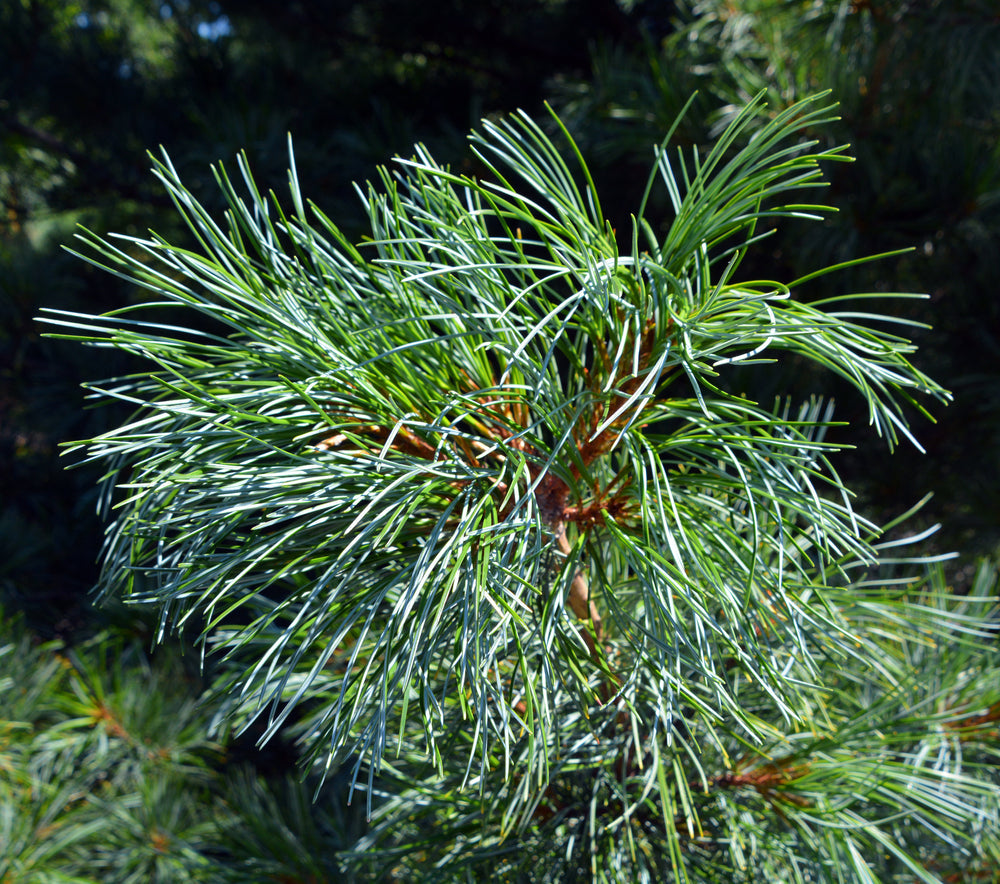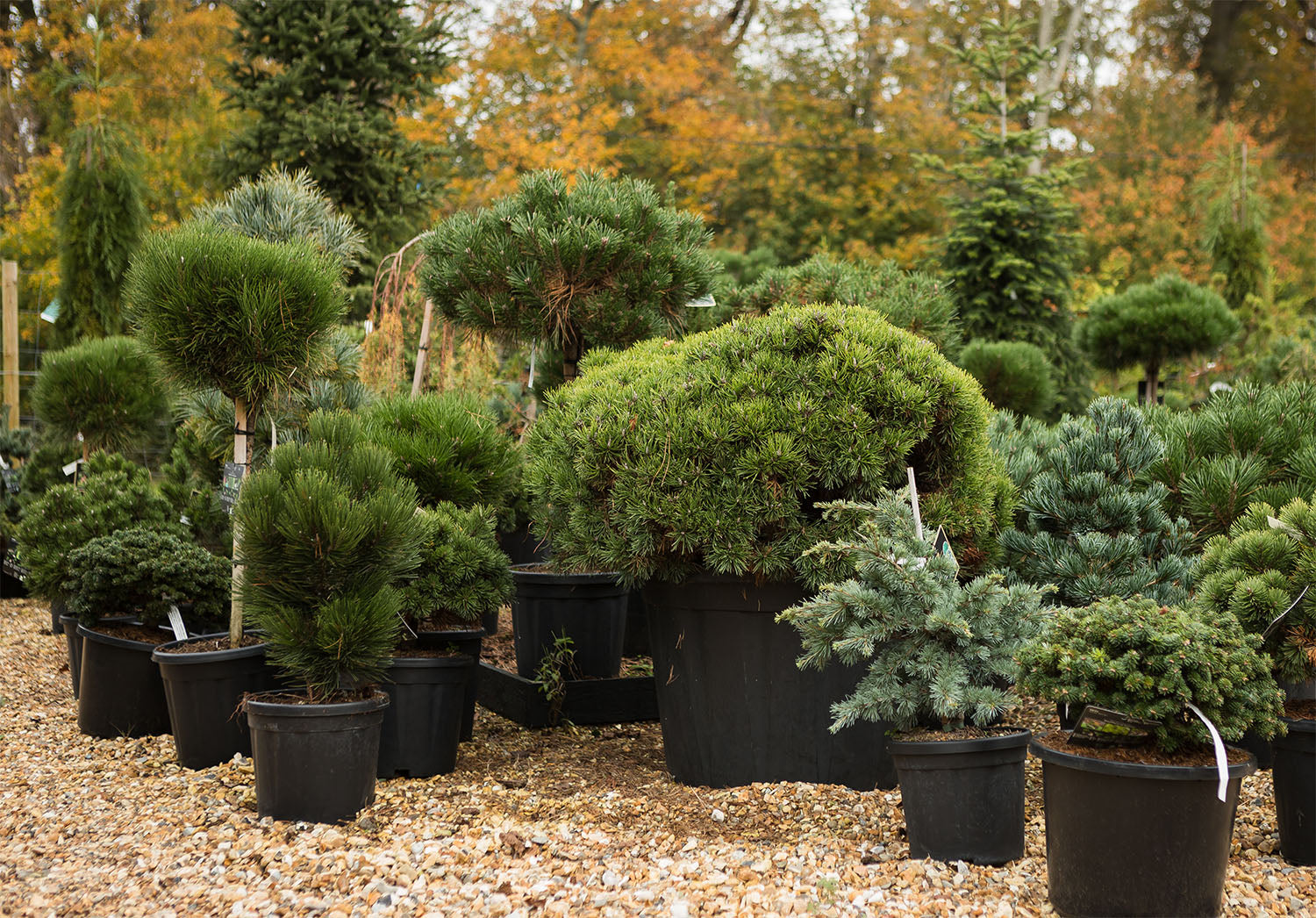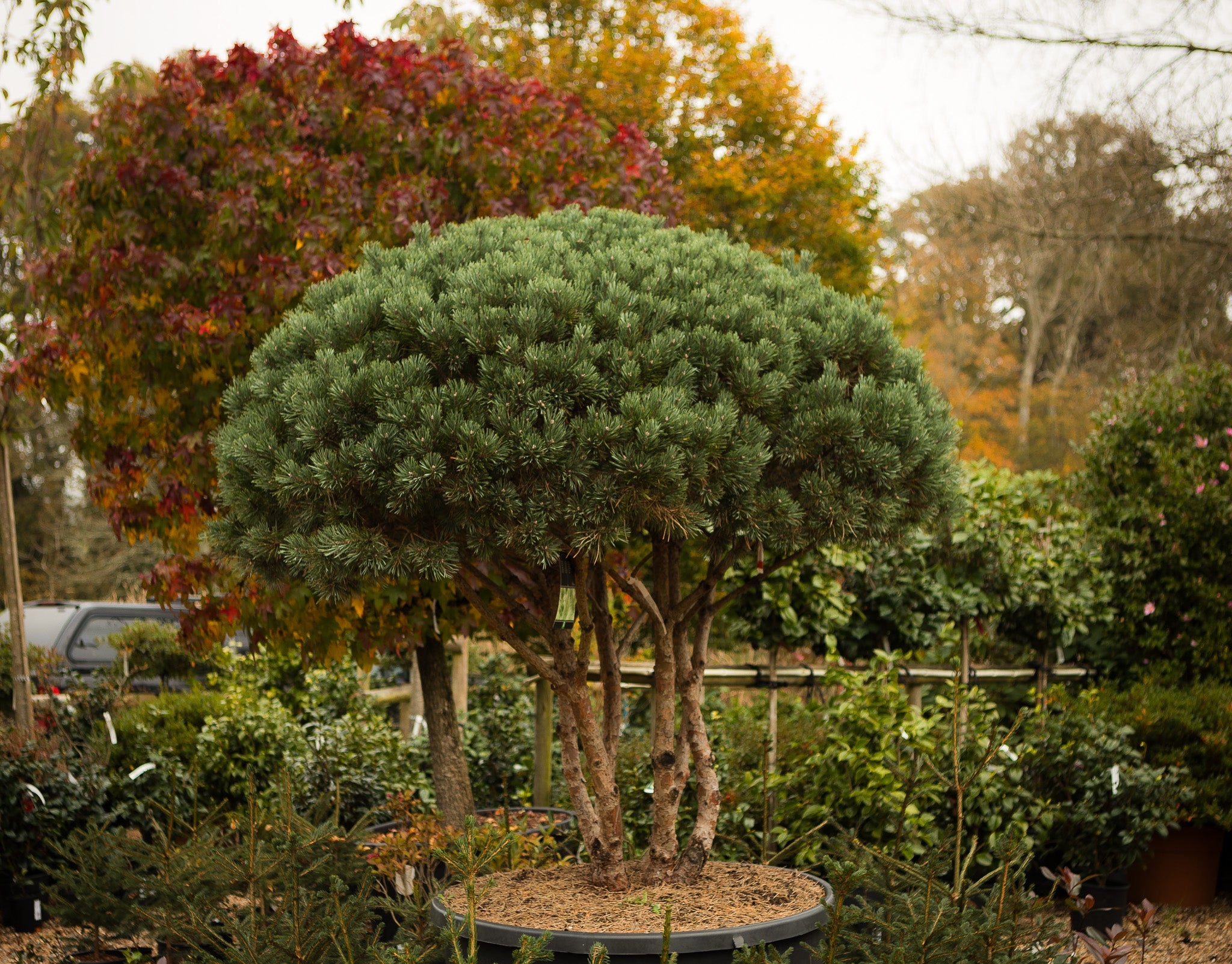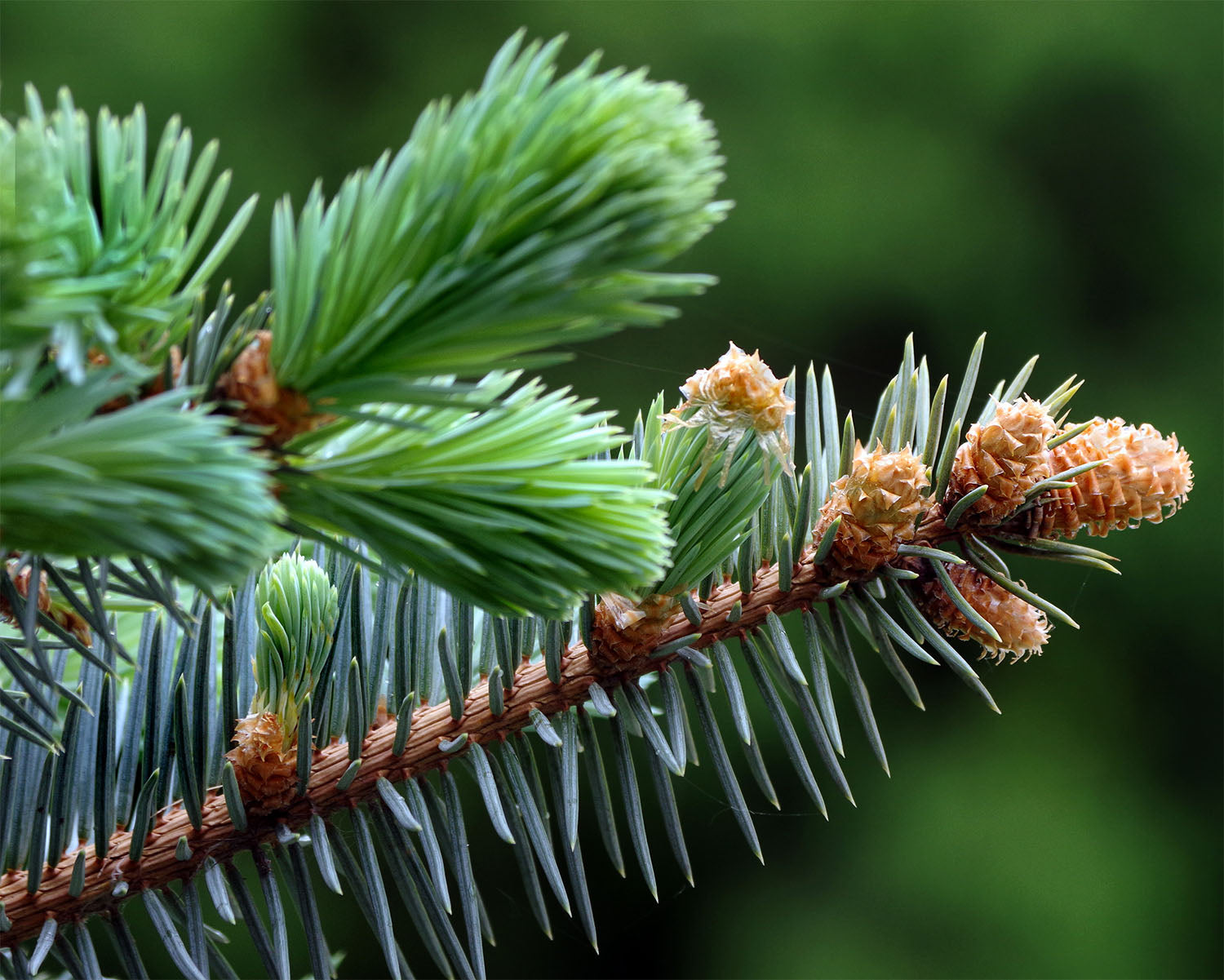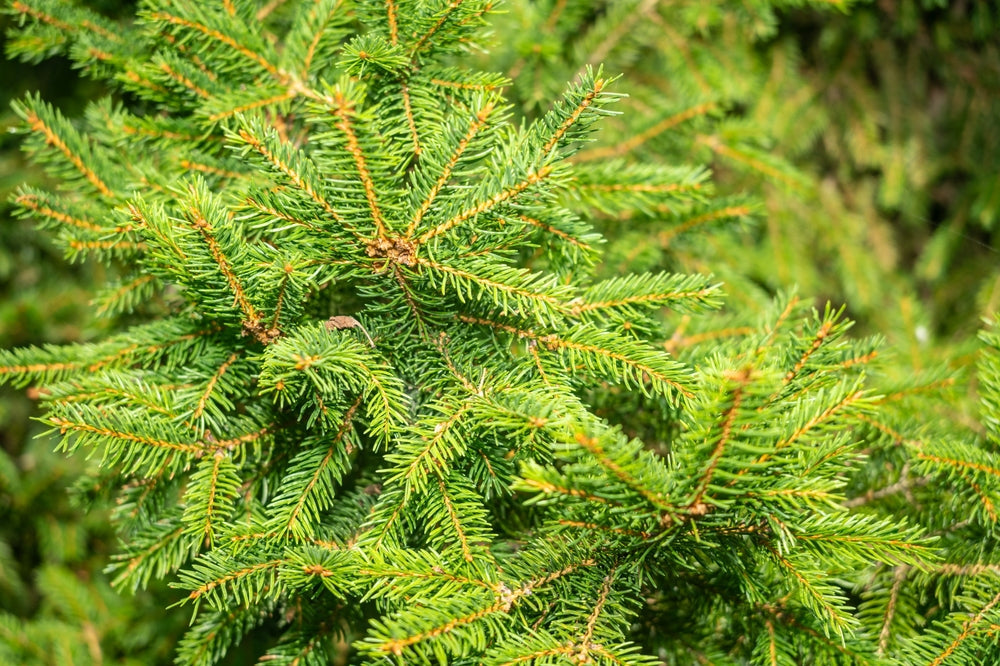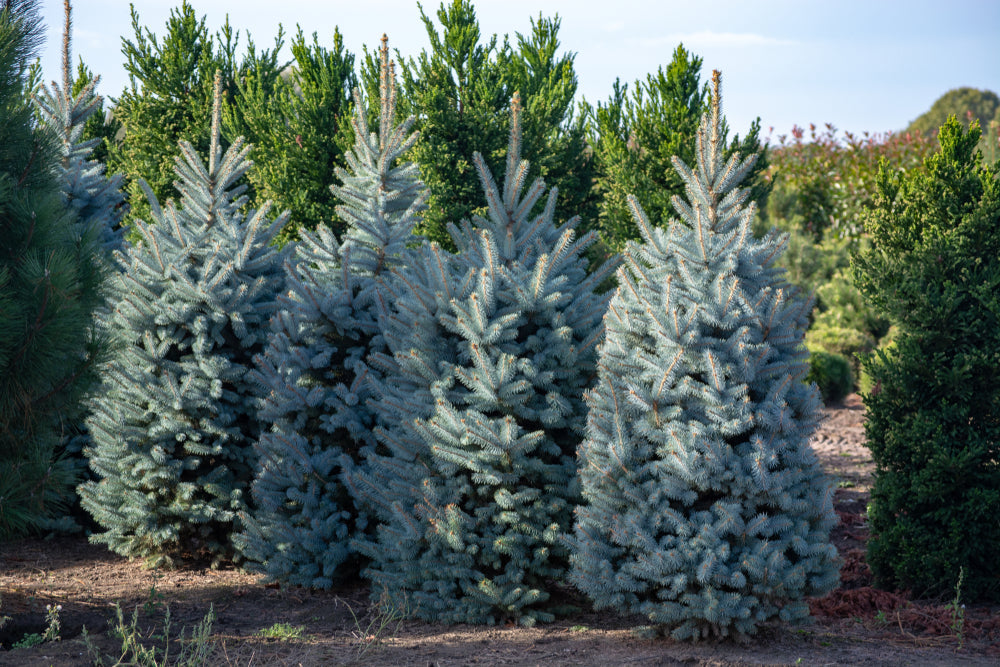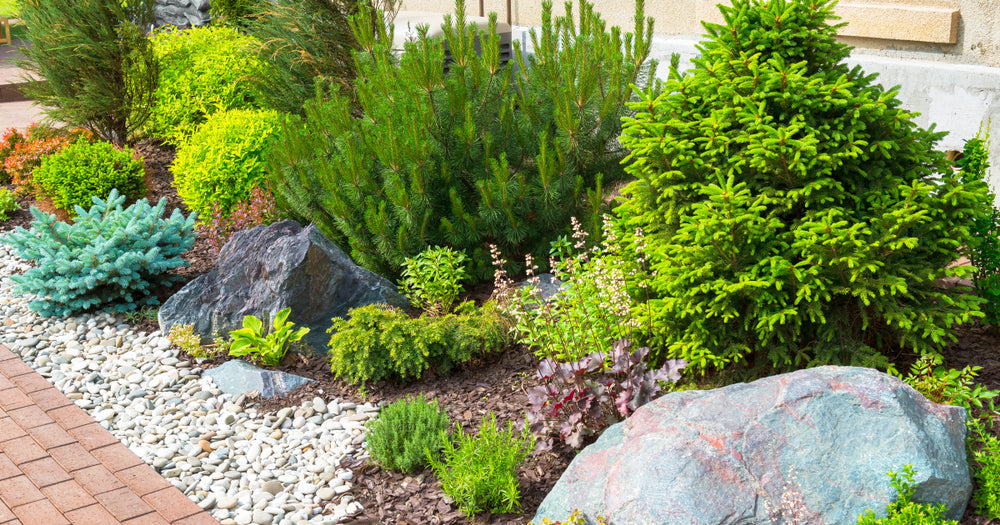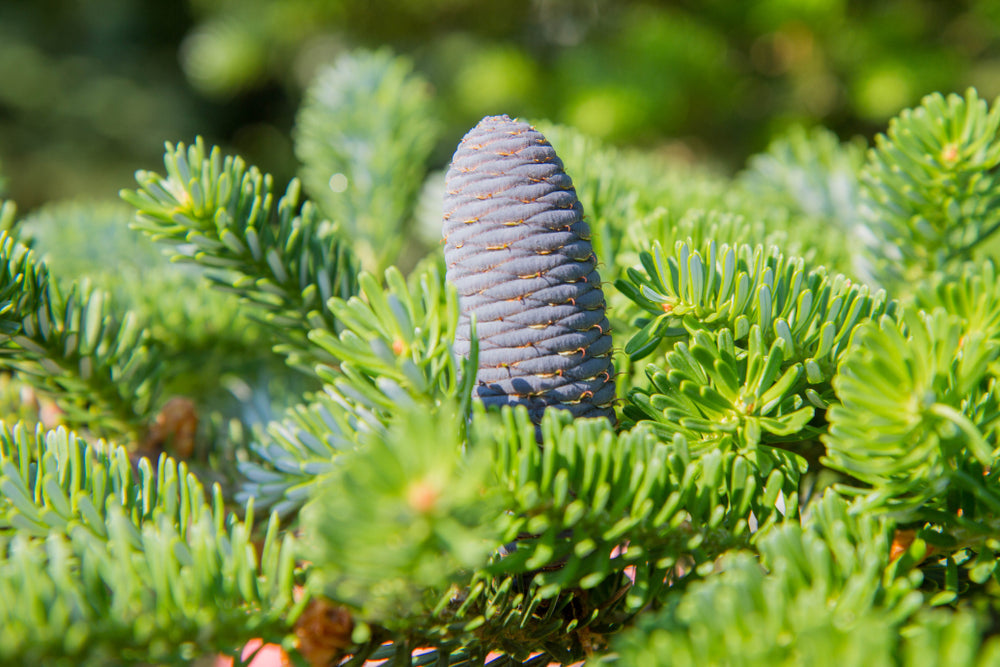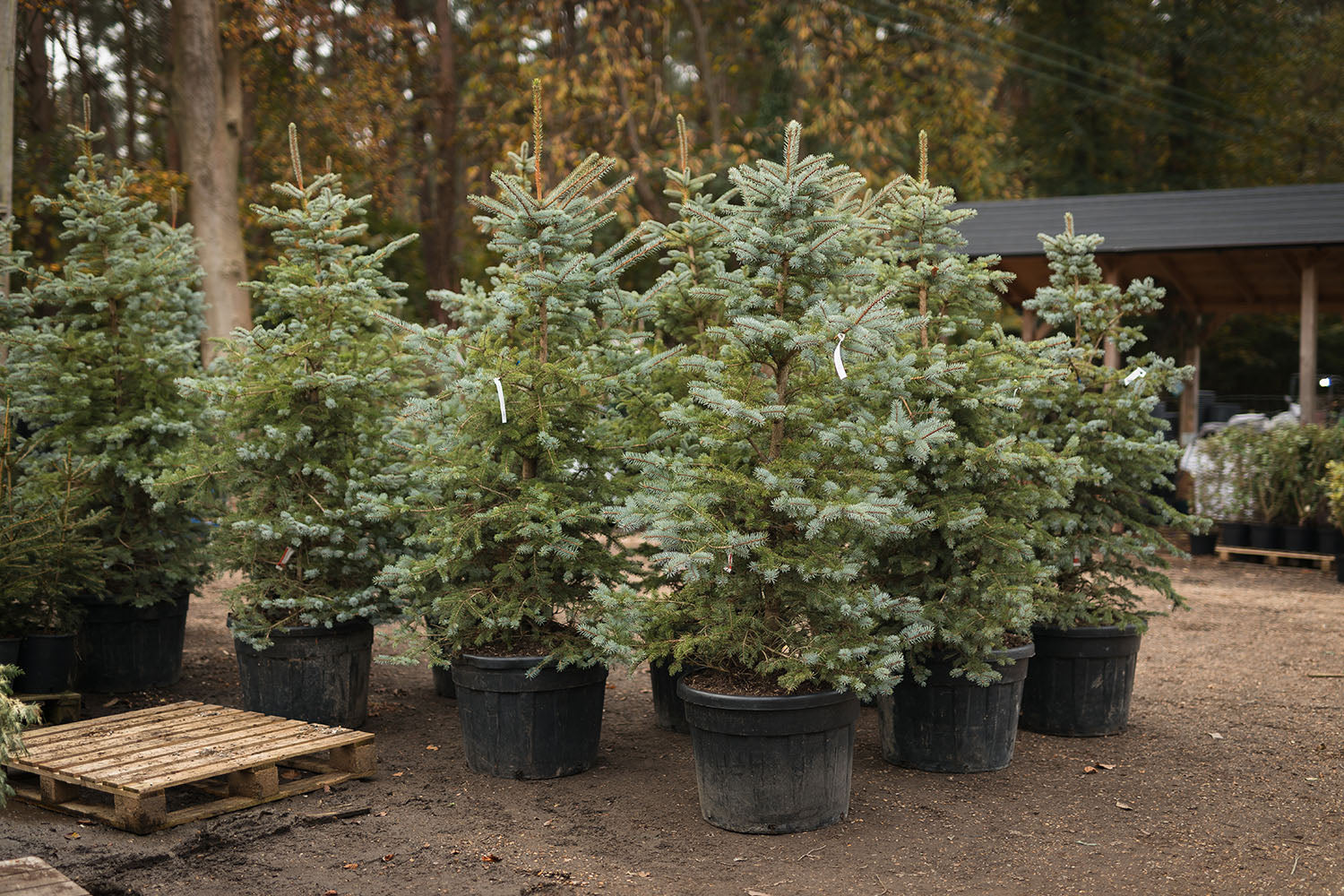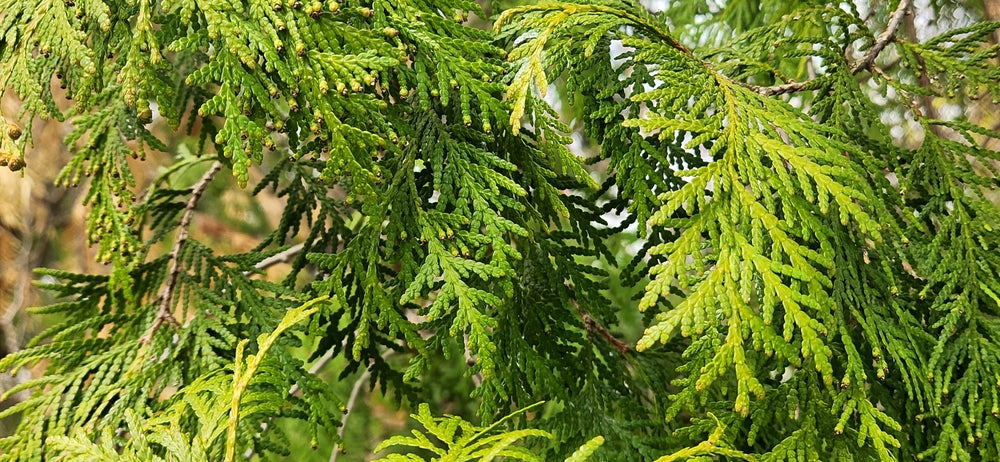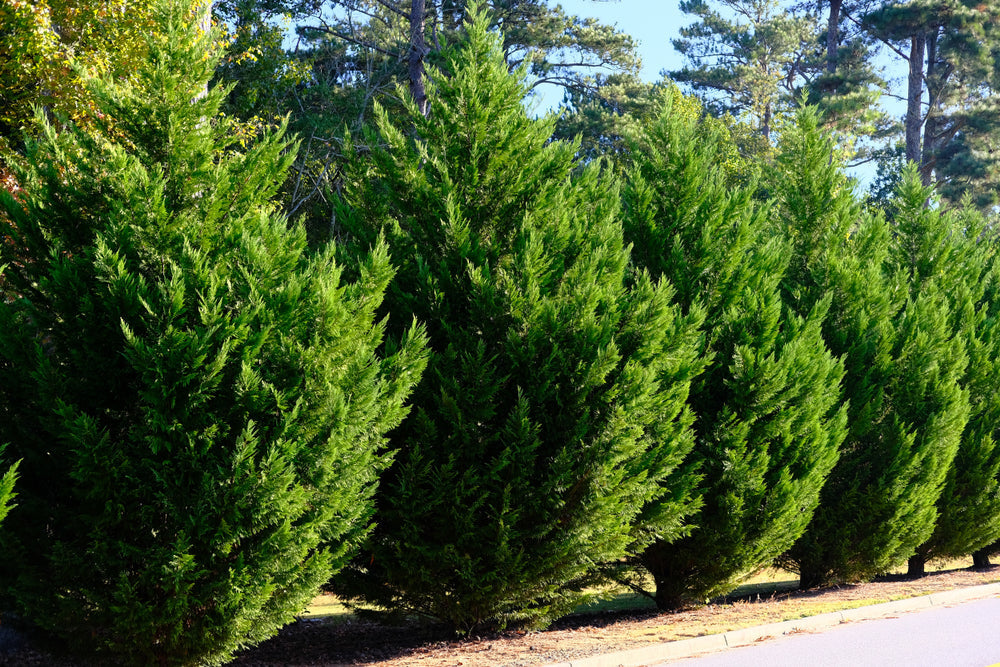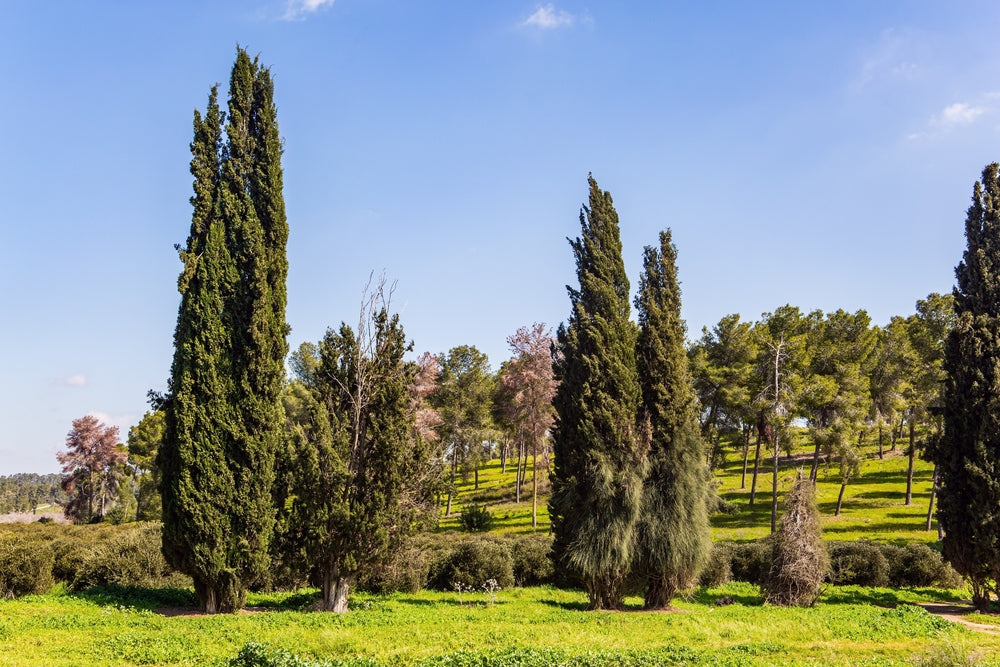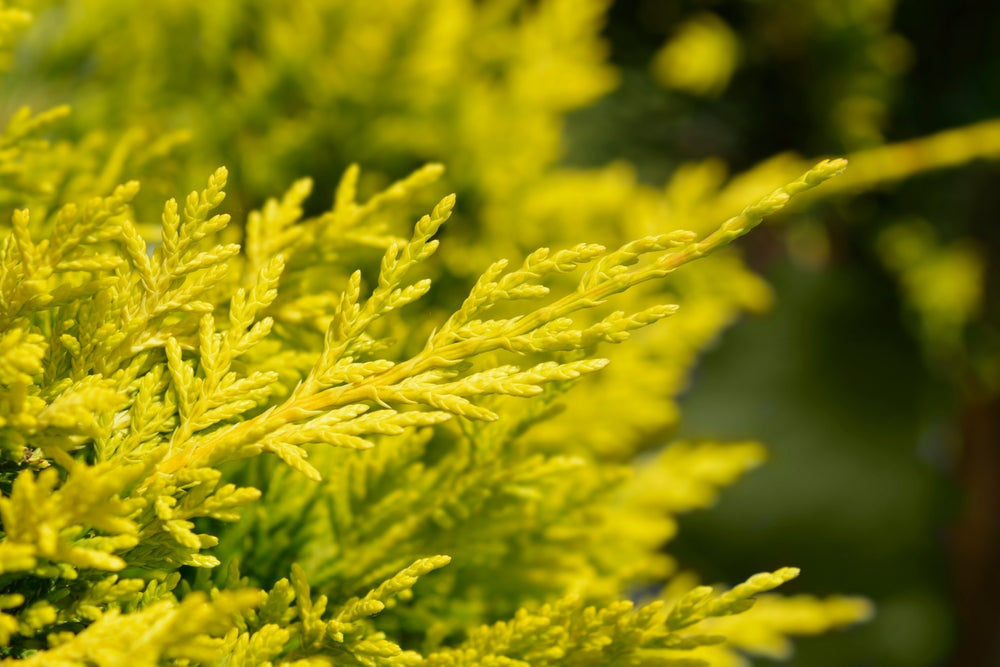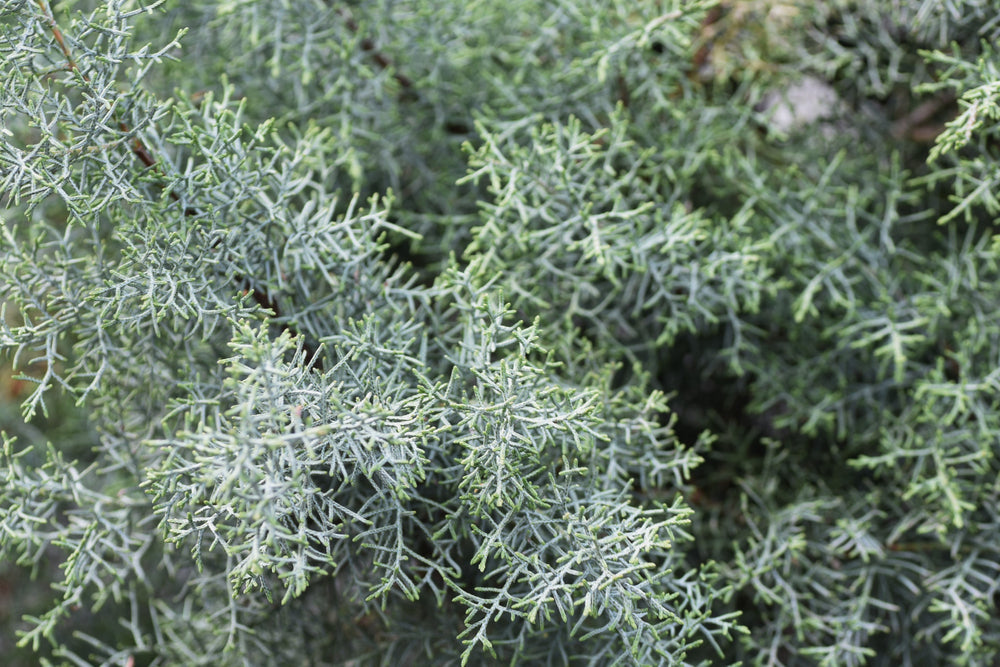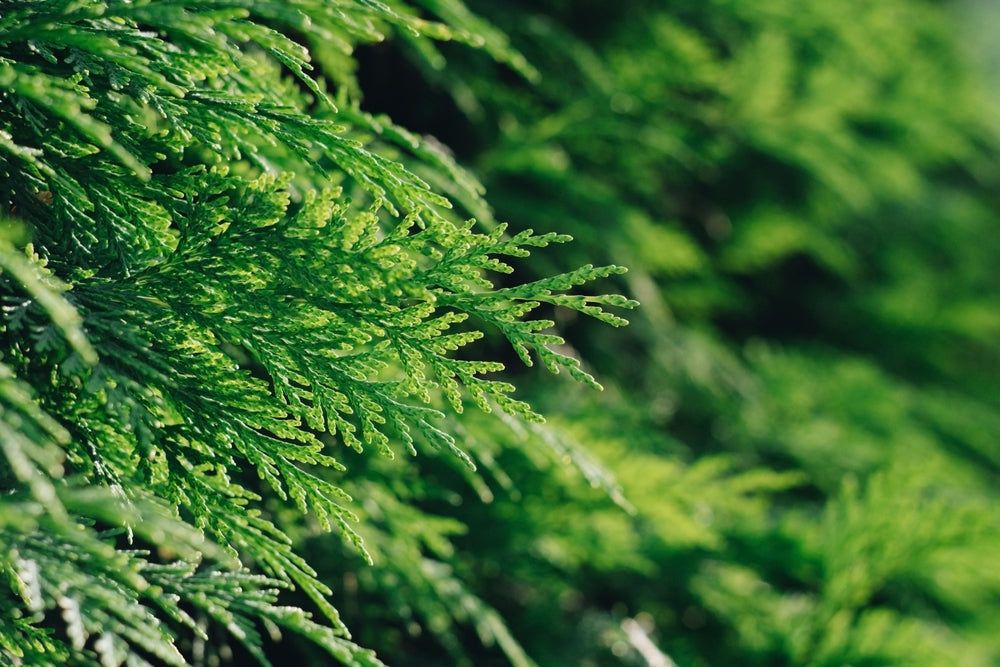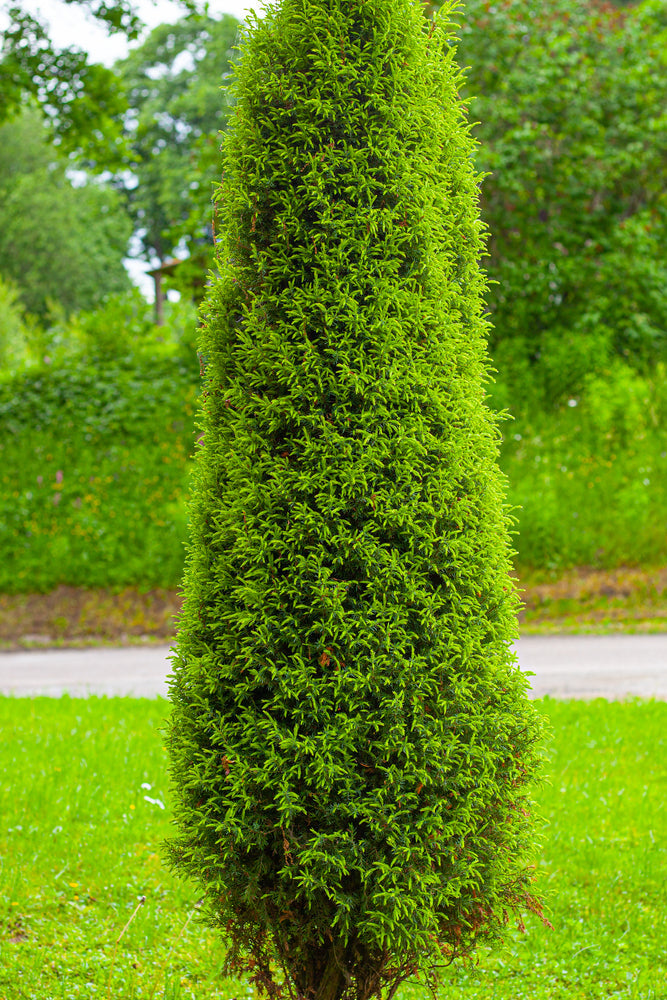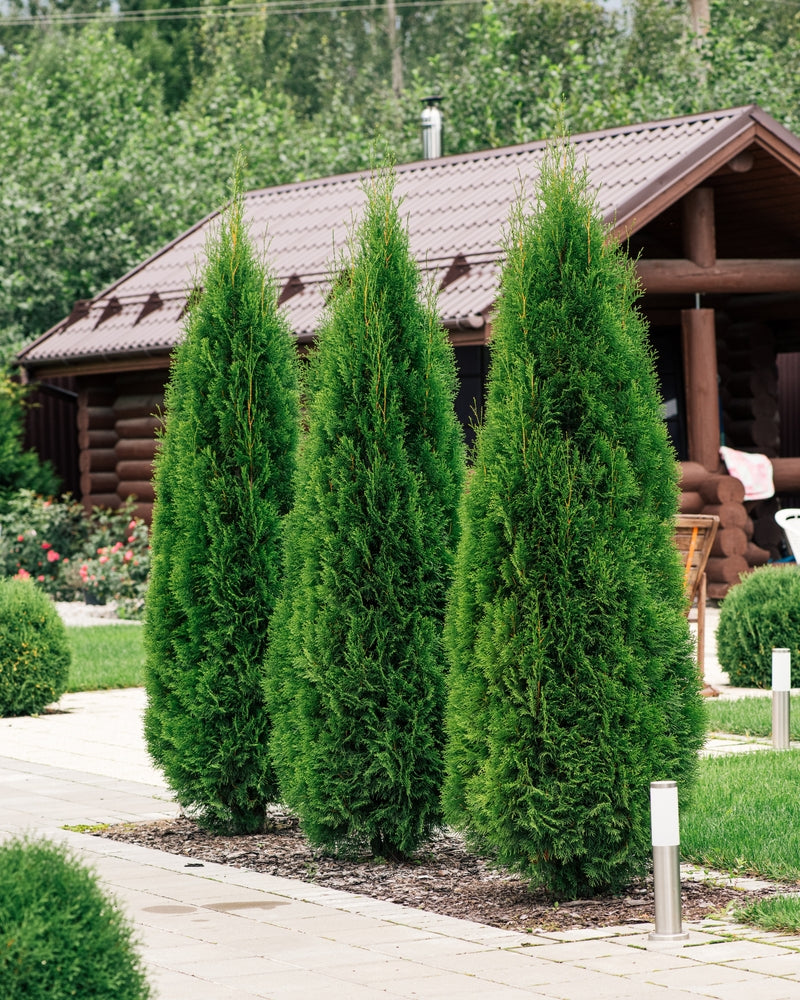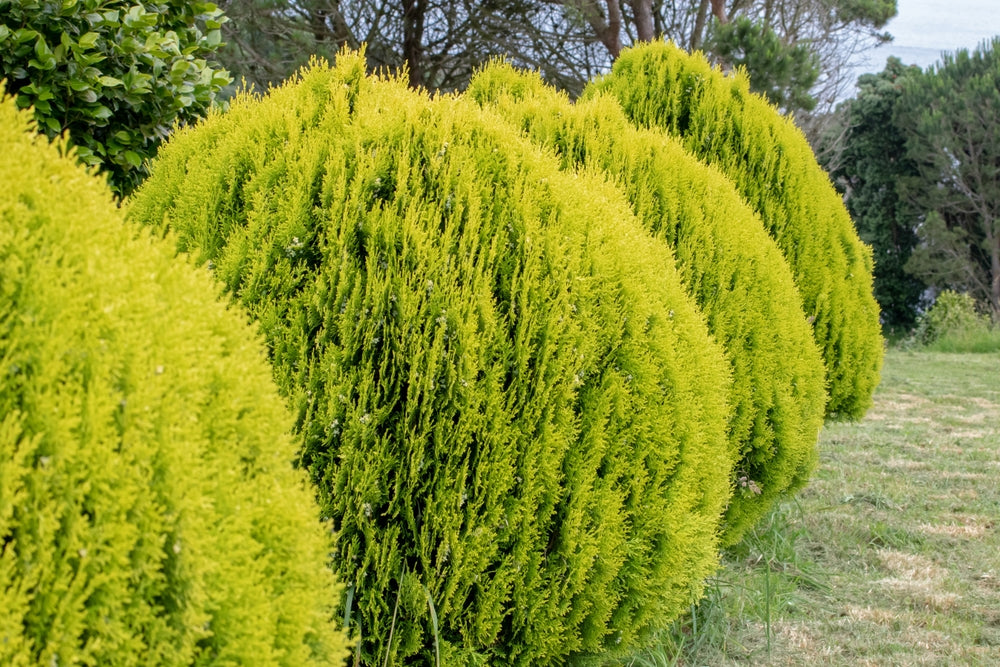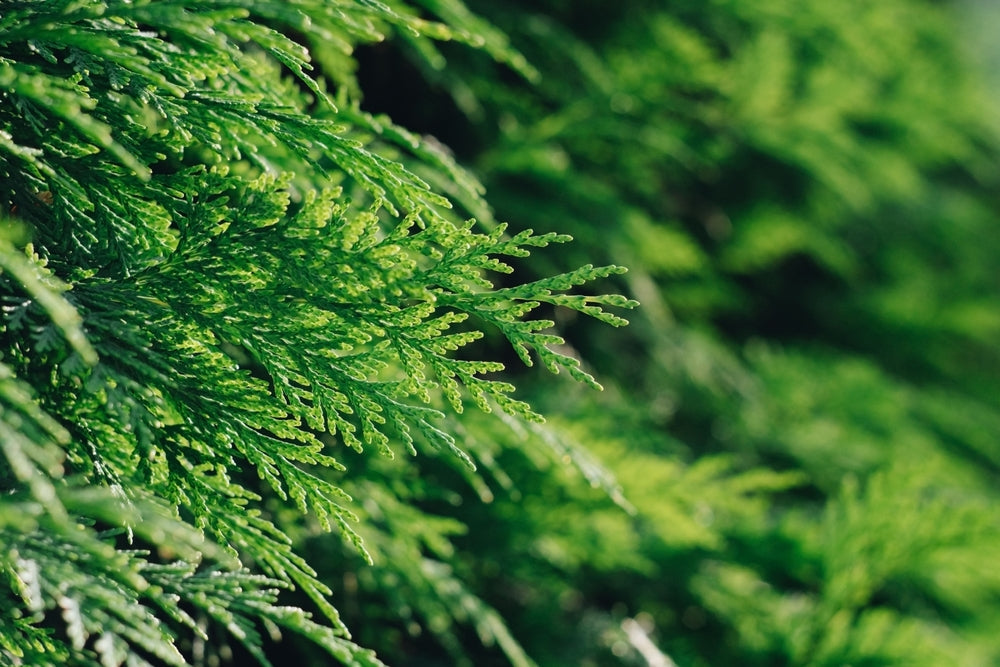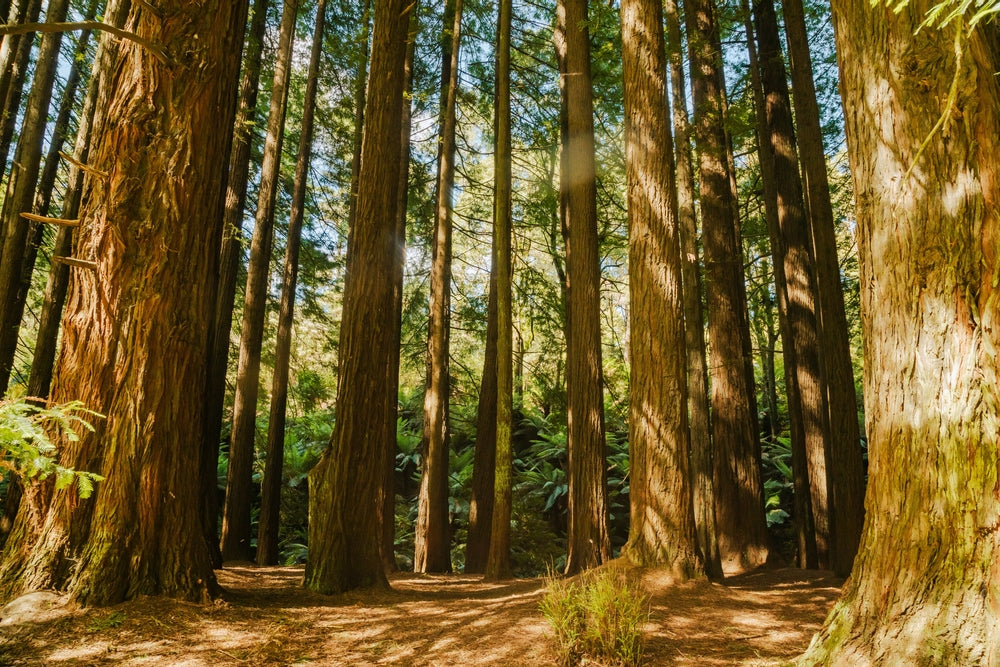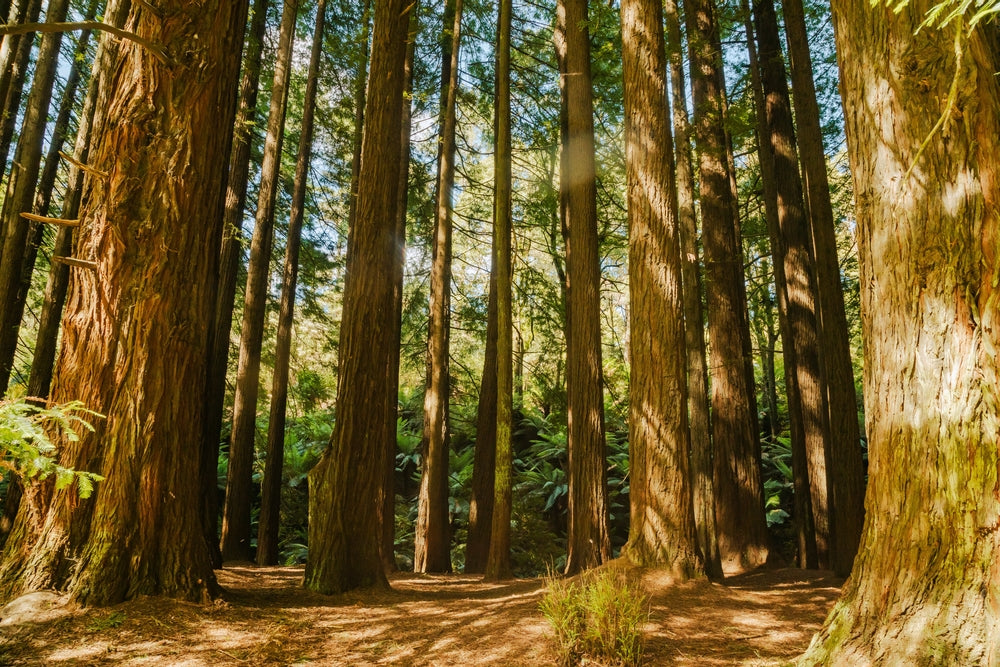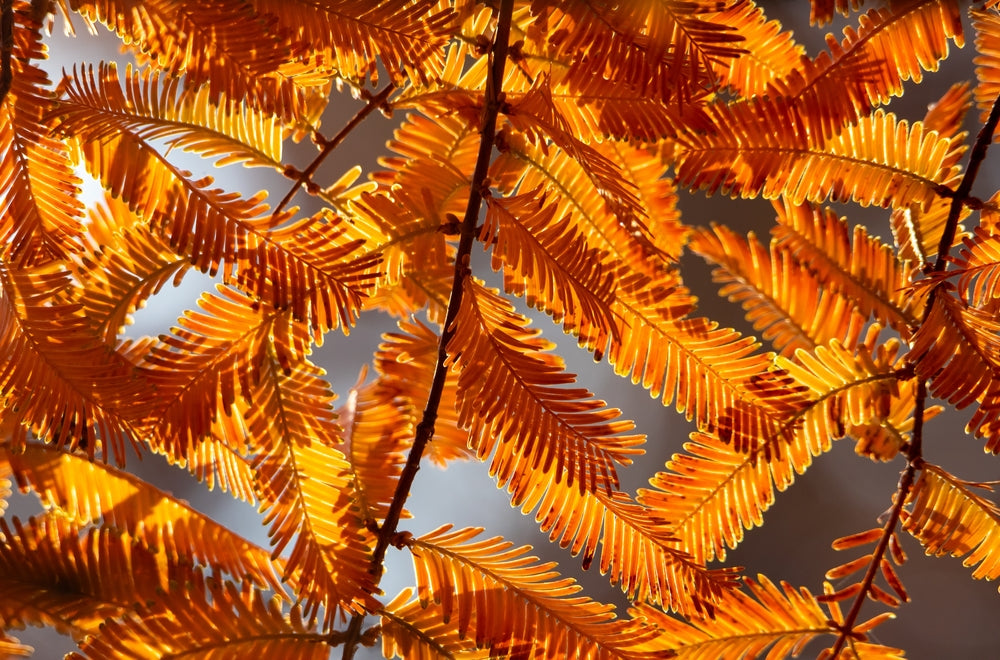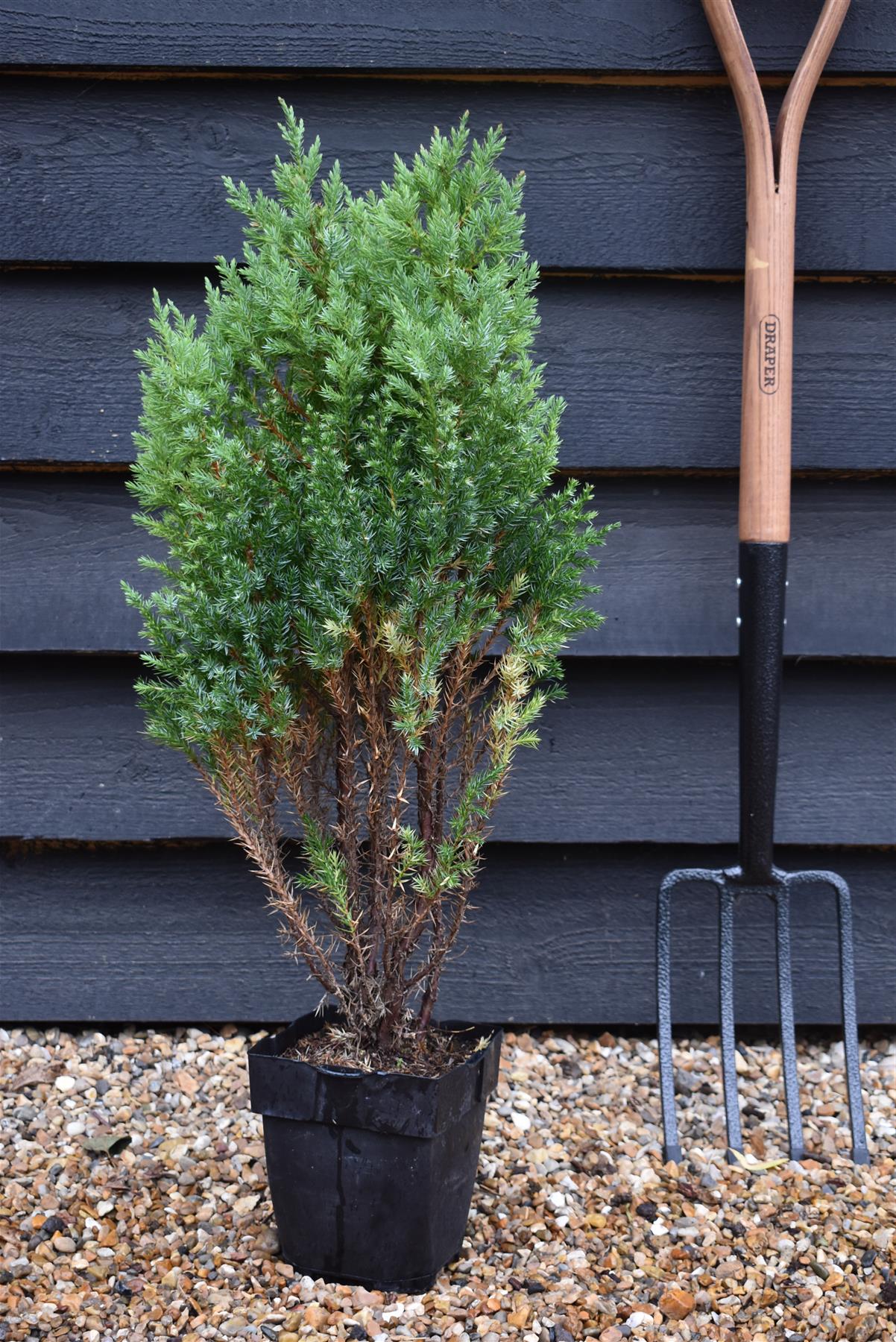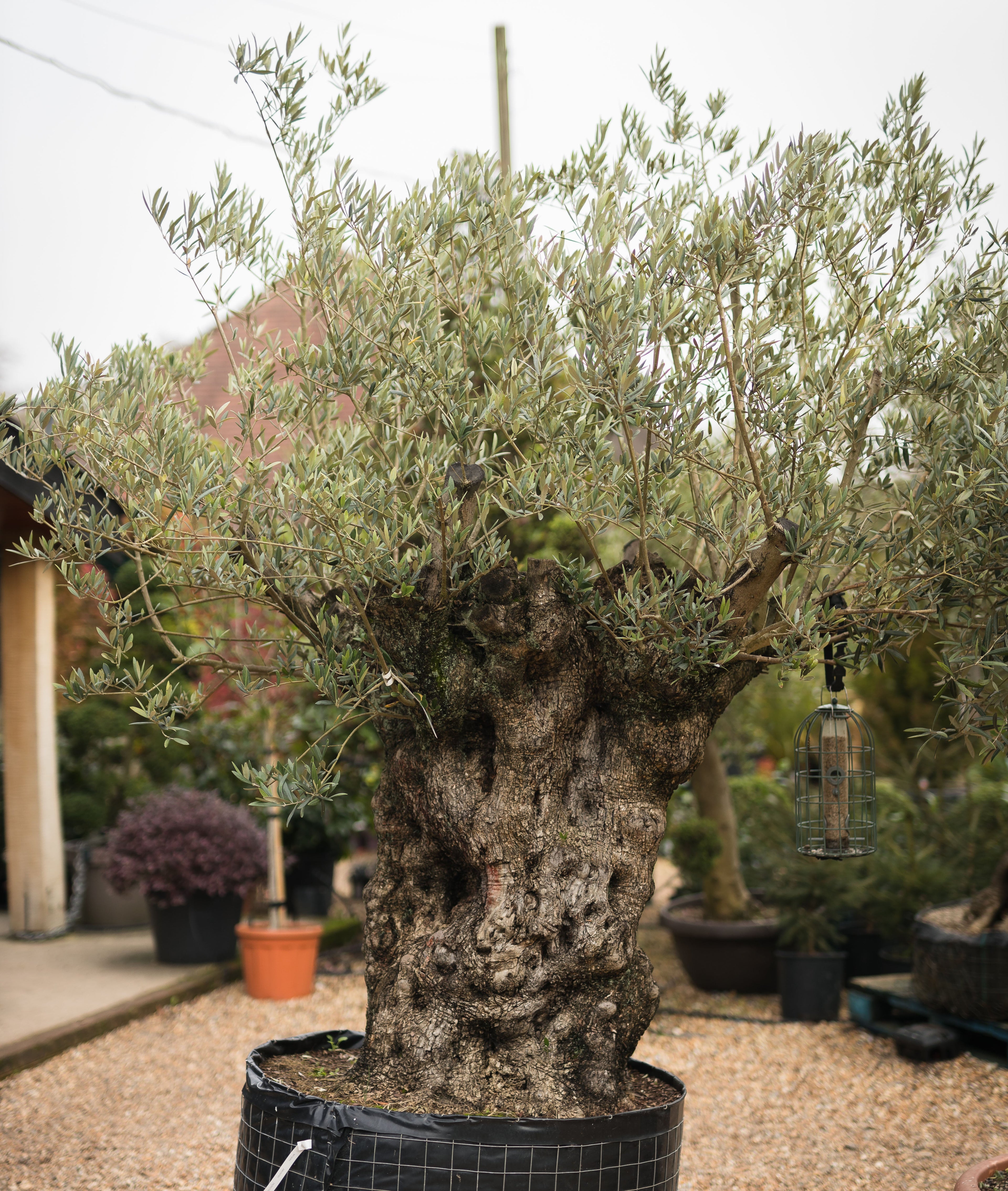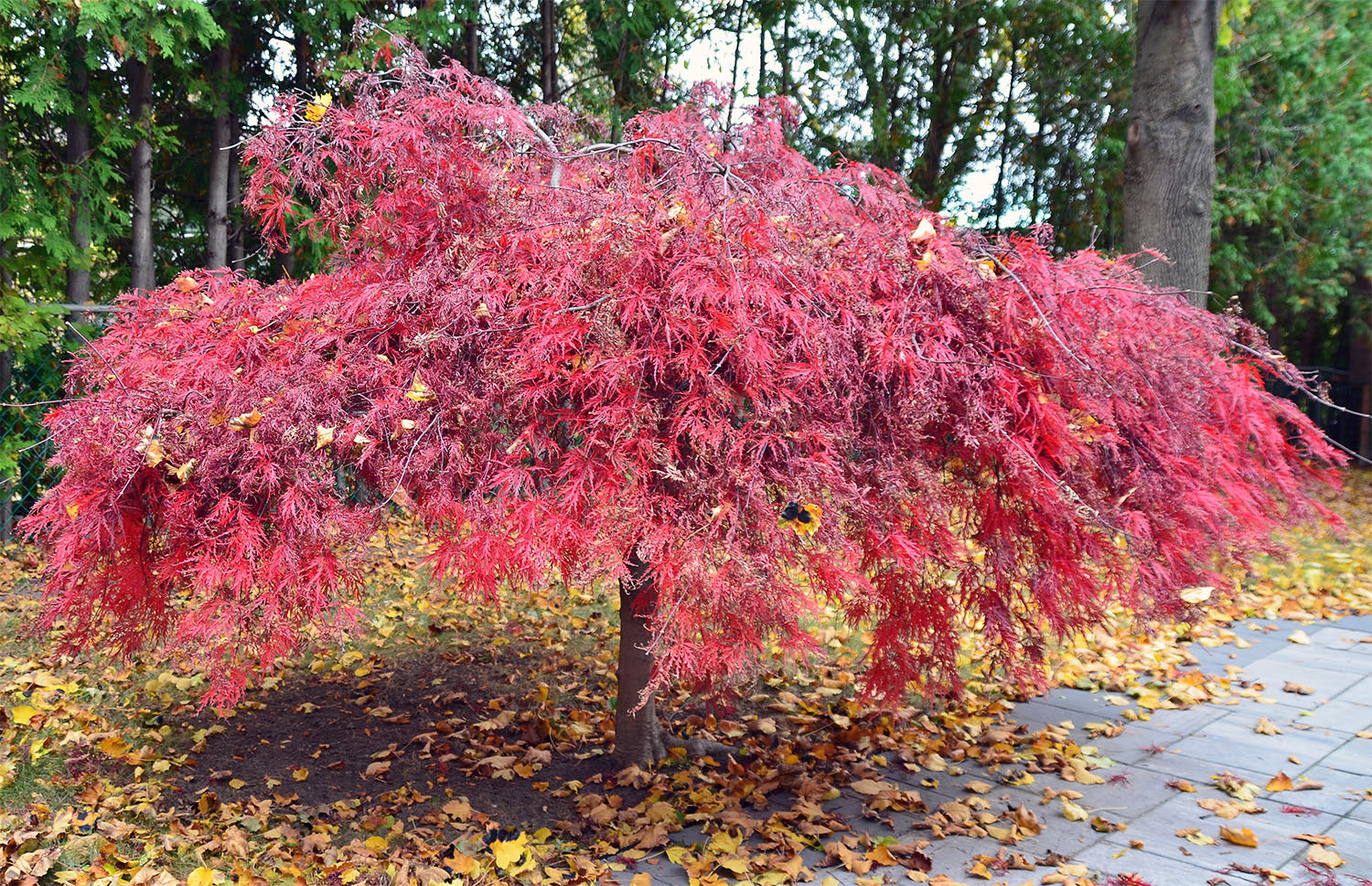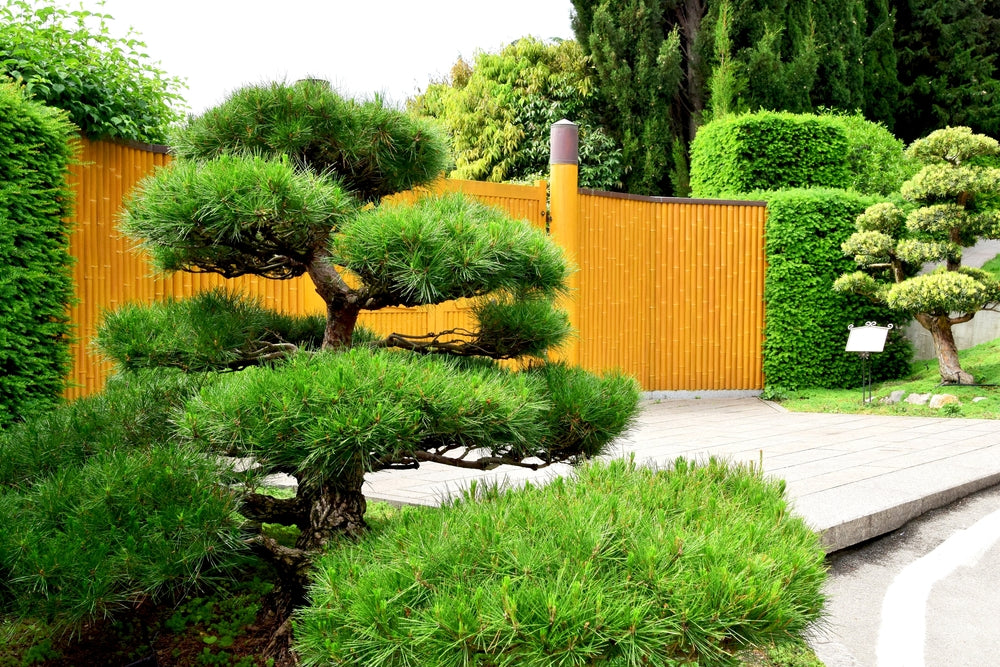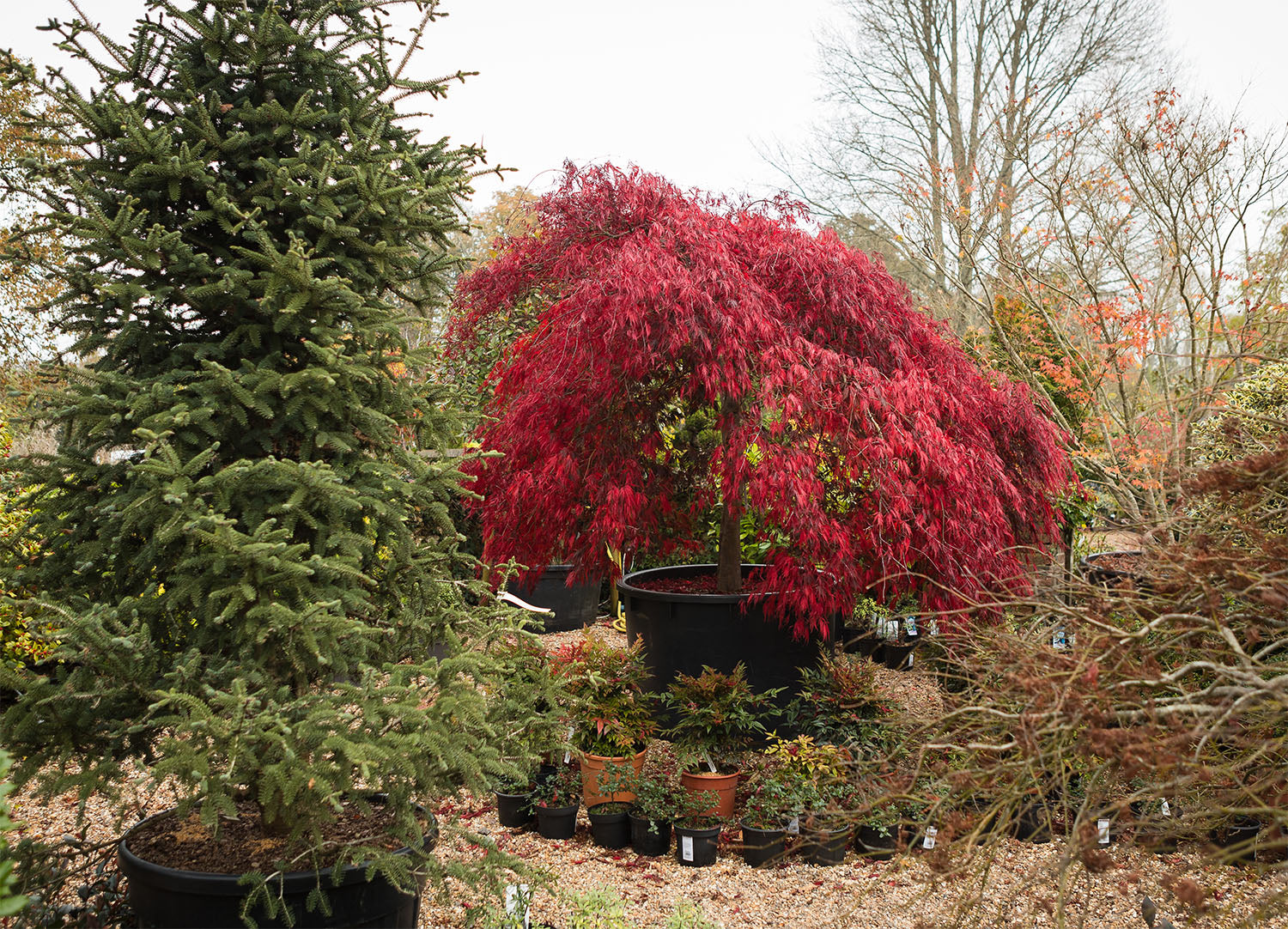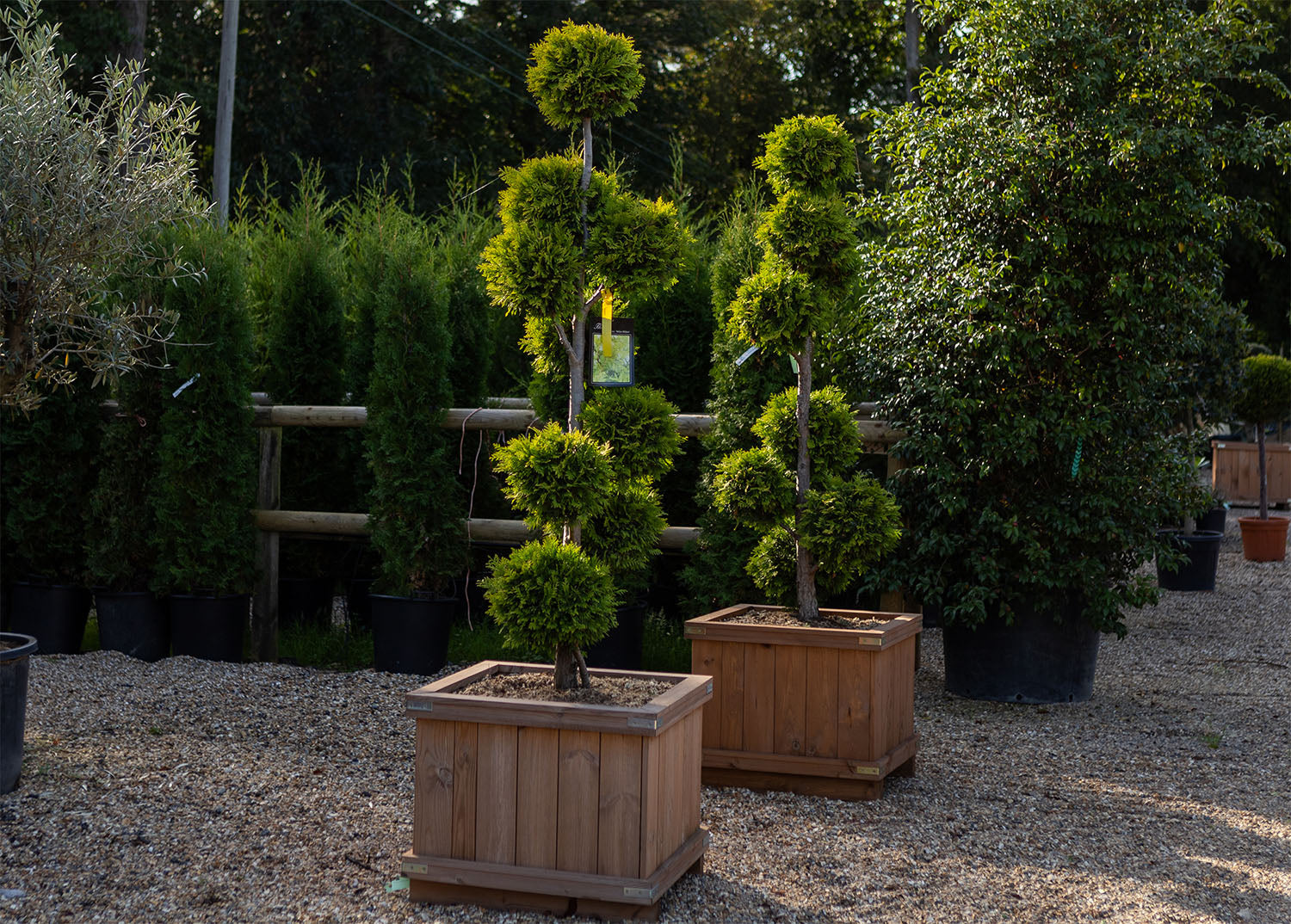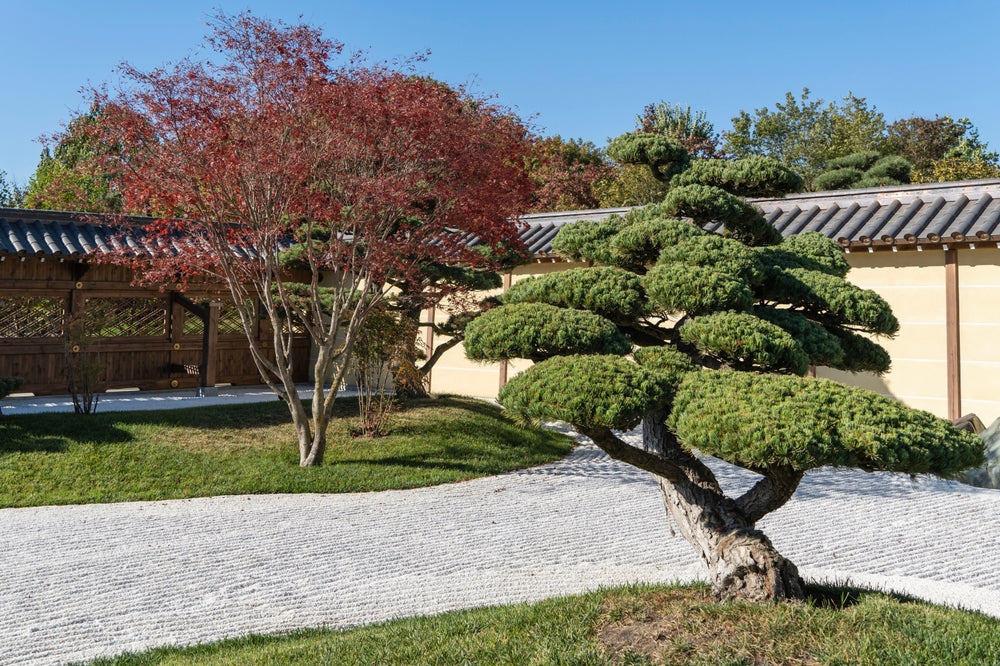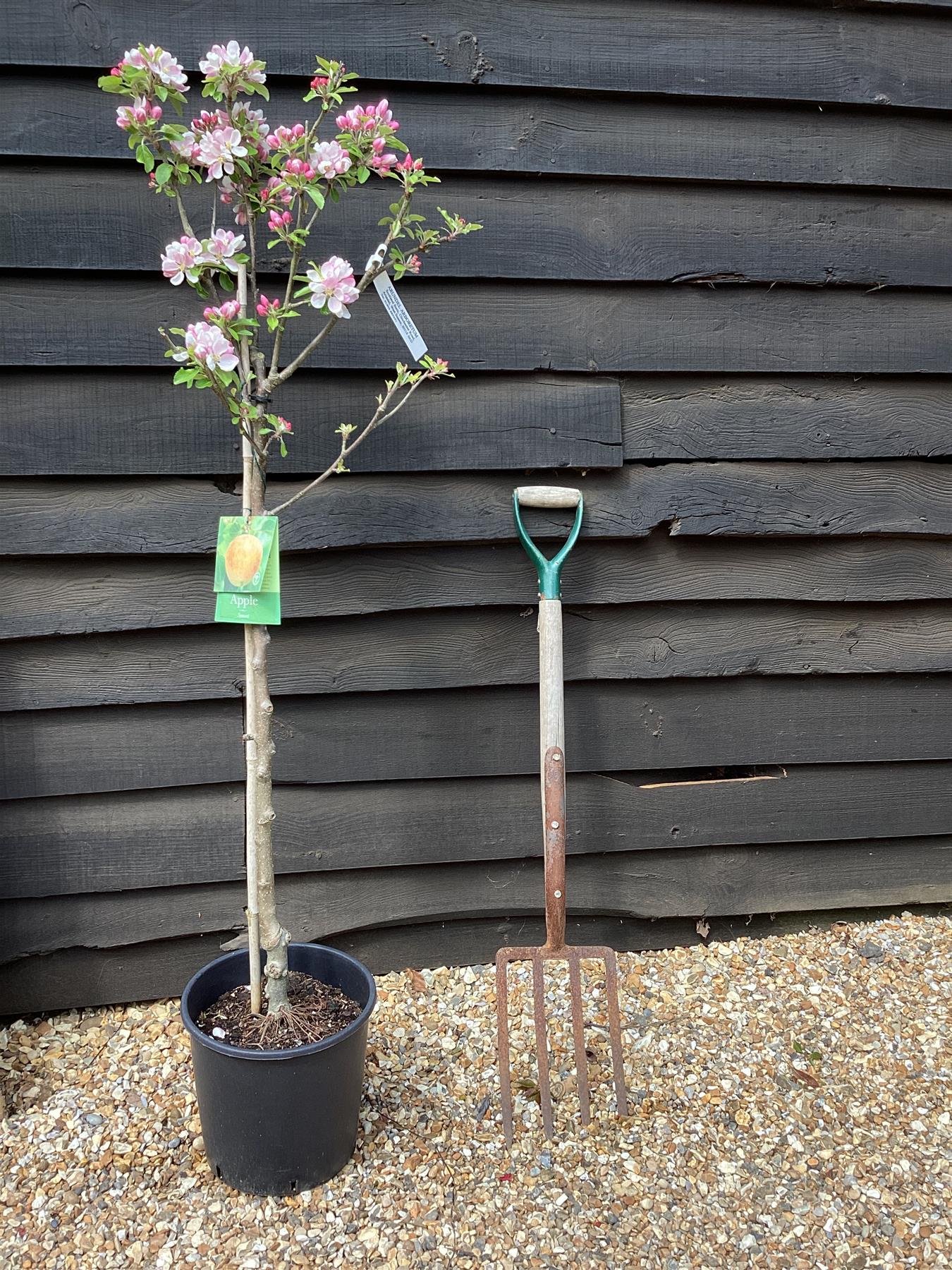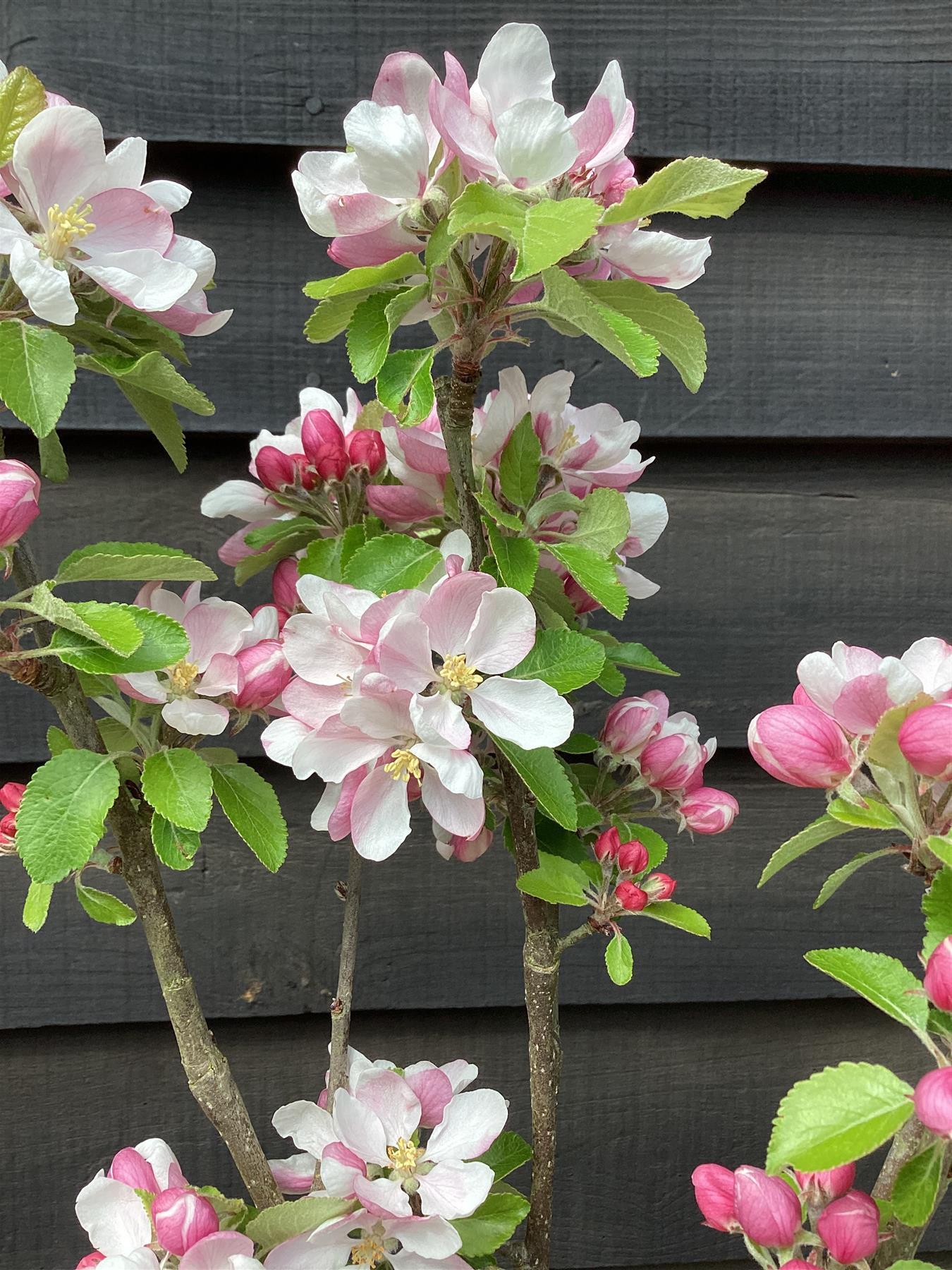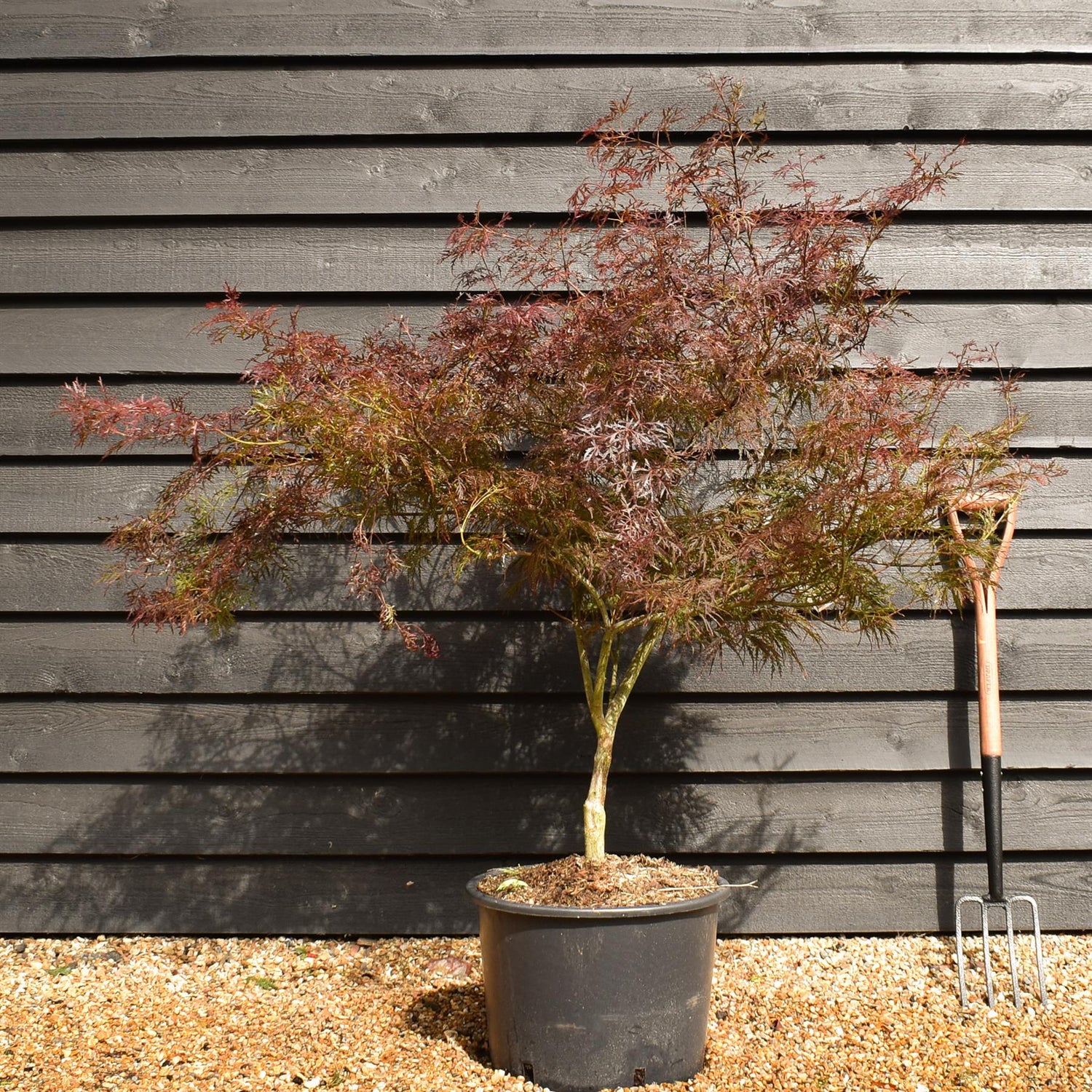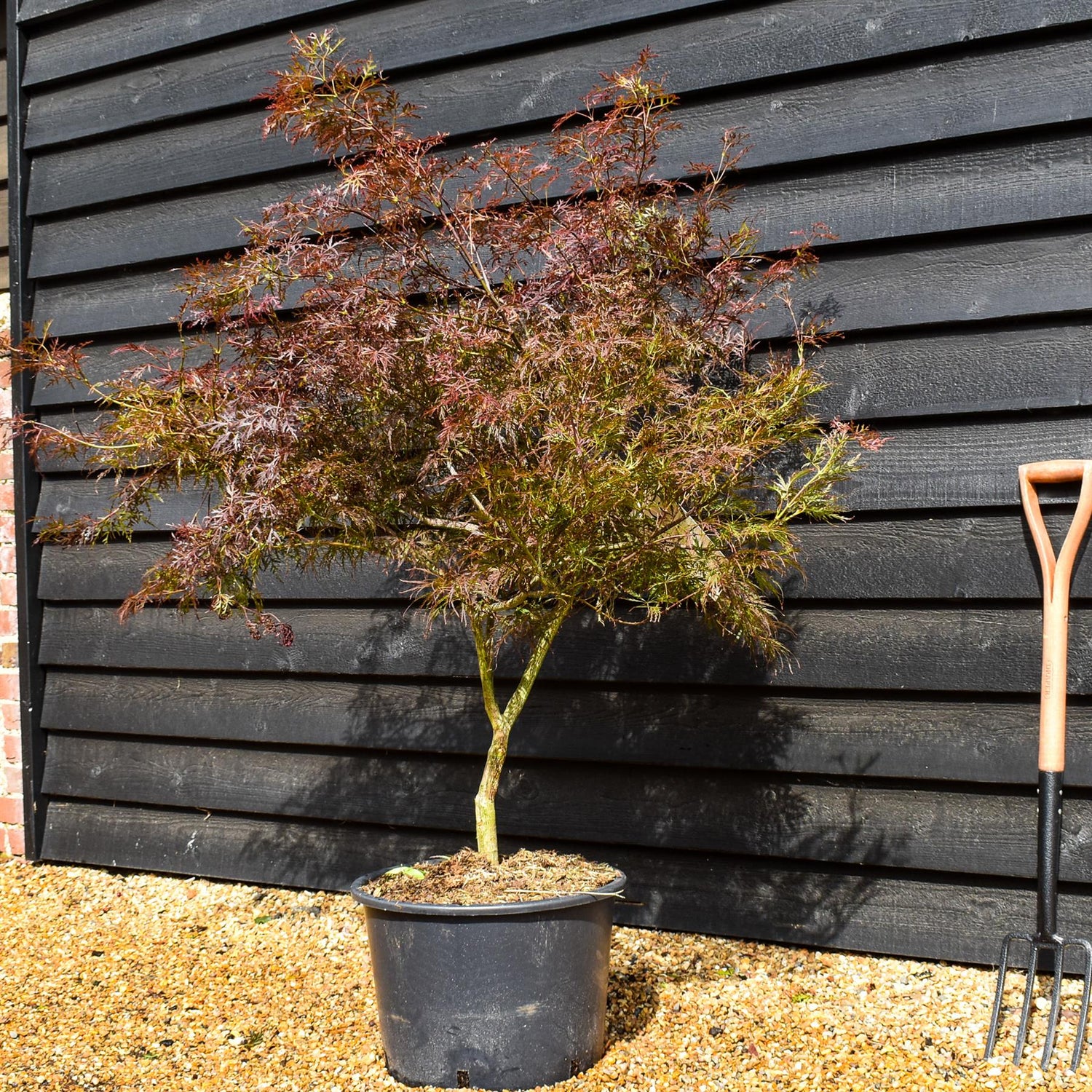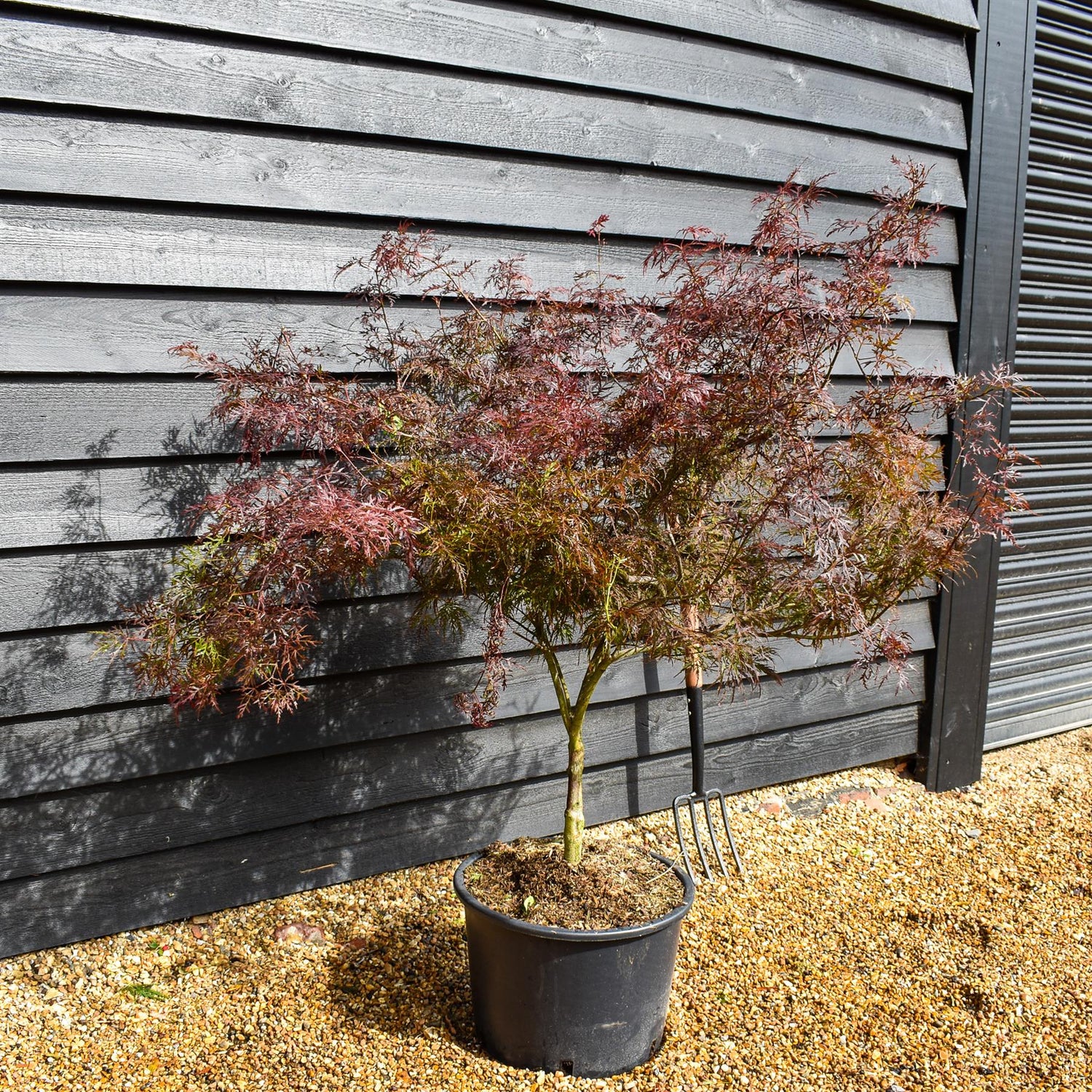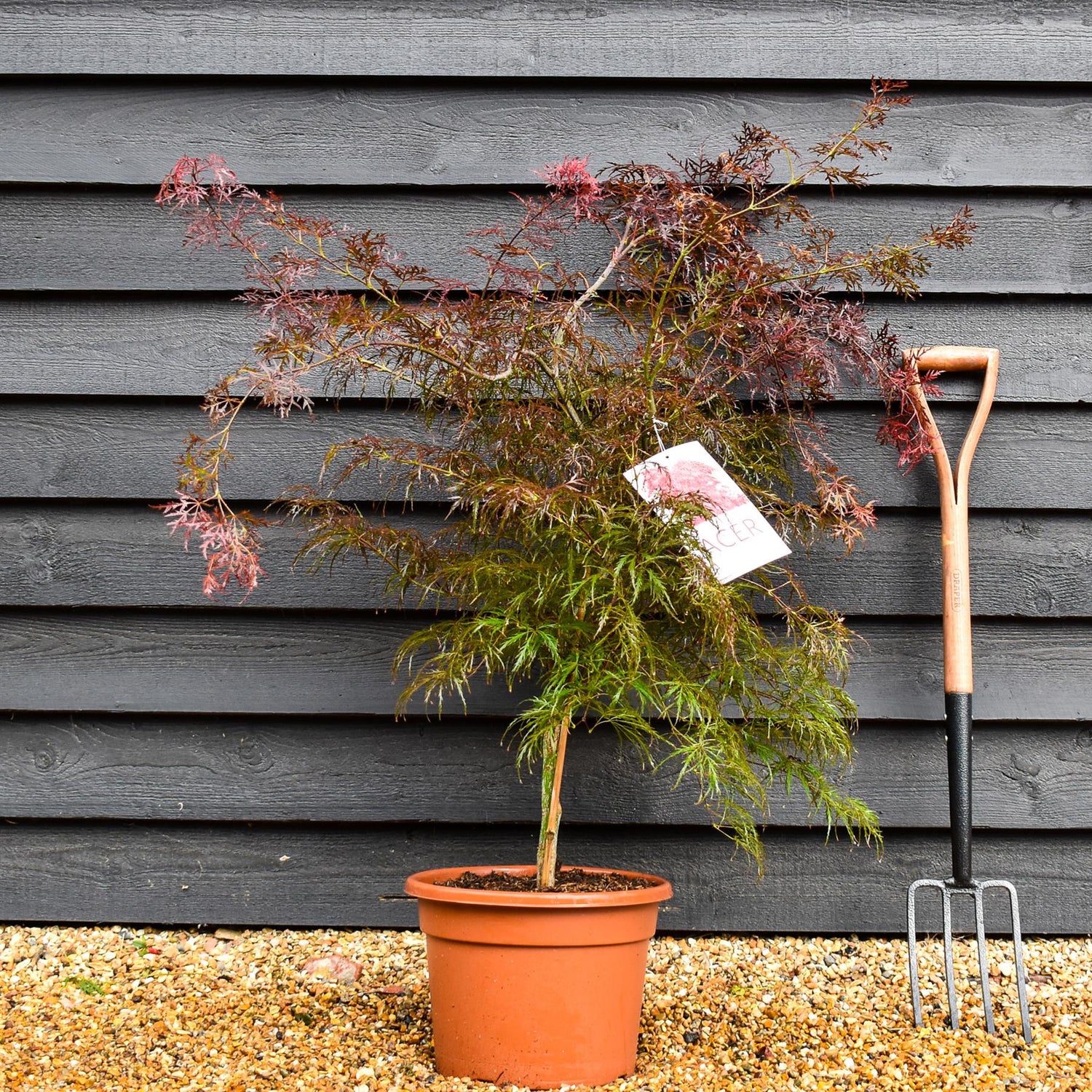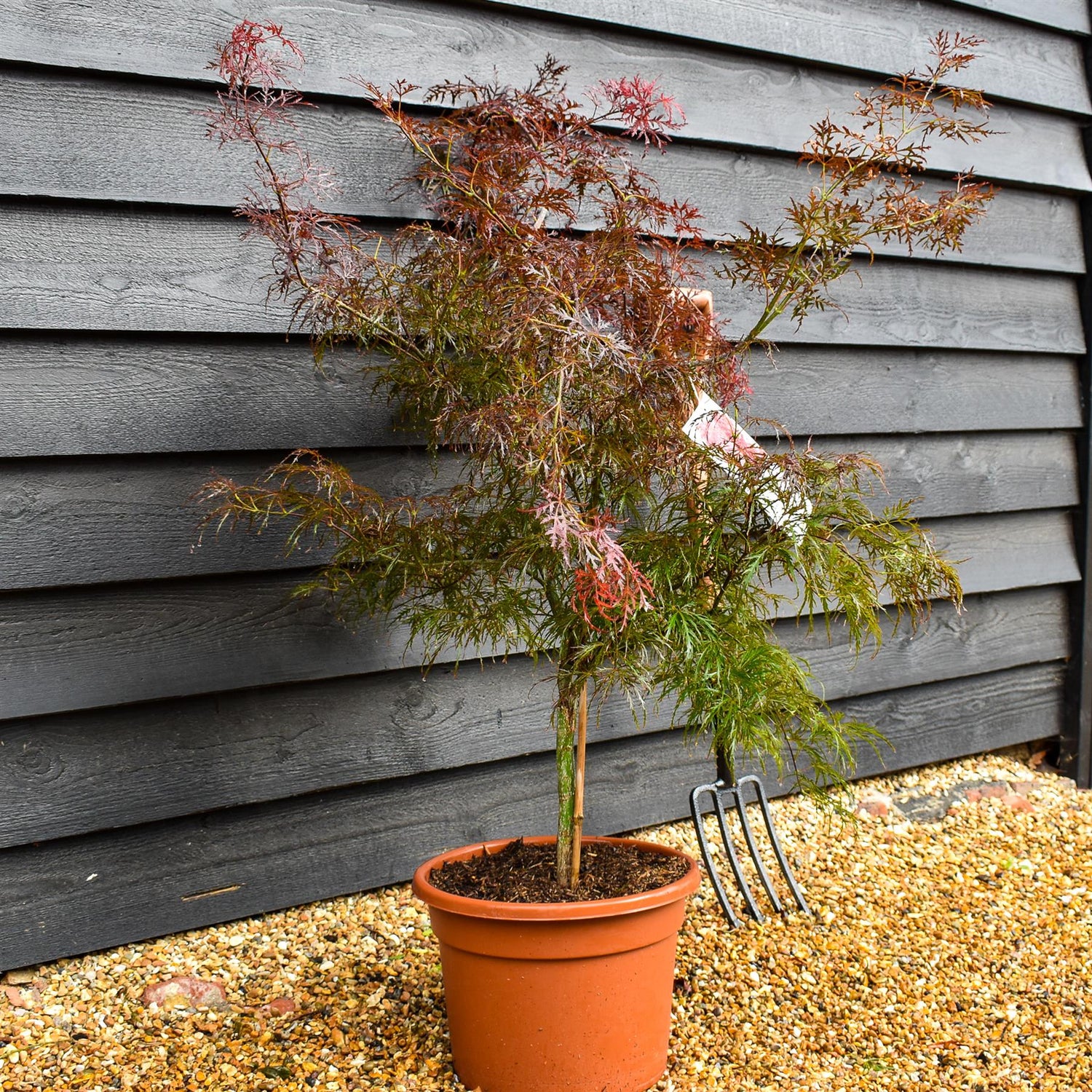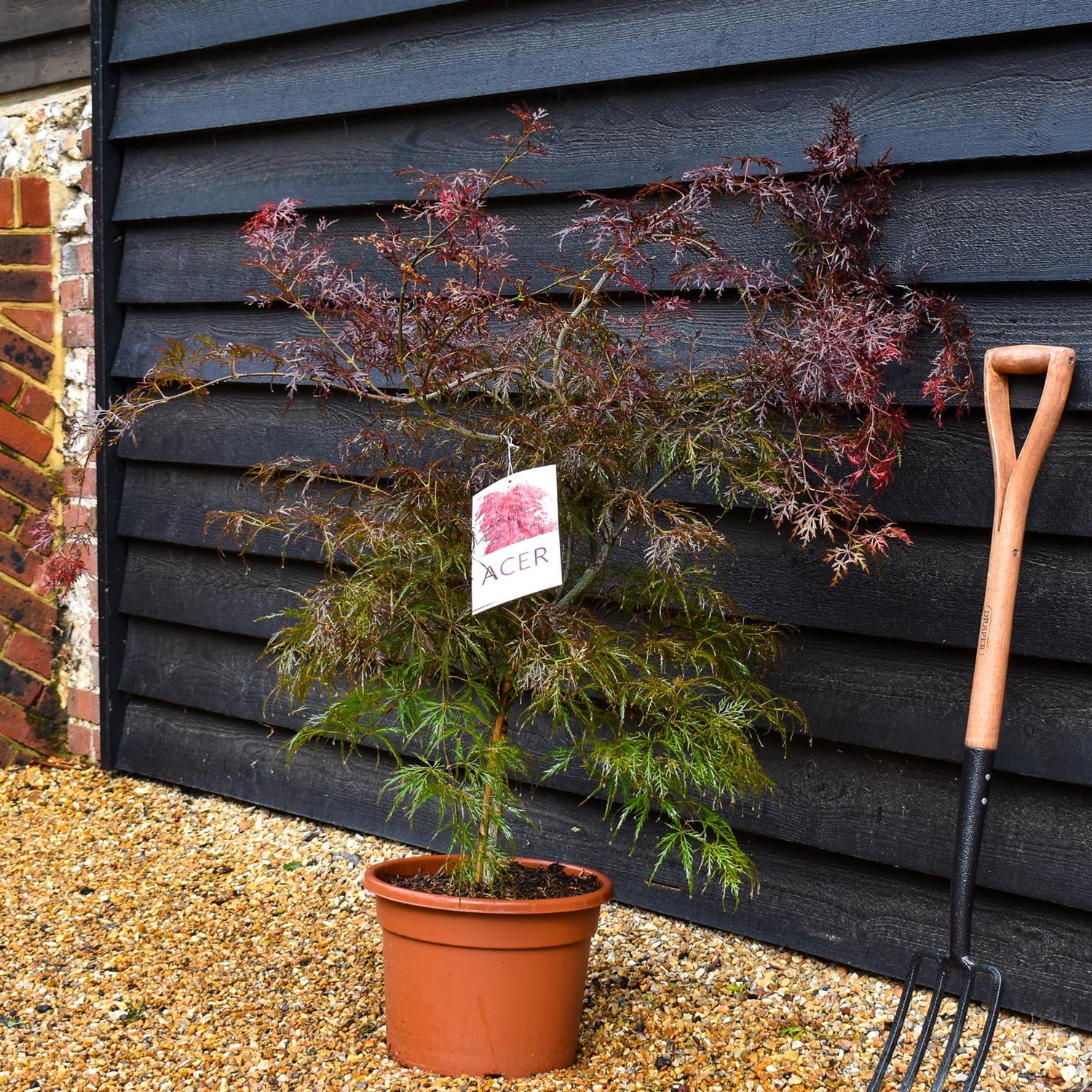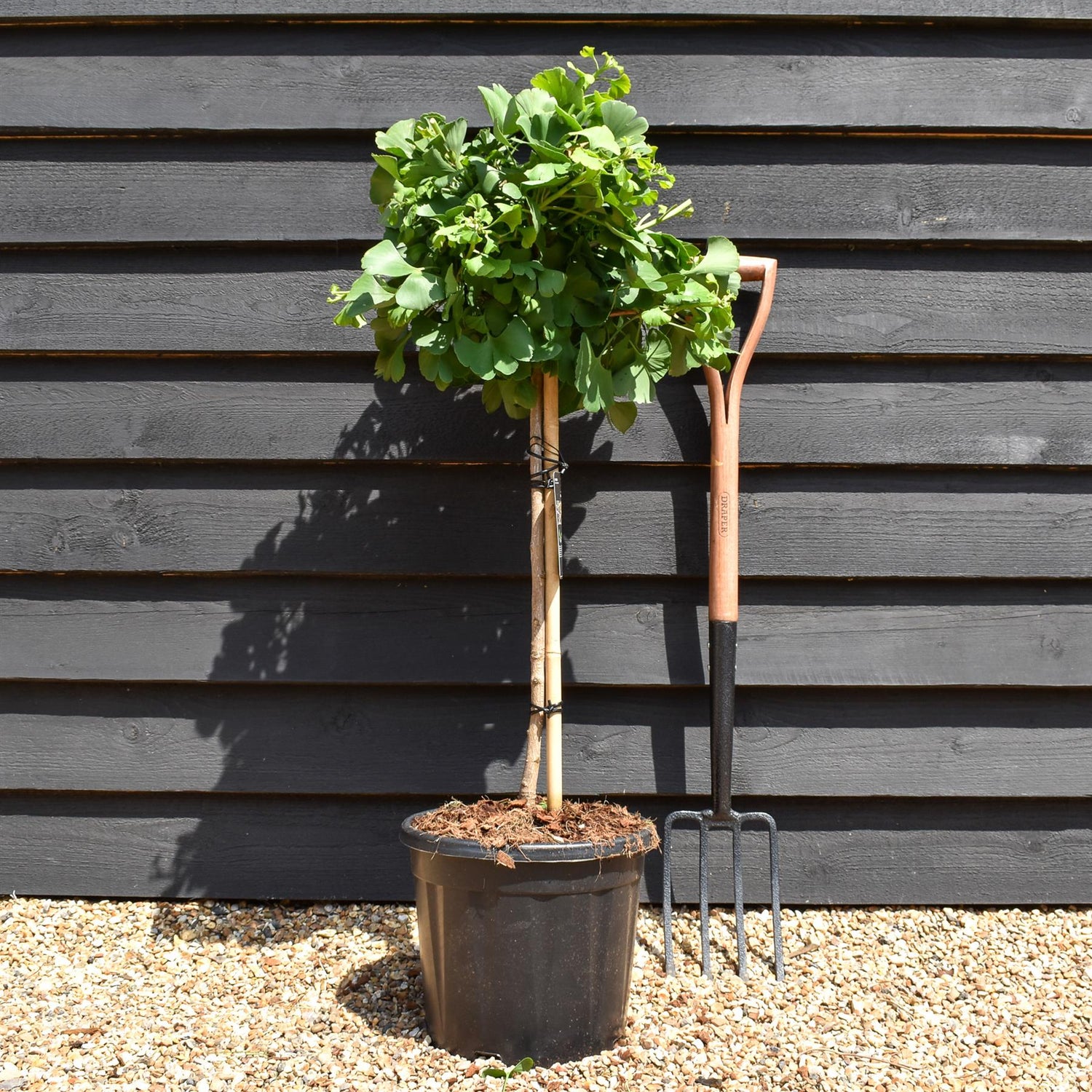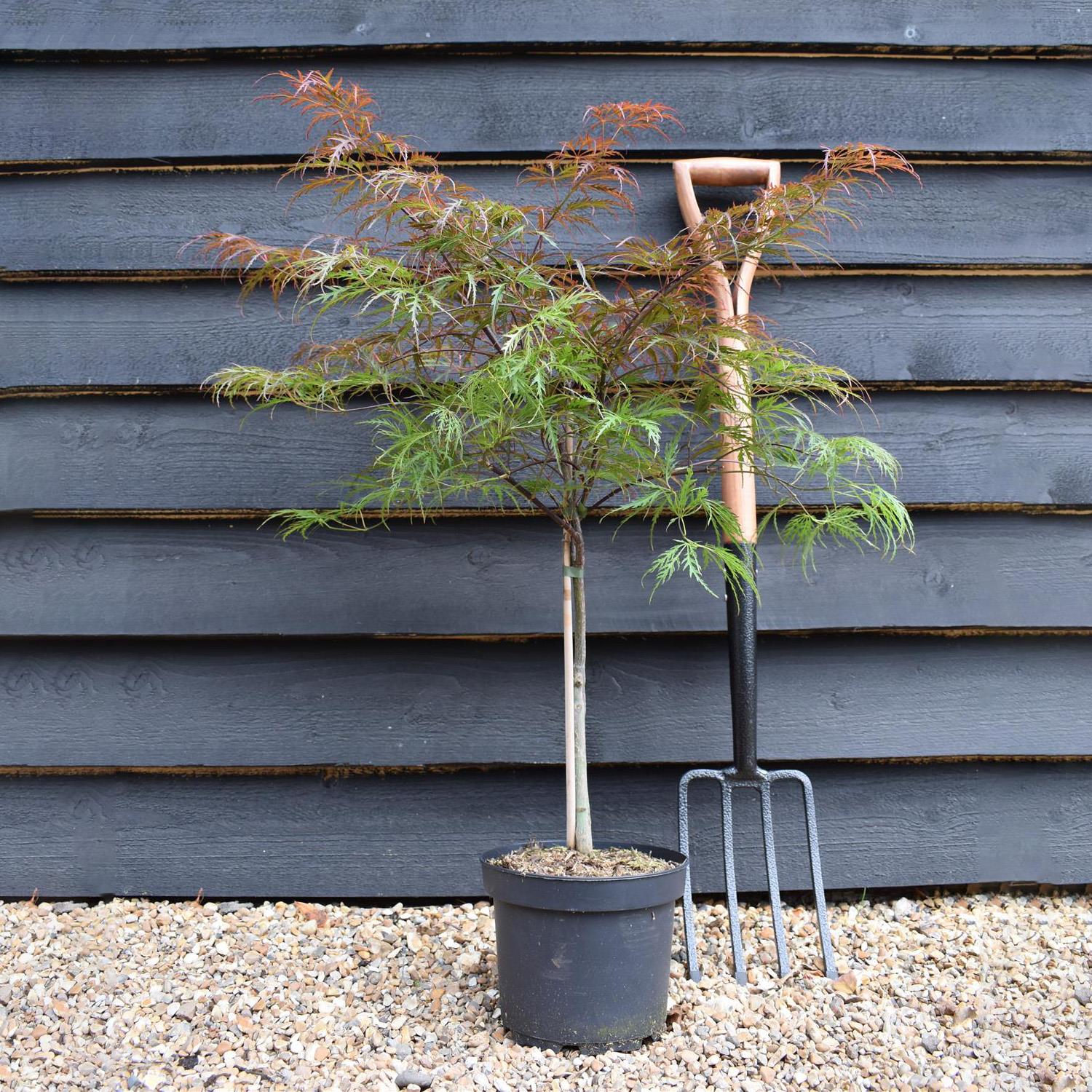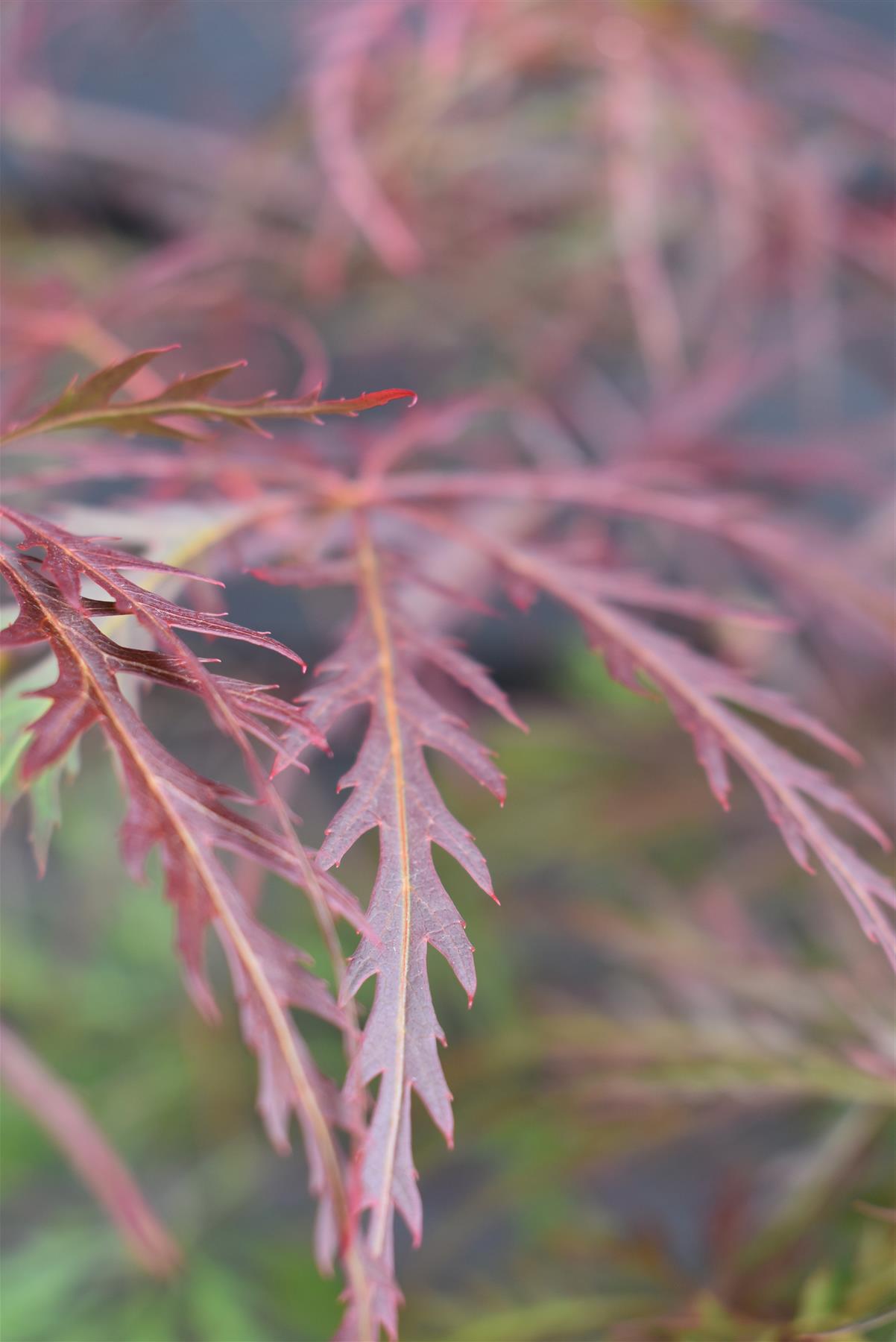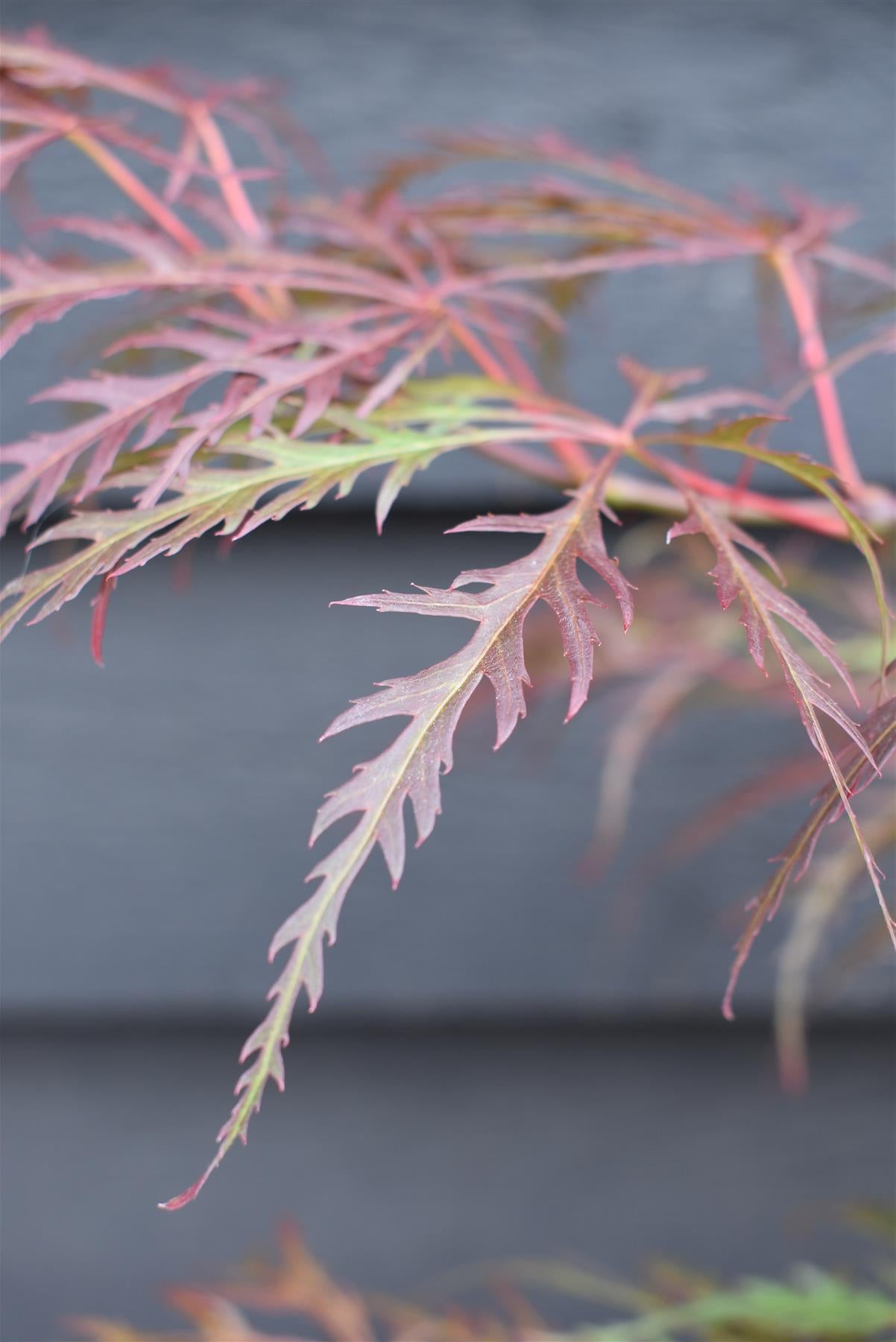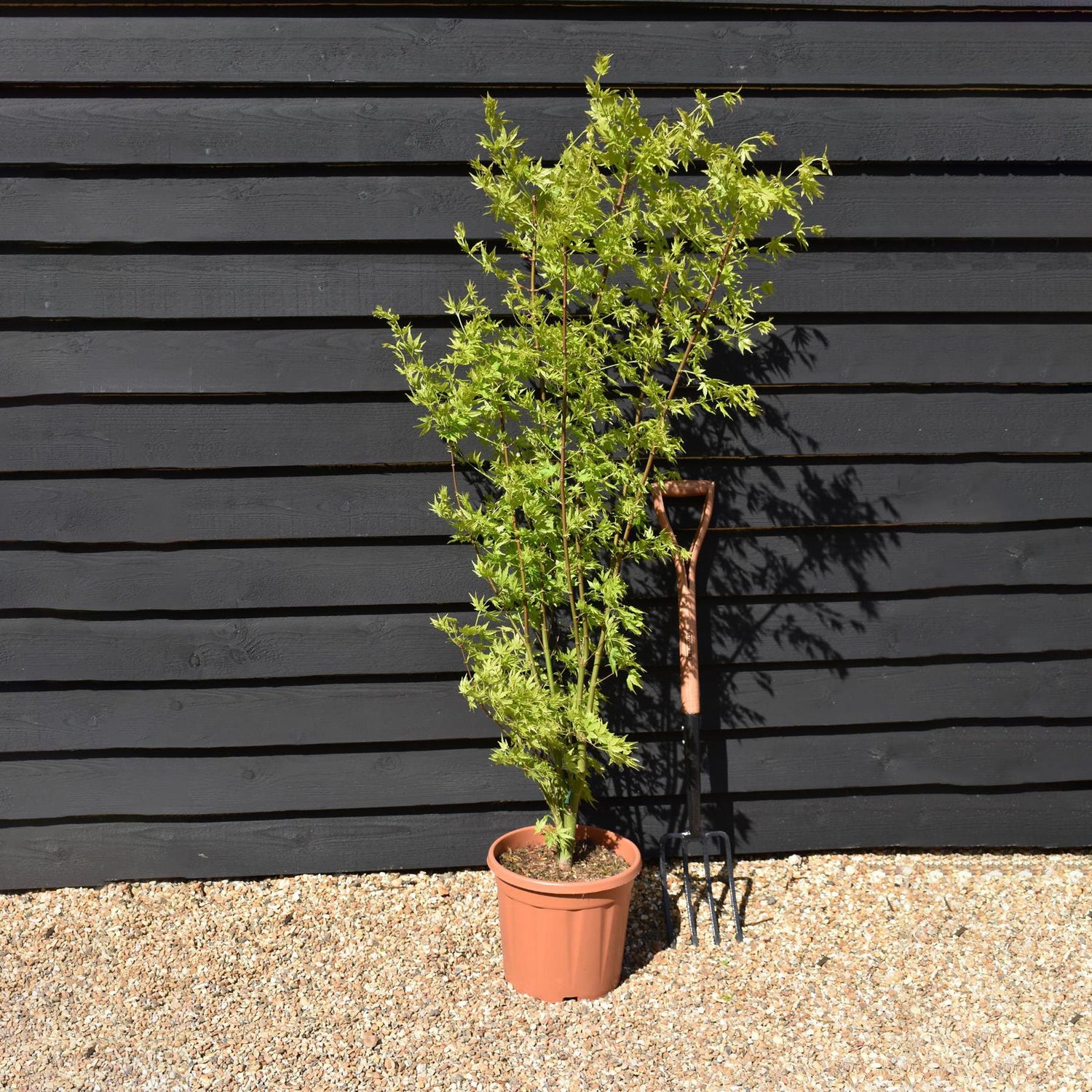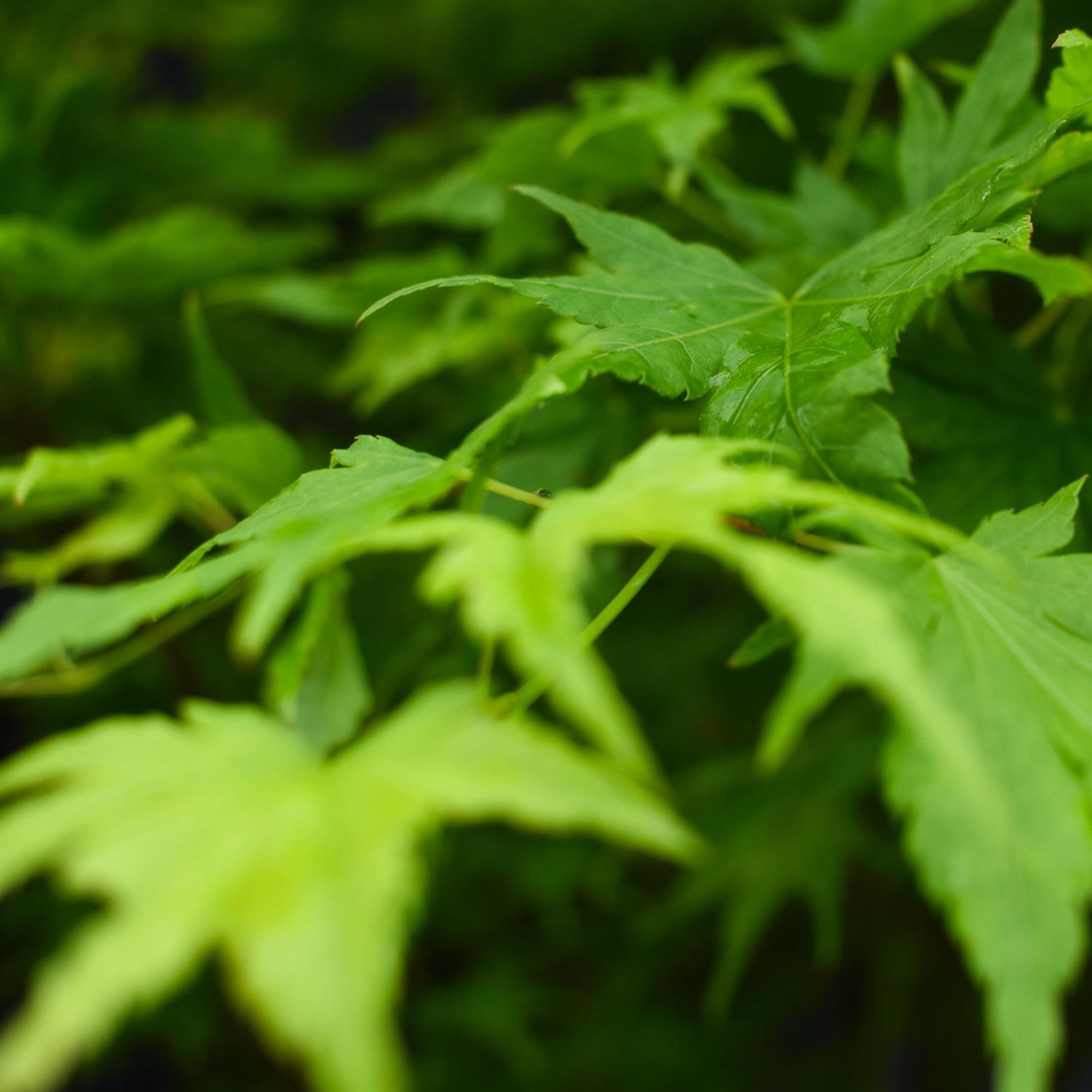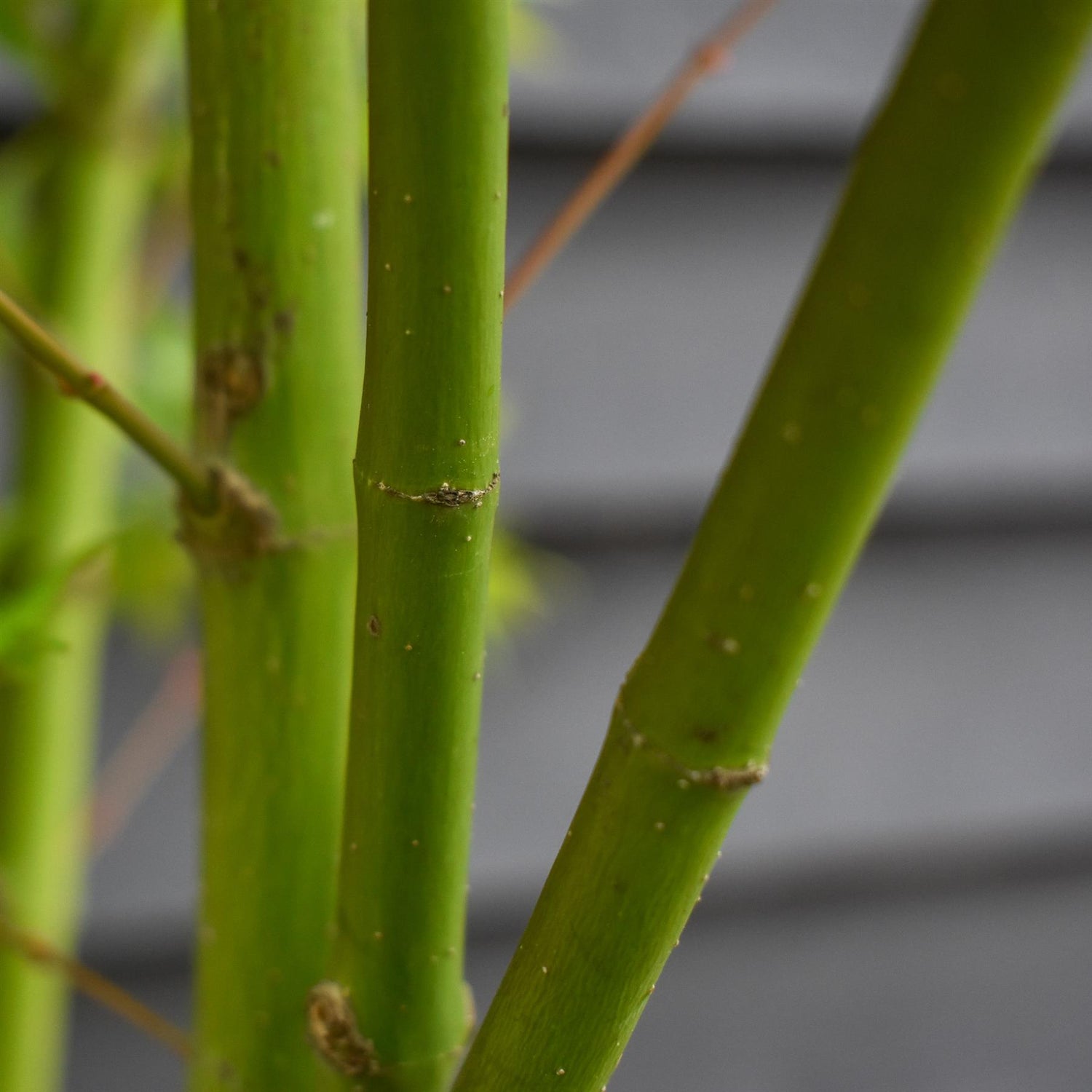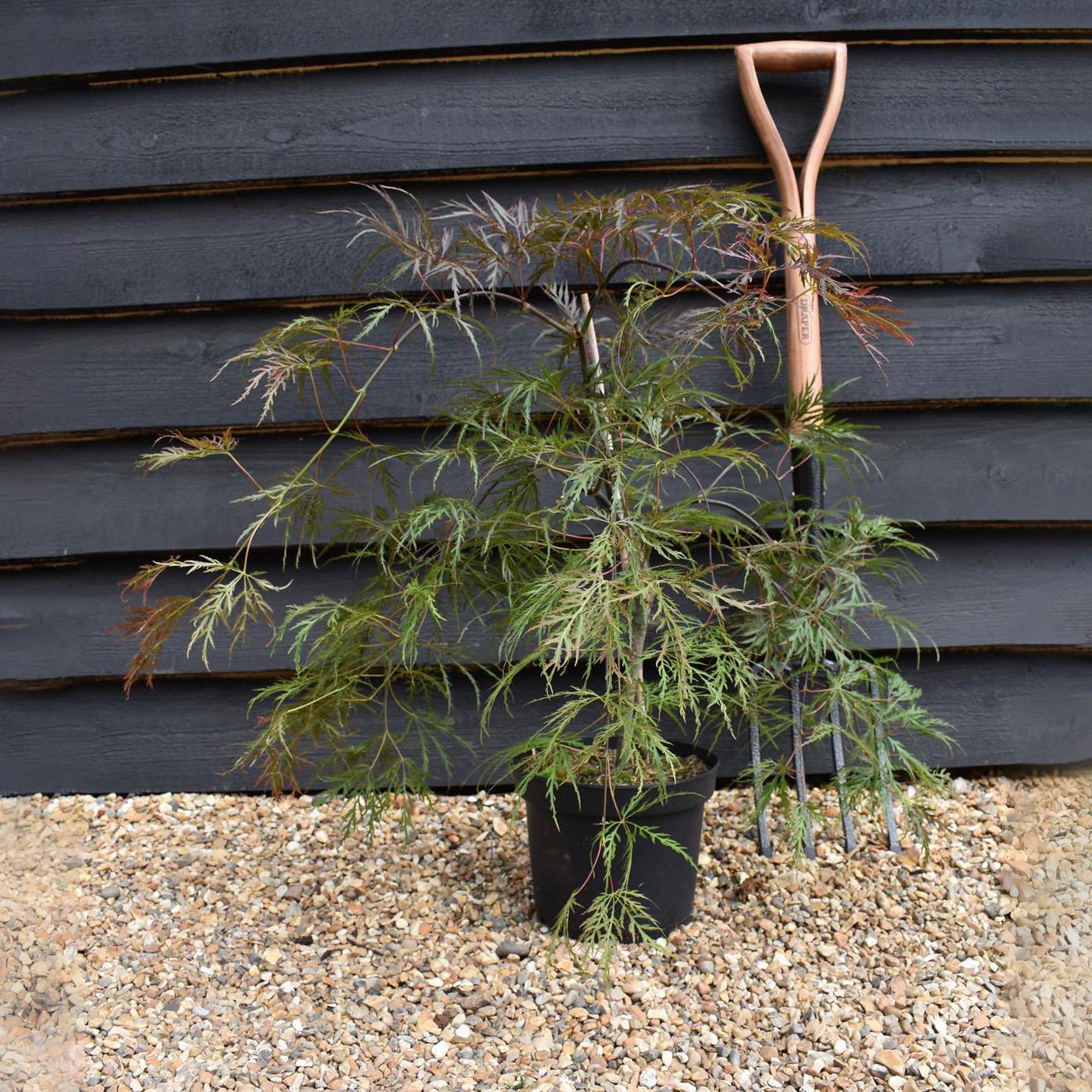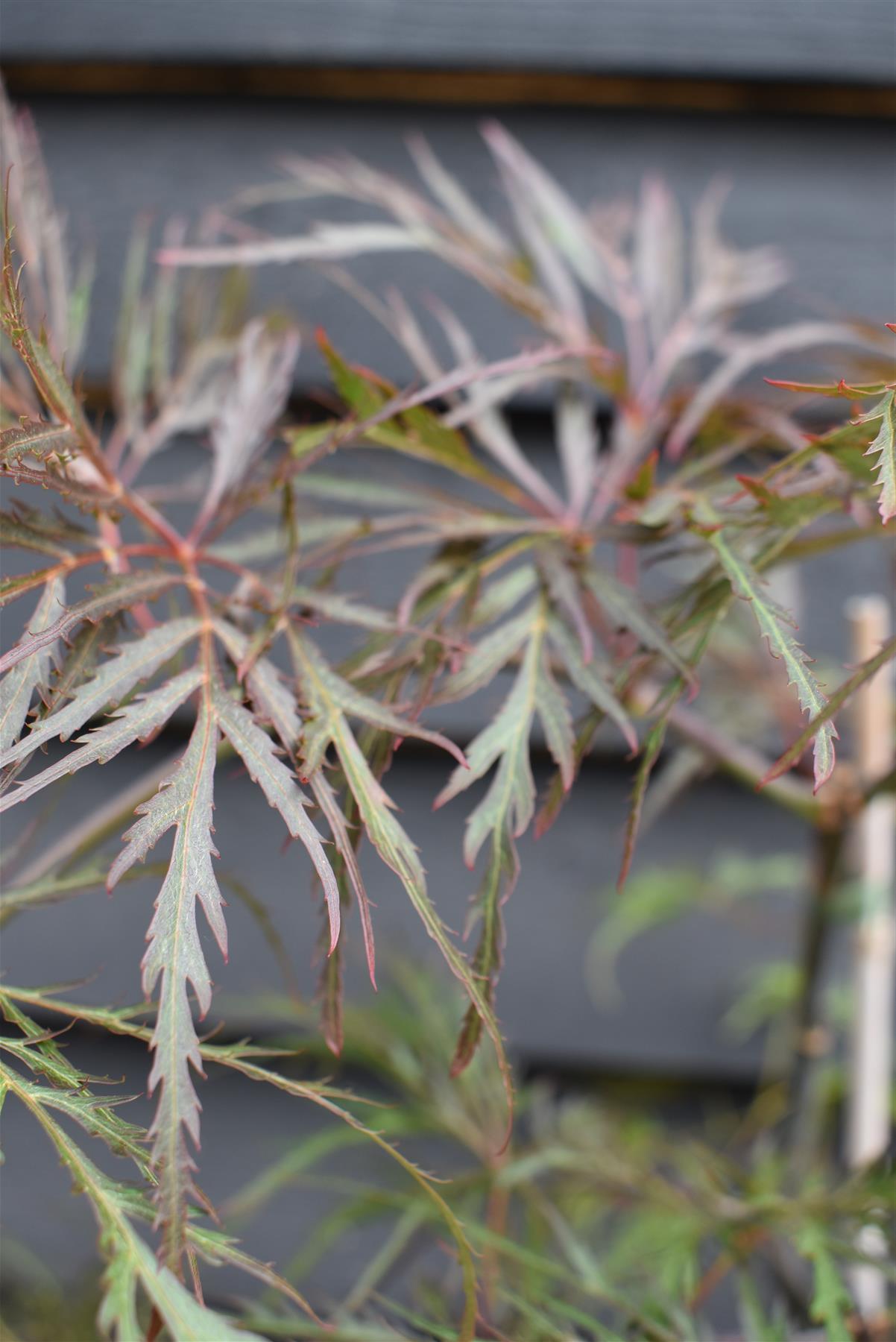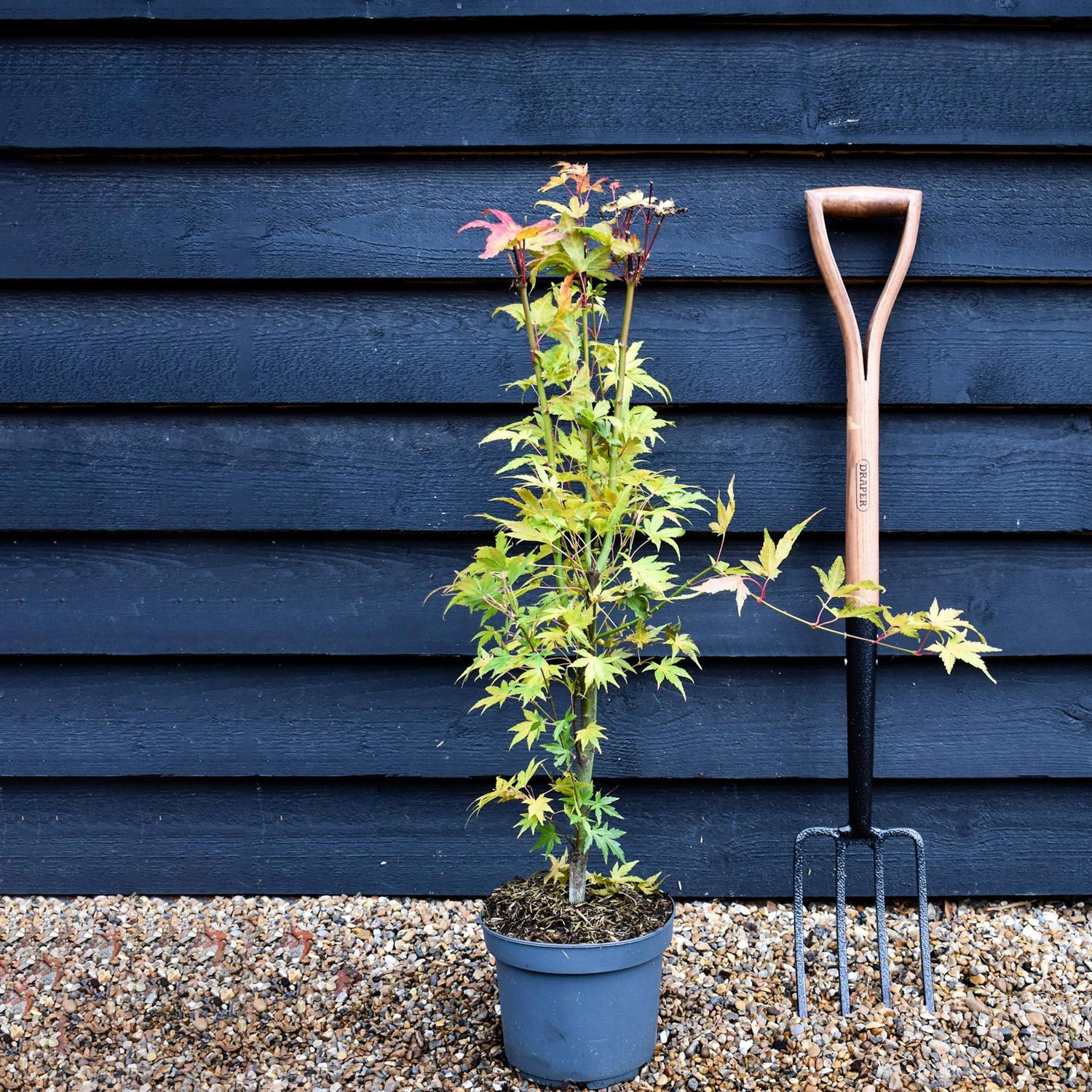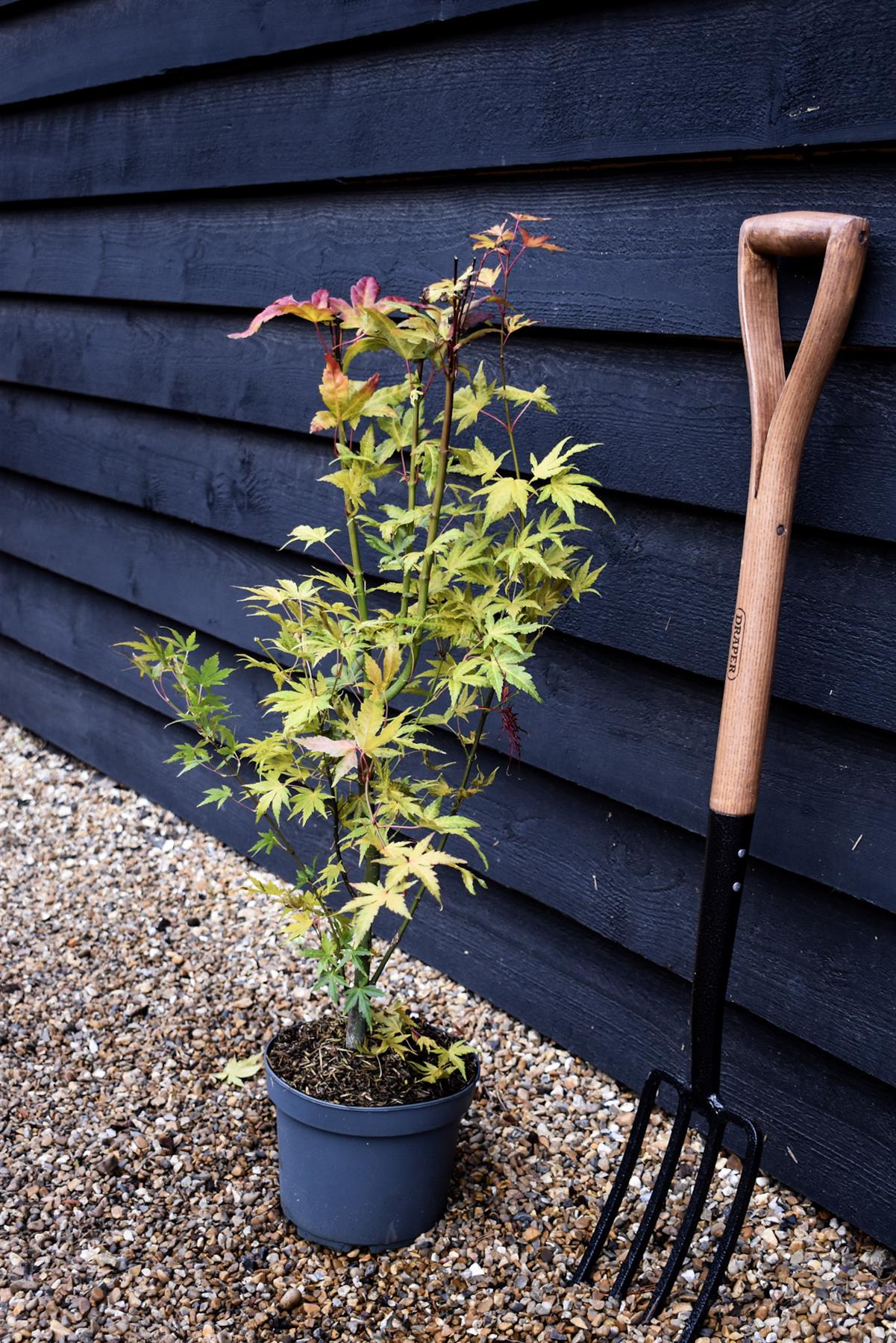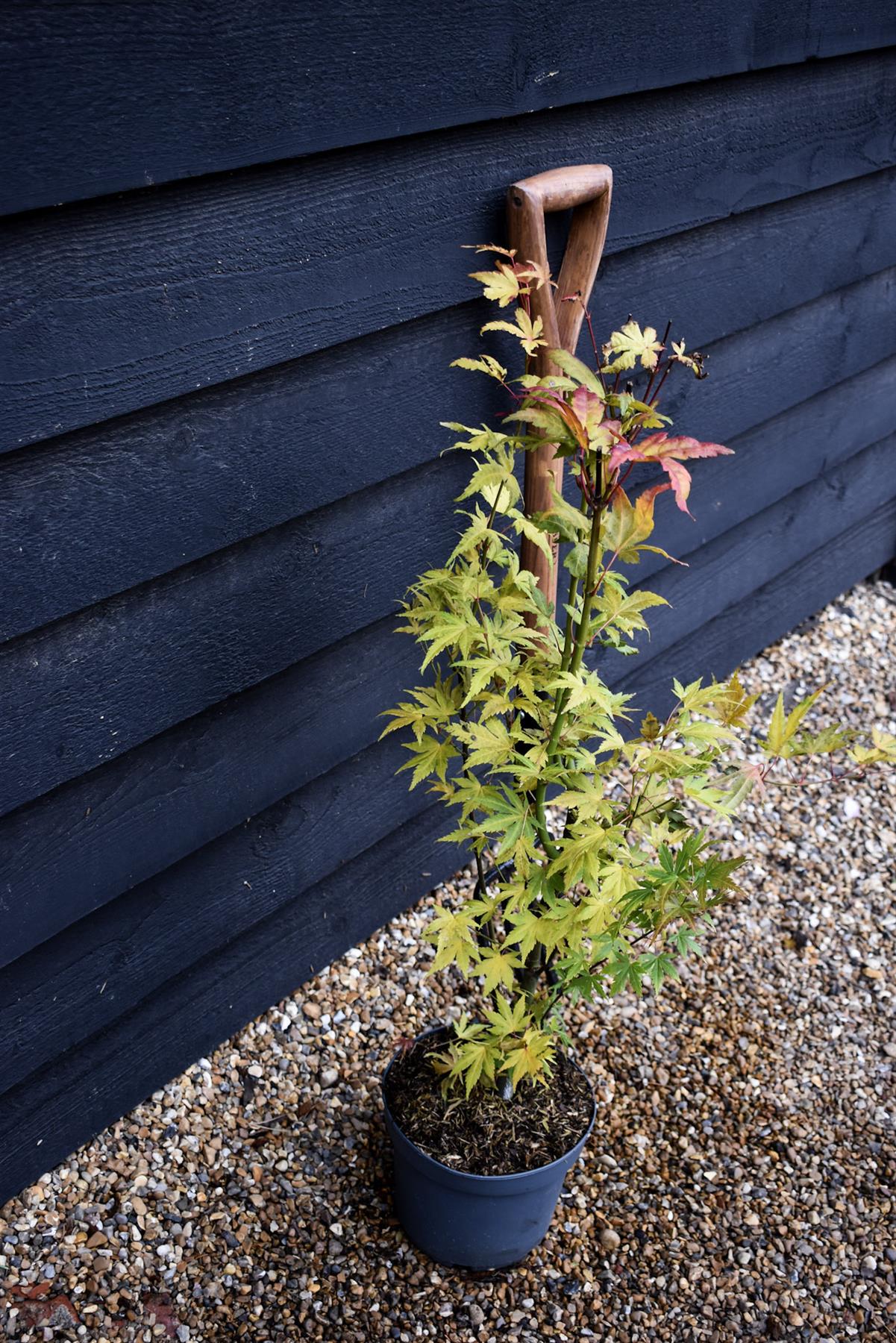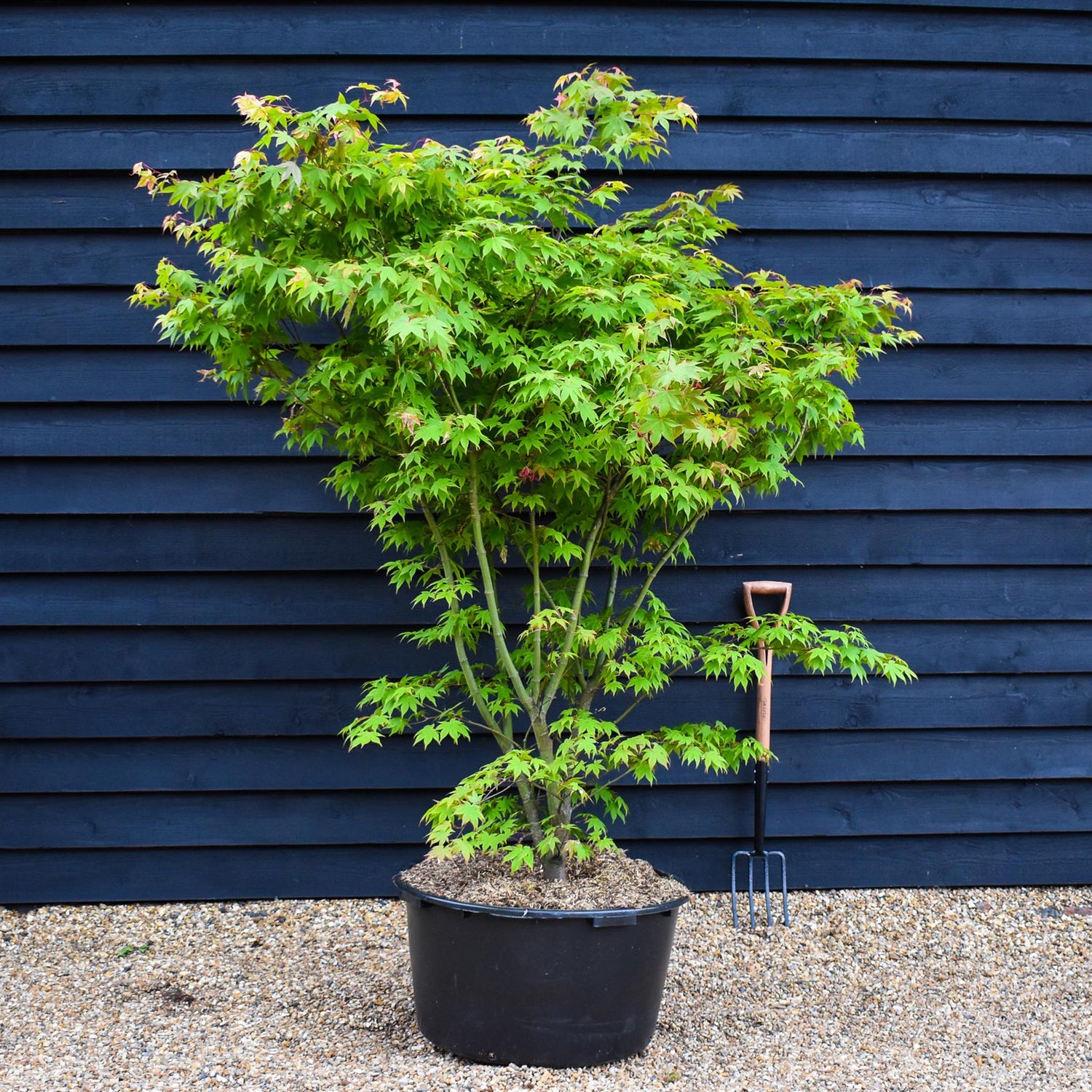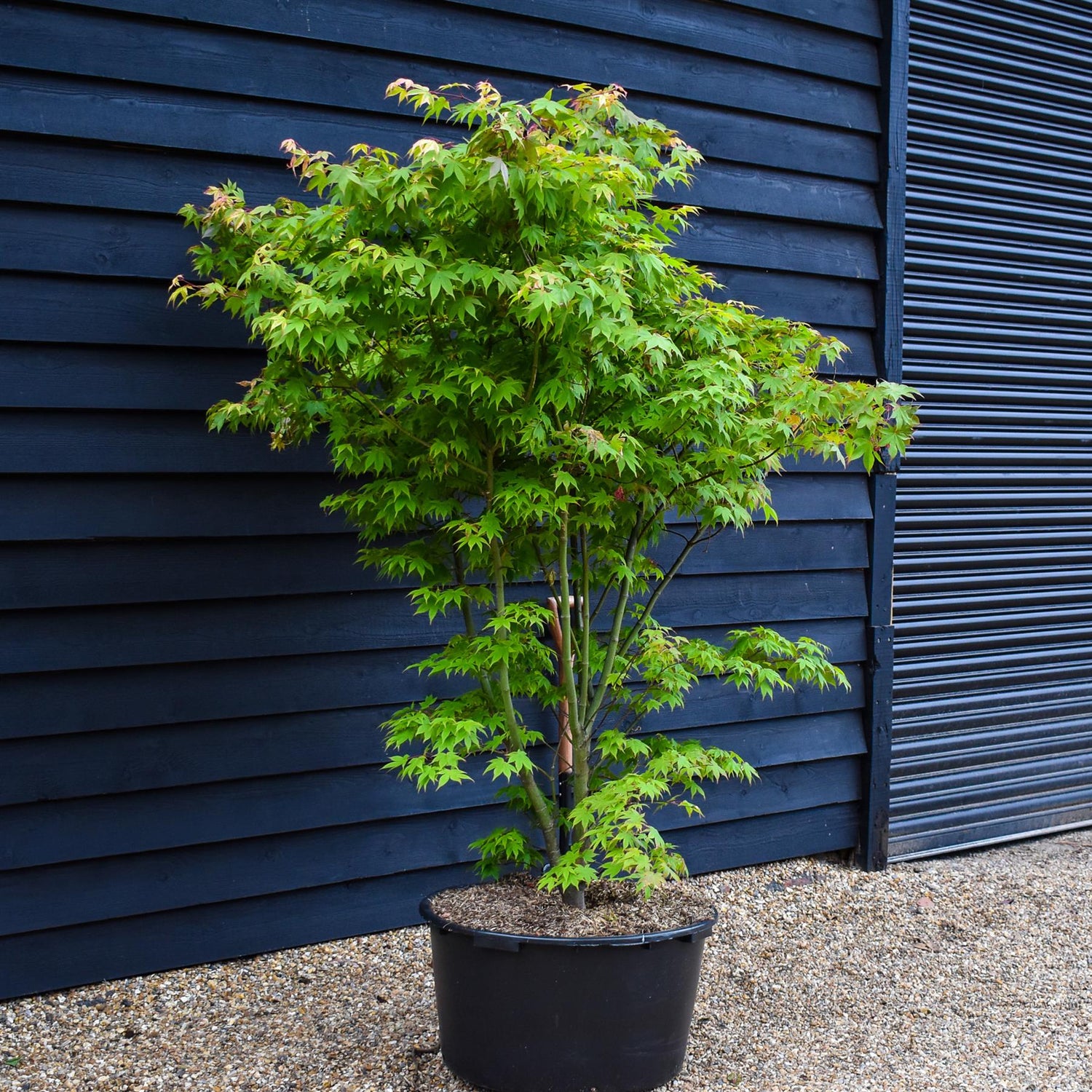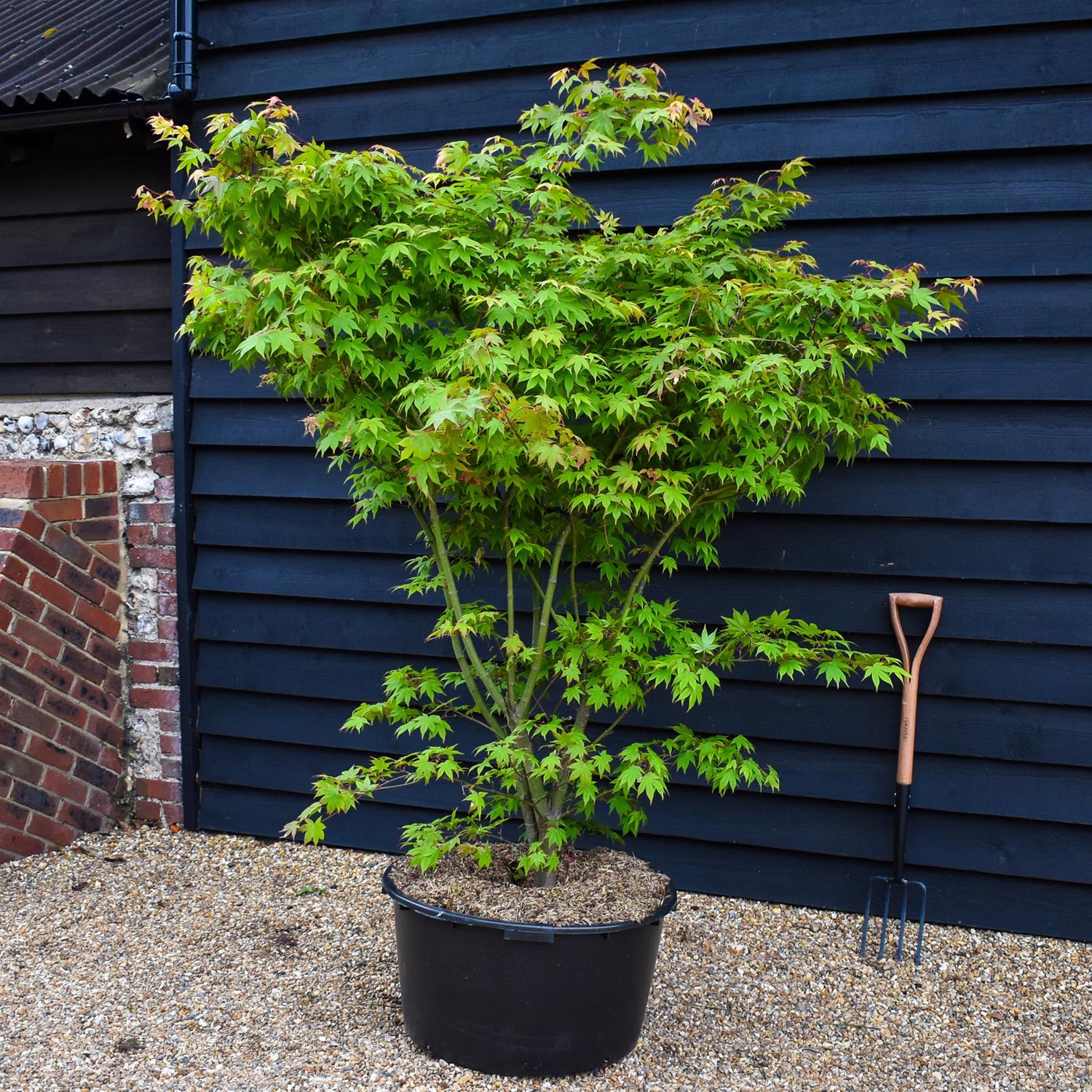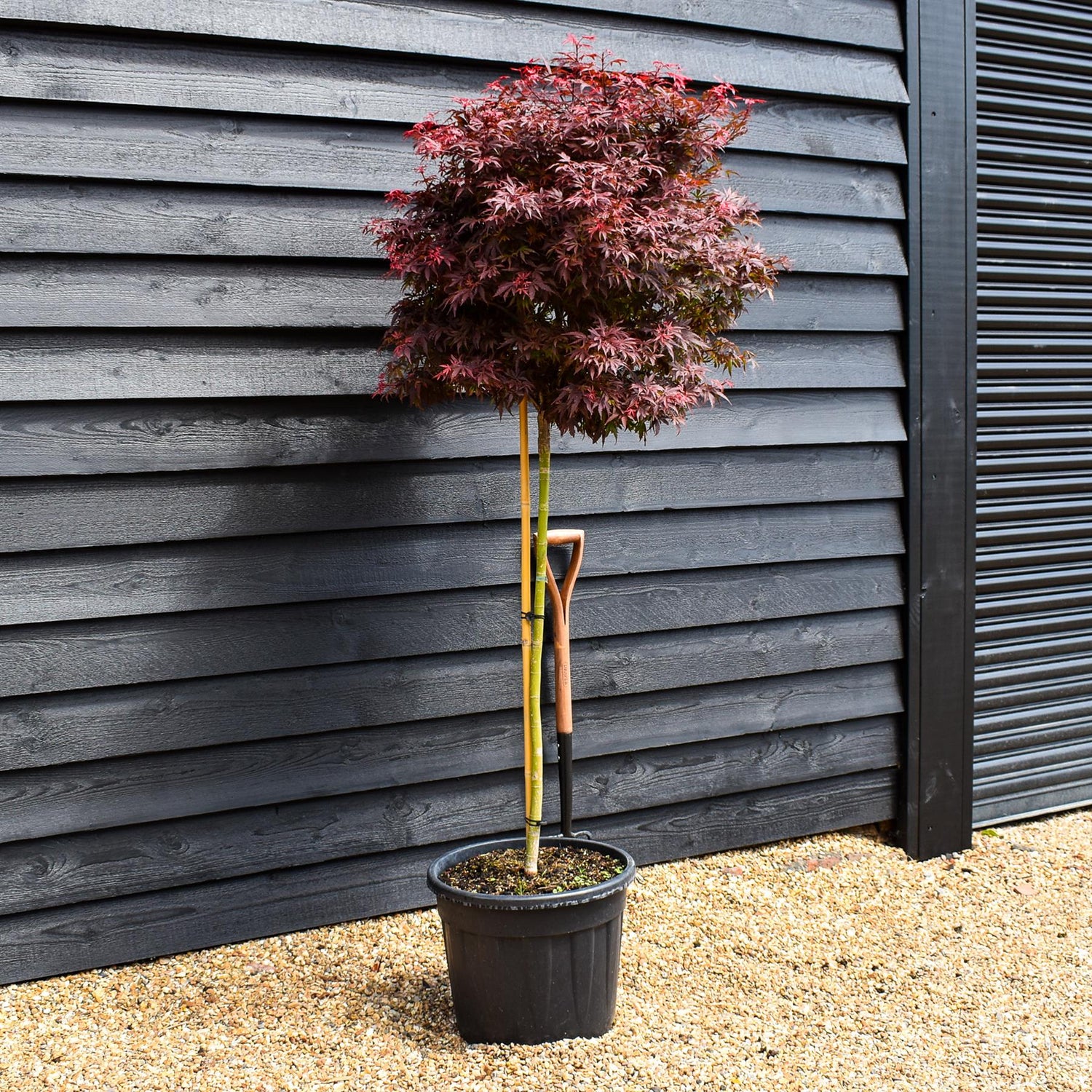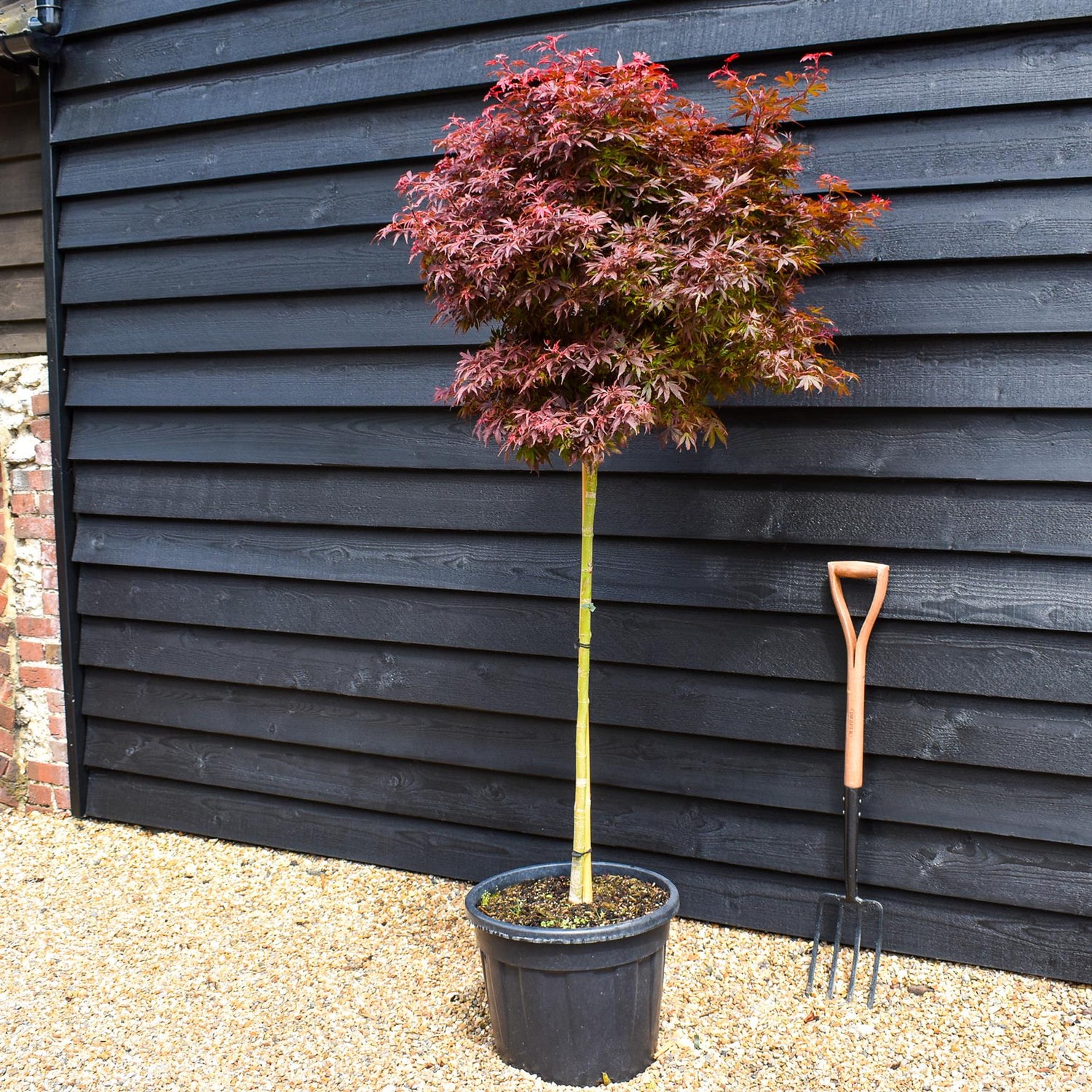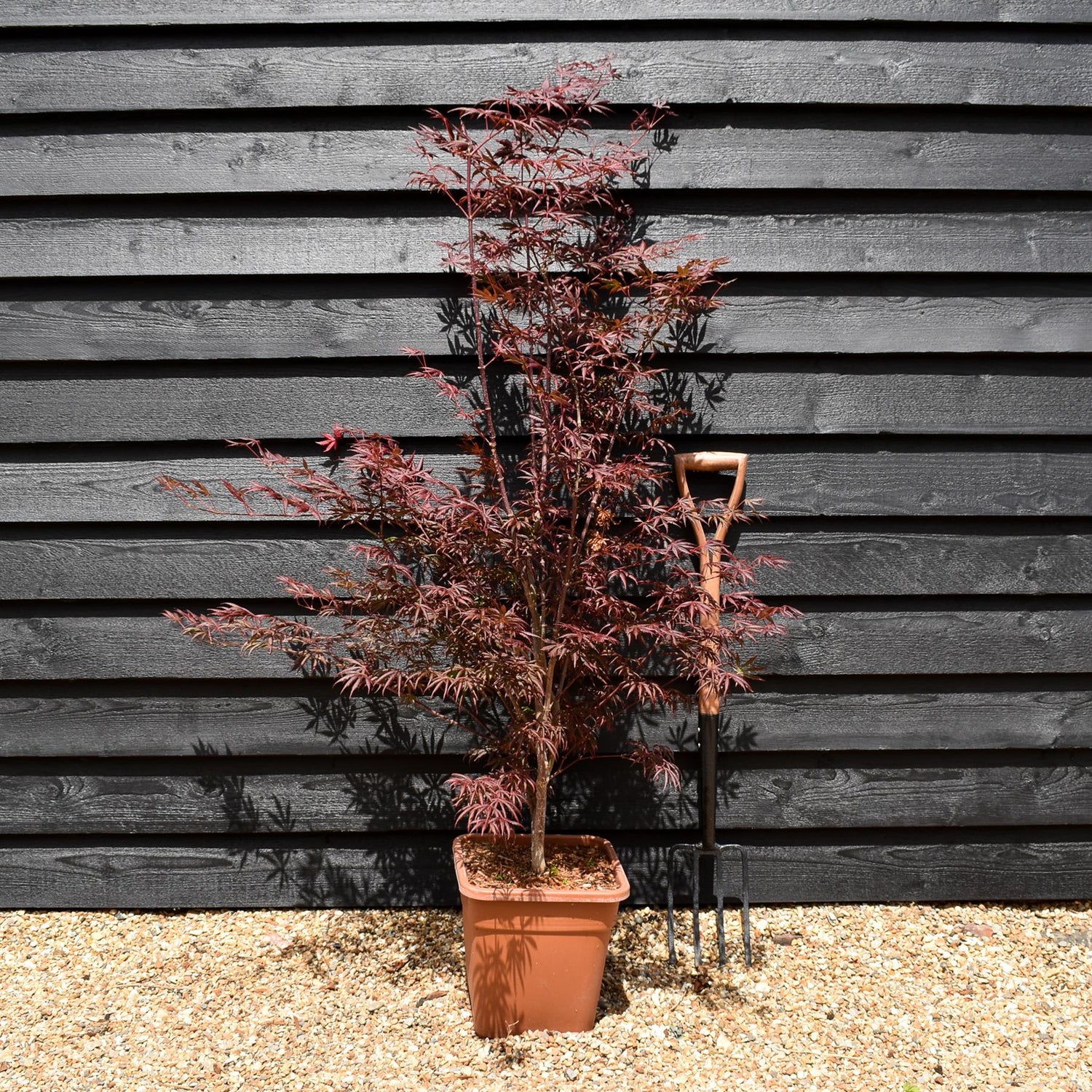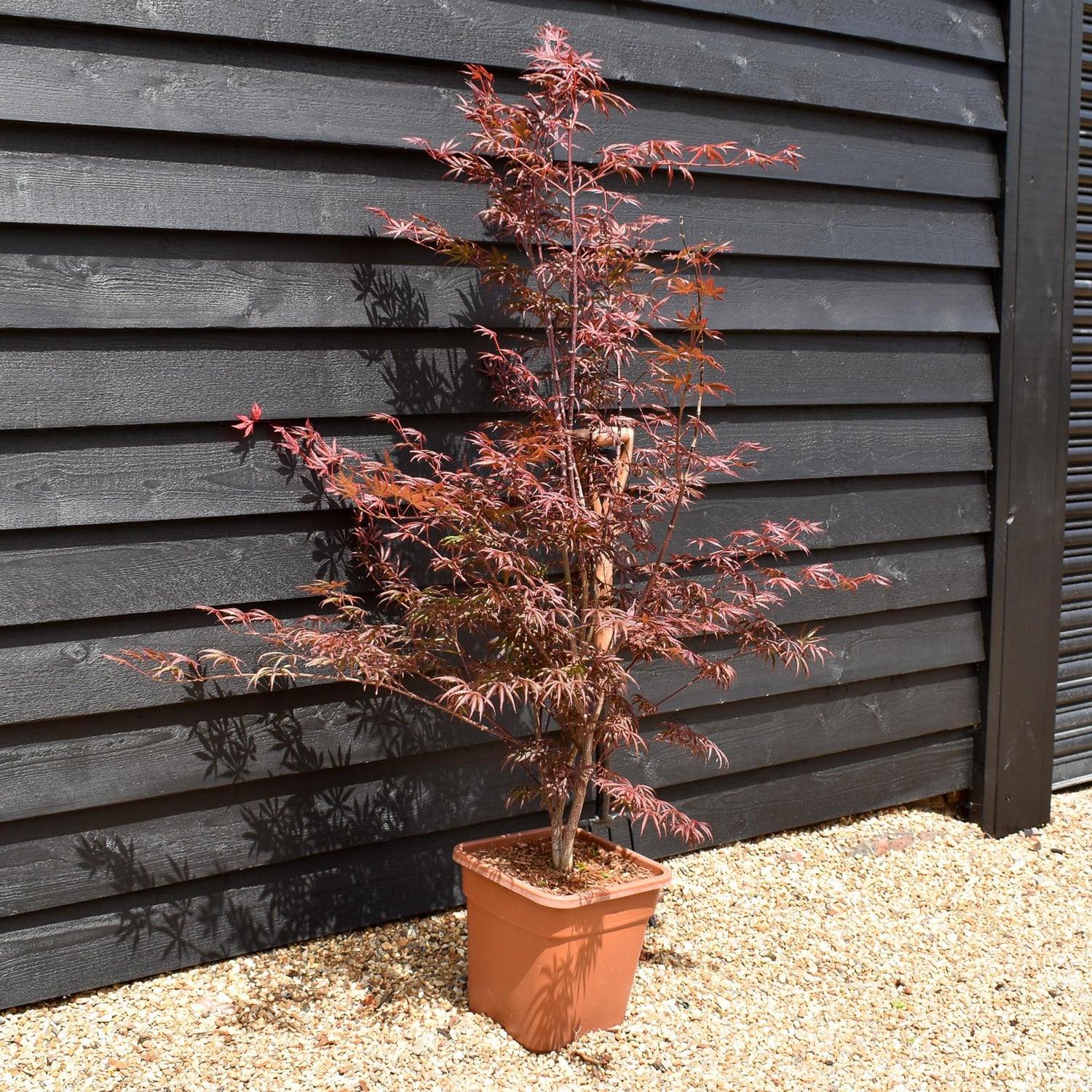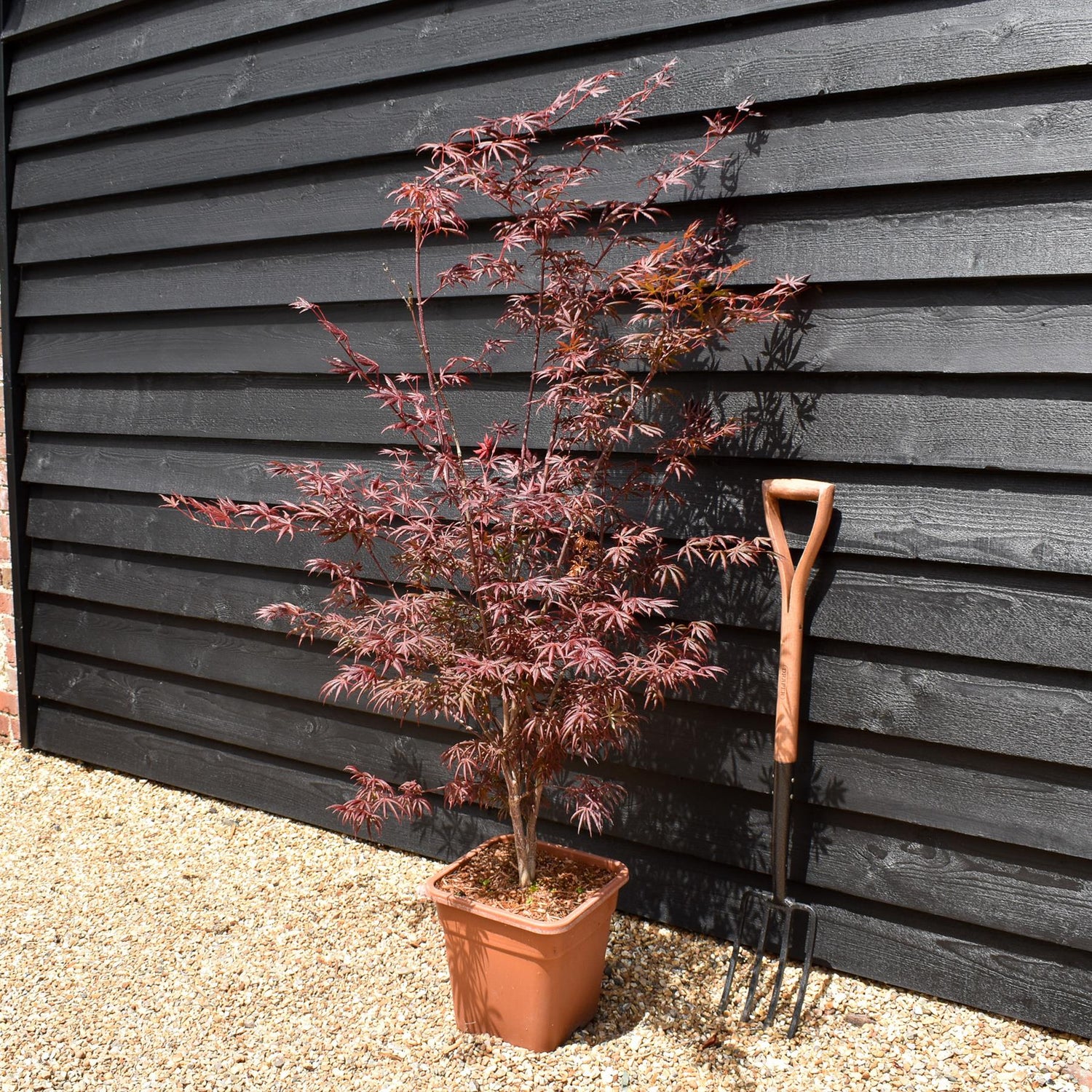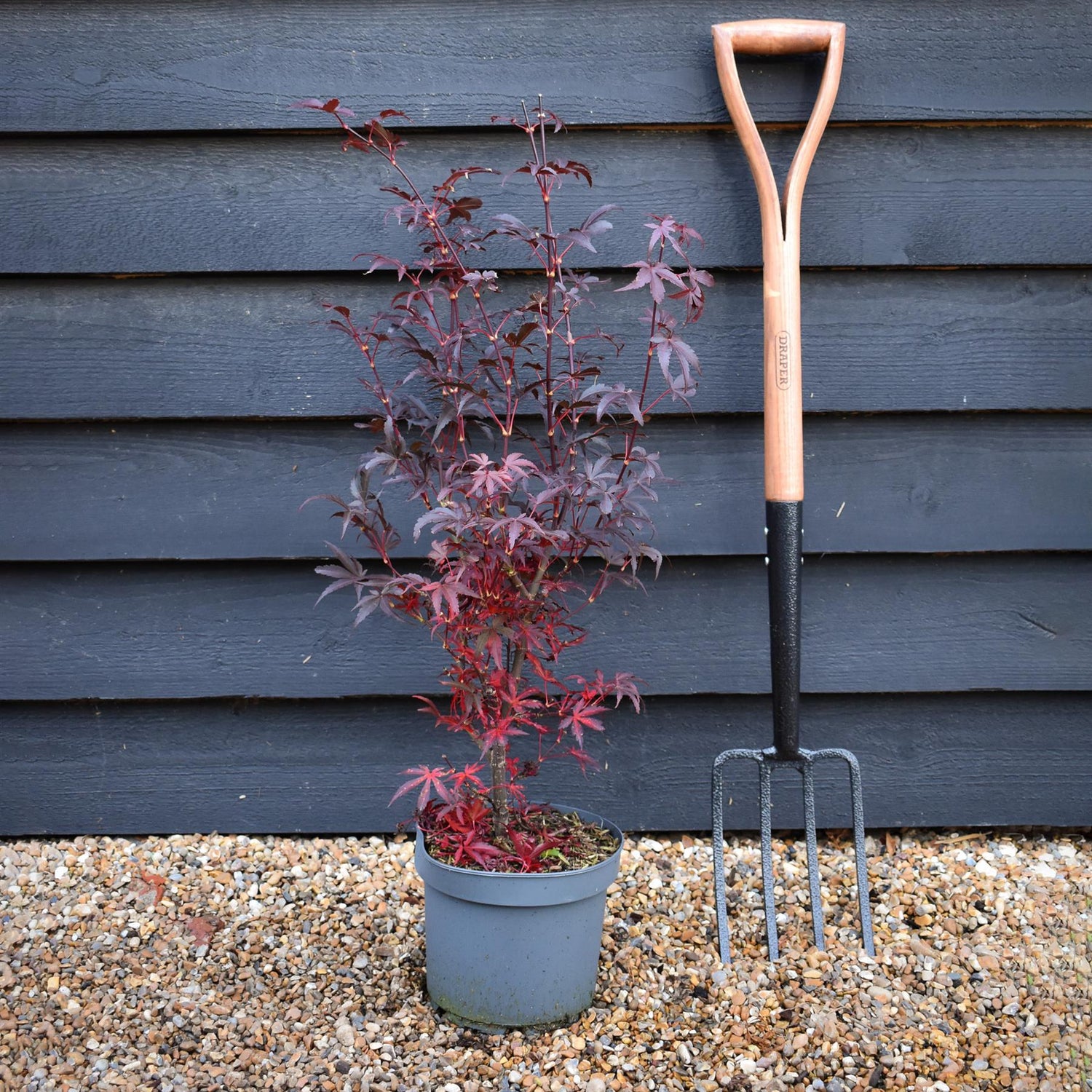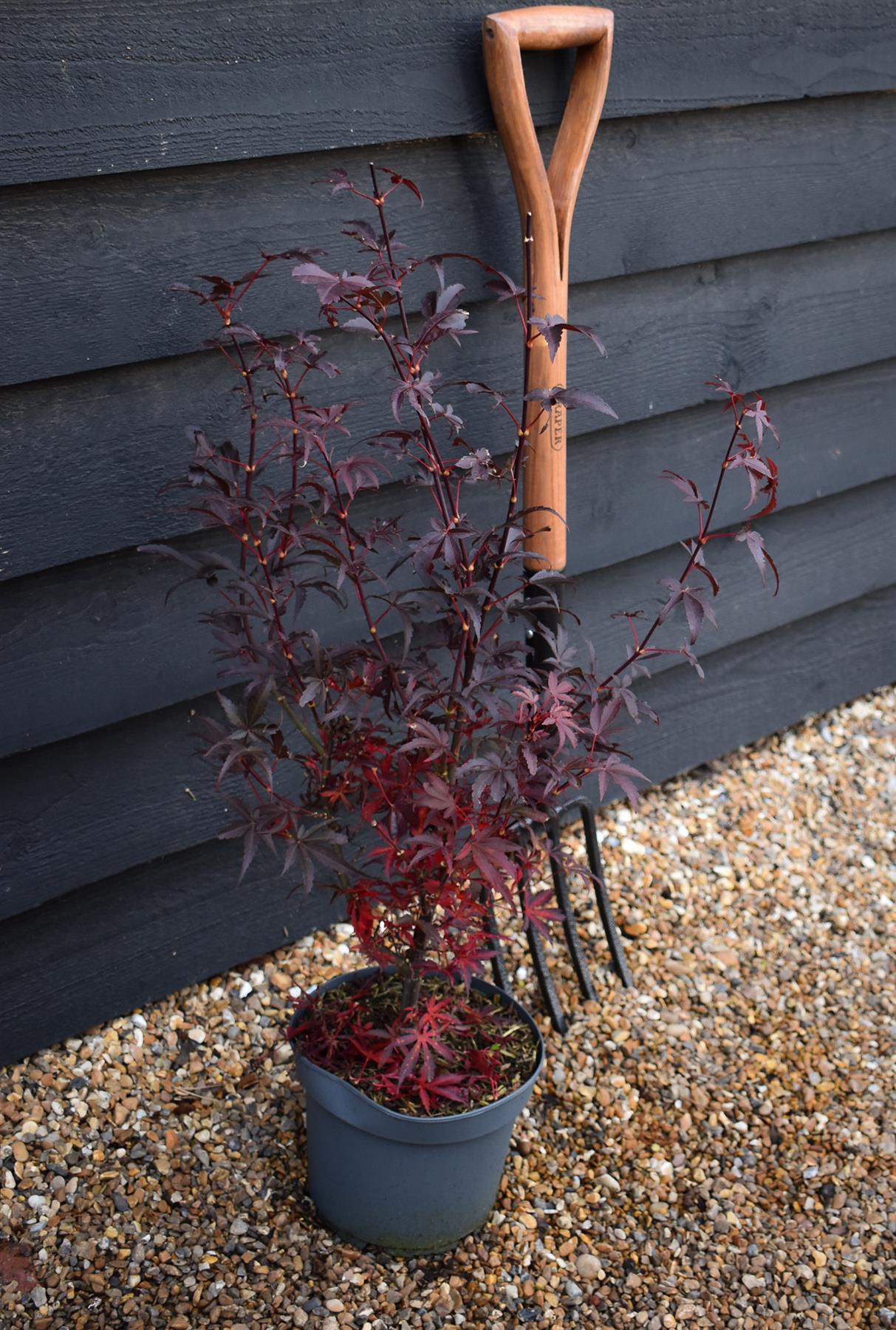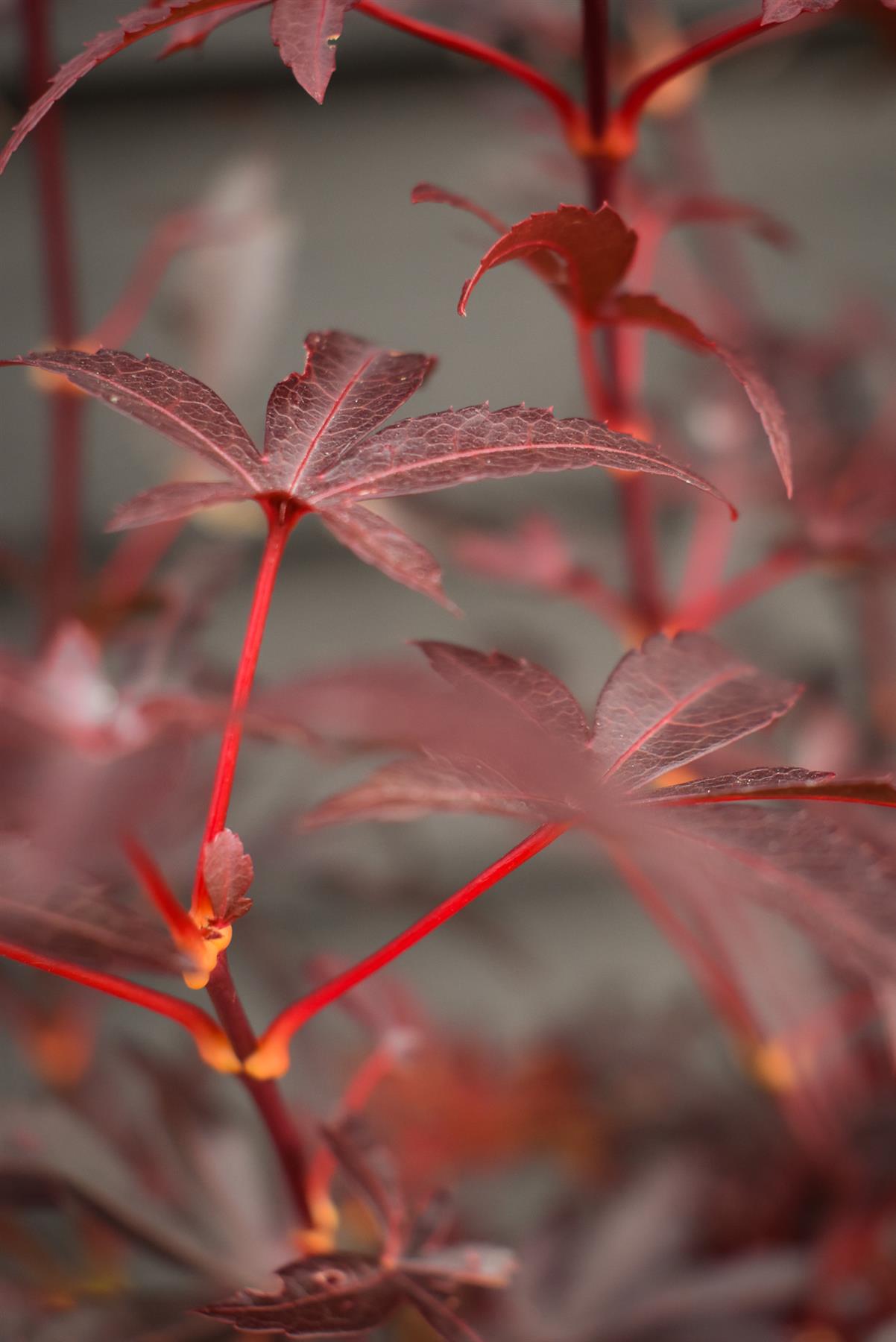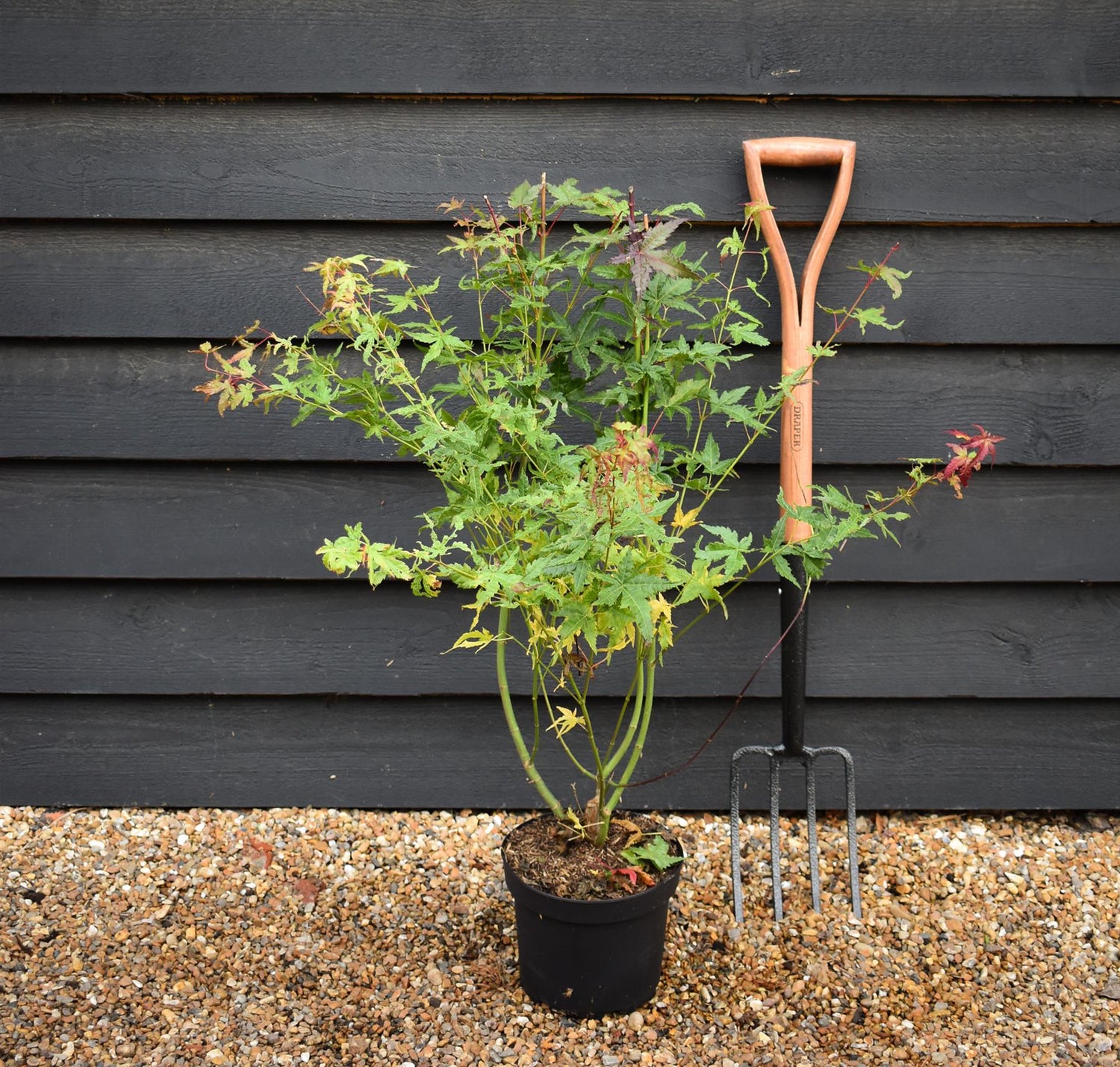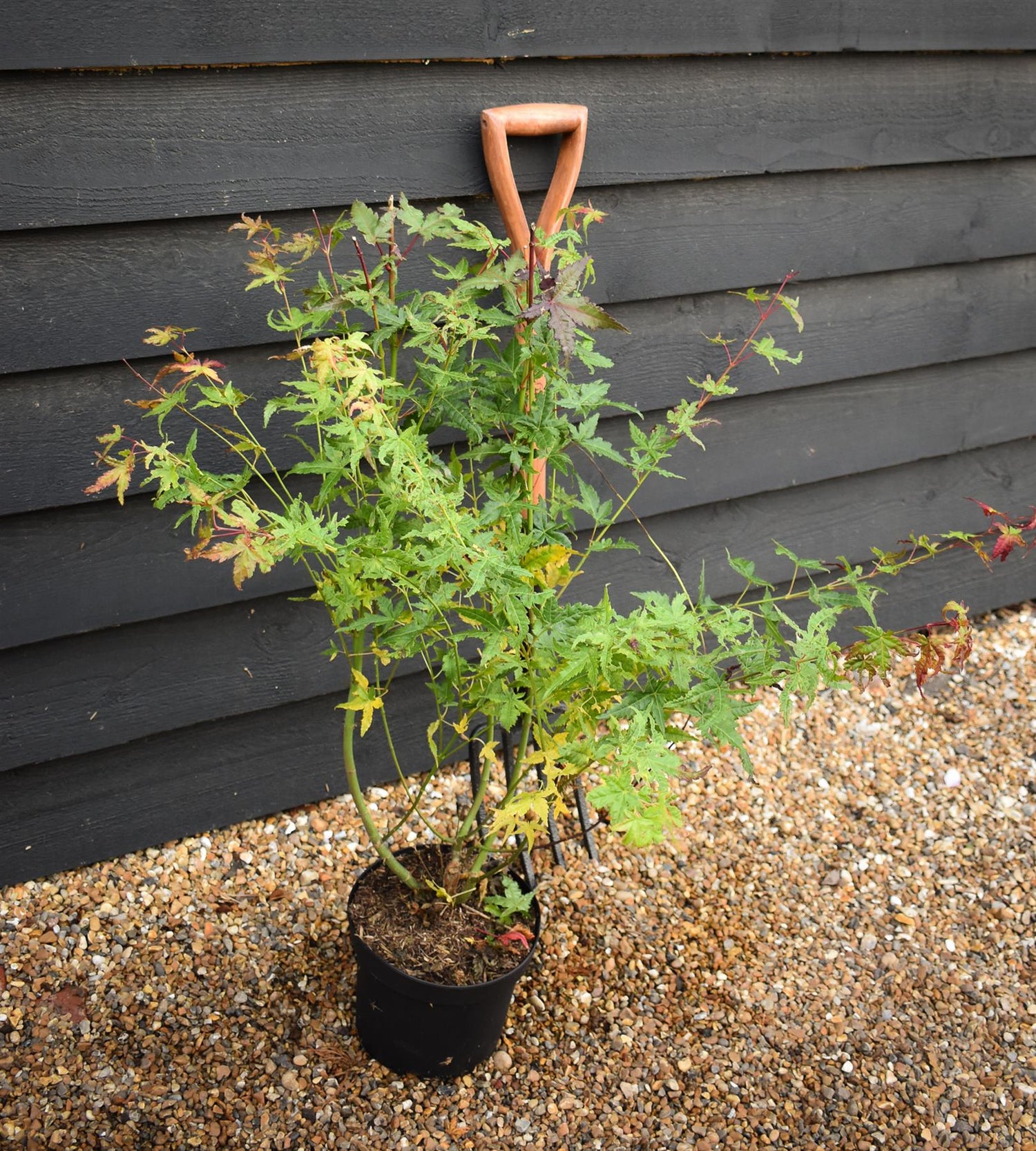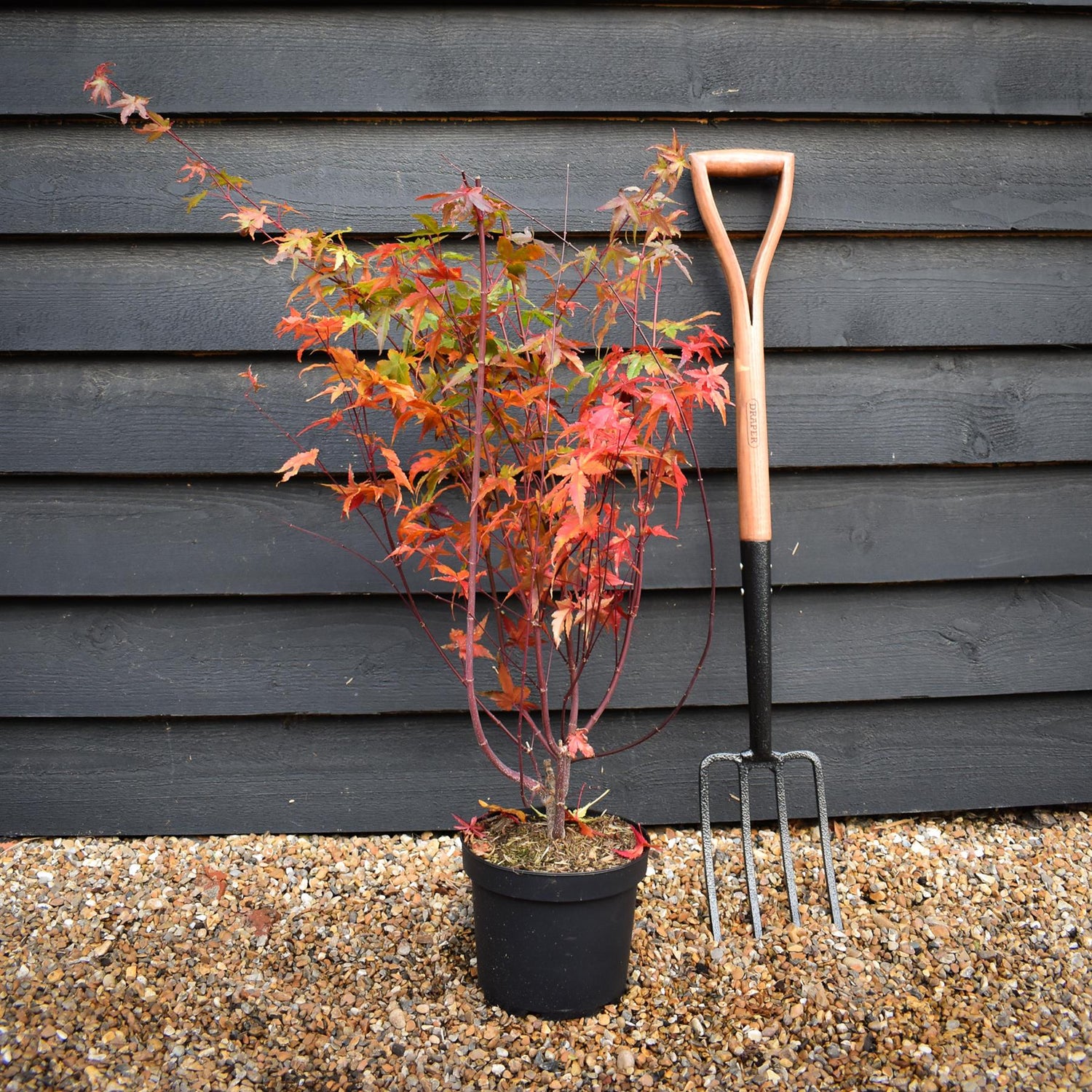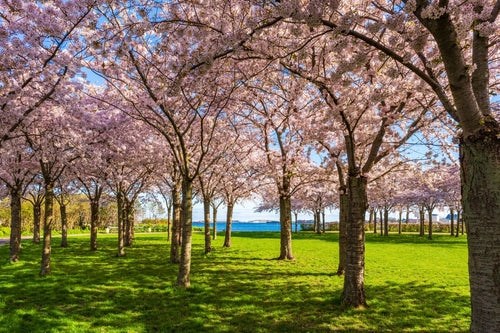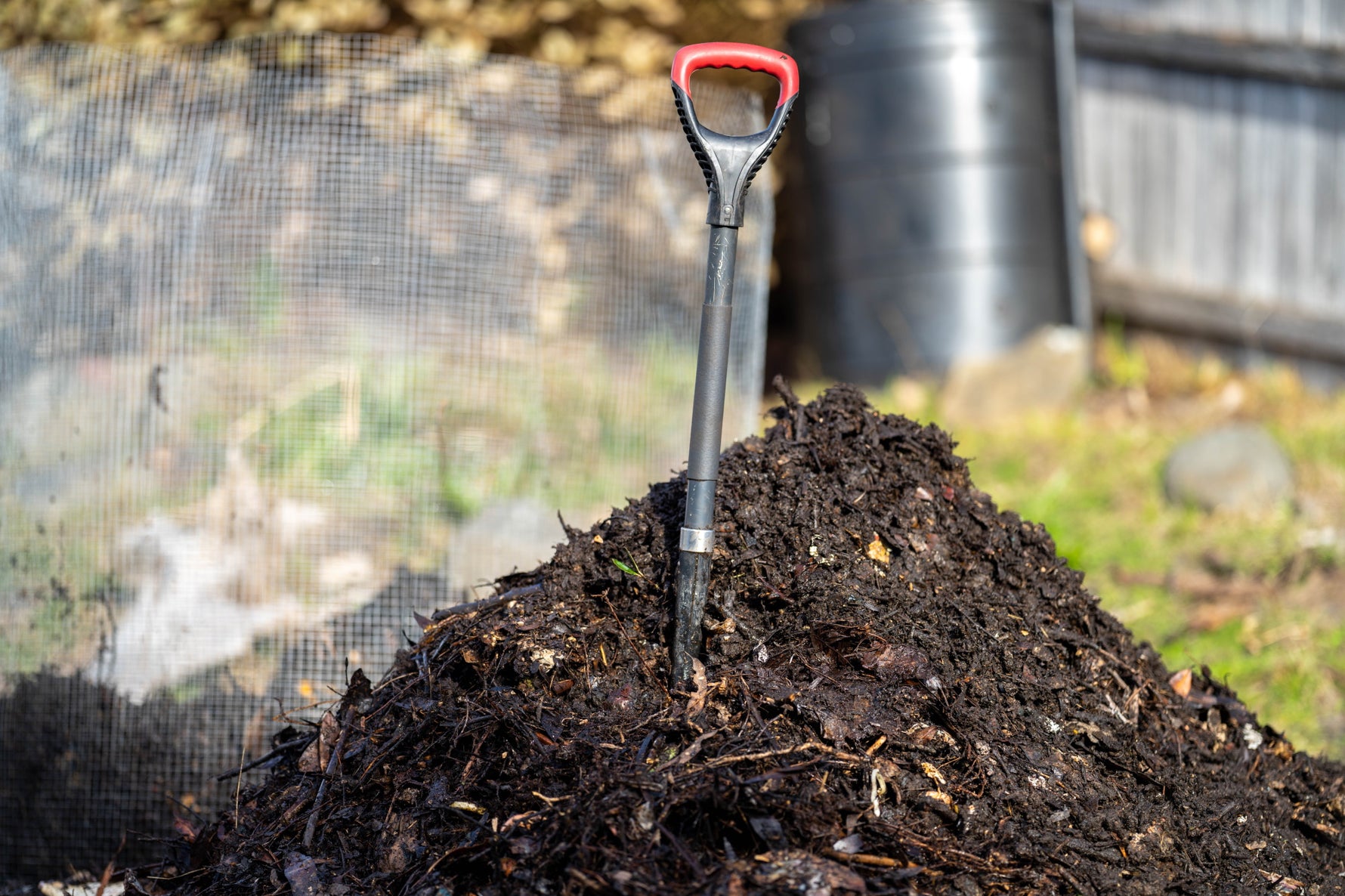78 products
78 products
Sort by:

Apple tree 'Scrumptious' | Malus domestica - M26 - Dwarfing - 140-150cm - 10lt
£72.00
Unit price perApple tree 'Scrumptious' | Malus domestica - M26 - Dwarfing - 140-150cm - 10lt
£72.00
Unit price perMalus domestica 'Scrumptious' is an early-fruiting, dessert apple tree with ovate, dark green leaves and pale pink flowers blooming in spring. Flowers are followed by heavy crops of large, sweet, crisp, and aromatic apples with thin, red skin and tasty, white flesh, ready for harvesting in early autumn, usually September. Malus domestica 'Scrumptious' grows best in moderately fertile, moist, well-drained soils in full sun, but can adapt to a wide range of soils as long as they are well-drained. It can tolerate partial shade but the best cropping occurs if grown in full sun. It can withstand frost and, therefore, suitable for colder areas. Fairly resistant to pests and diseases. It is self-fertile and a good pollinator to other varieties. May require pruning and fruit thinning for better crops. Apple 'Scrumptious' is a modern English dessert apple, a cross between the Golden Delicious and the Discovery. Great option for small informal and cottage gardens and for growing in containers.
M26 is a semi-dwarfing rootstock (smaller than MM106) used for apple trees, particularly in orchards and home gardens. It produces trees 10-12 feet in height, making them easier to manage and harvest. M26 ensures early fruit production, good anchorage, and medium vigour. However, it requires staking during early years and is moderately susceptible to fire blight.
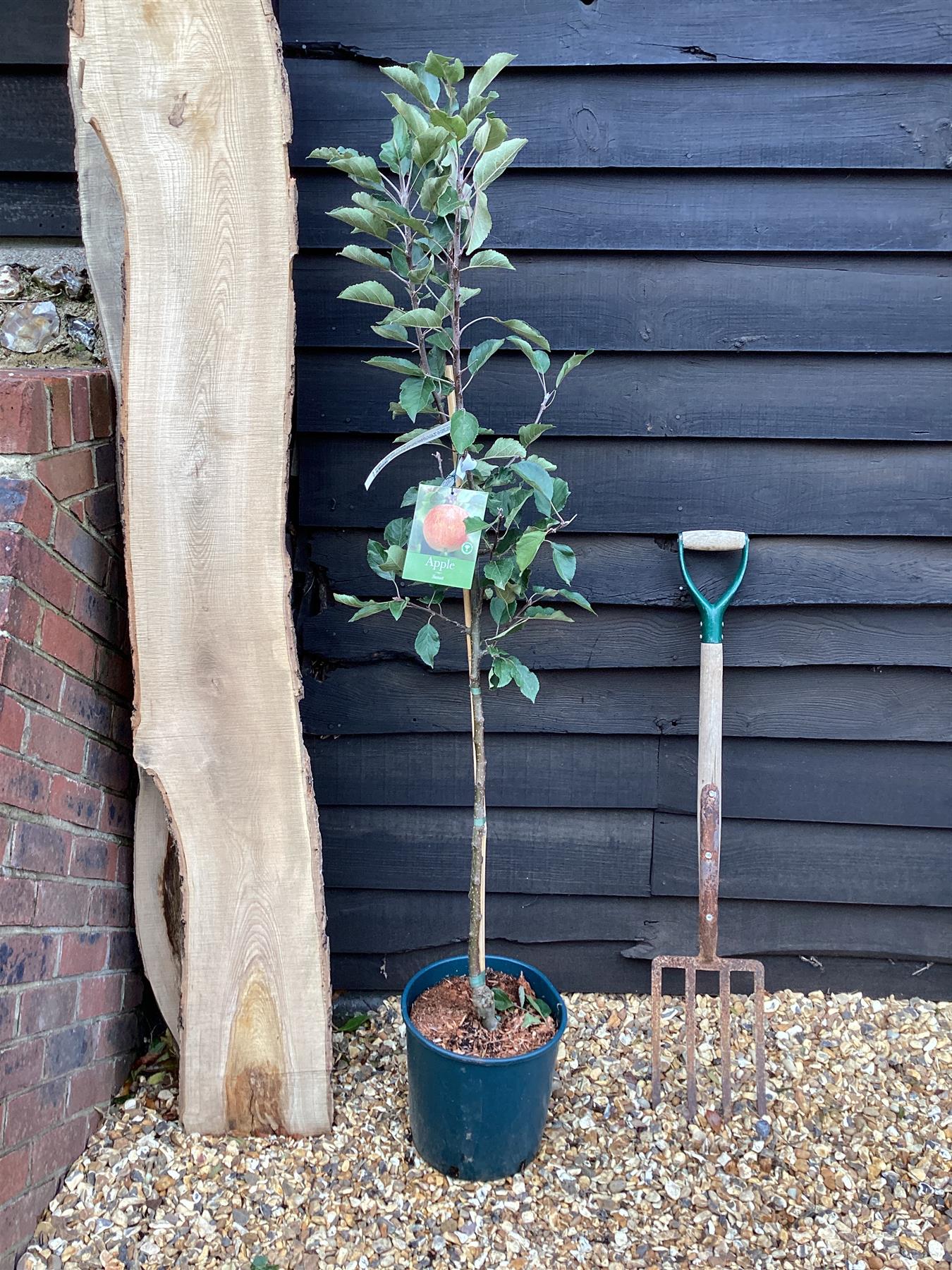
Apple tree 'Sunset' | Malus domestica - M26 - Dwarfing - 140-150cm - 10lt
£70.00
Unit price perApple tree 'Sunset' | Malus domestica - M26 - Dwarfing - 140-150cm - 10lt
£70.00
Unit price perSunset apple is a heavy-cropping garden apple with upright, compact habit and attractive pale pink flowers that bloom in March. They are followed by small, round to ovate, golden-yellow and green fruit with red and orange striping. A white to ivory flesh is crisp, firm and fine-grained, sometimes tinged with green. It has sweet, sharp, aromatic flavour. Sunset Apple was bred in approximately 1918 by G. C. Addy at Ightham, Kent. One of the parent varieties is Cox’s Orange Pippin Apple. Sunset Apple was meant to be similar to it, but easier to grow. It is very resilient, generally disease-free, cold and frost resistant, therefore, suitable for growing even in northern parts of Europe. Doesn’t need a pollinating partner because it is self-fertile. It is not commercially grown because of its small size. Sunset apples are crispy and juicy, great for eating or cooking. When cooked, they retain their shape.
M26 is a semi-dwarfing rootstock (smaller than MM106) used for apple trees, particularly in orchards and home gardens. It produces trees 10-12 feet in height, making them easier to manage and harvest. M26 ensures early fruit production, good anchorage, and medium vigor. However, it requires staking during early years and is moderately susceptible to fire blight.
Chamaerops Compacta - Height 80-90cm - Shrub - 50lt
£418.00
Unit price perChamaerops Compacta - Height 80-90cm - Shrub - 50lt
£418.00
Unit price perChamaerops compacta, a compact form of the Mediterranean fan palm, is an excellent choice for gardens where space is limited but a bold, architectural plant is desired. Its compact, clumping growth habit makes it particularly suitable for small gardens, courtyards, patios, and container planting. With its dense arrangement of fan-shaped, leathery green leaves, it adds texture and structure to planting schemes and pairs well with both modern and Mediterranean-style garden designs.
This palm is extremely hardy for a palm species, tolerating temperatures down to -10°C (14°F), making it suitable for temperate climates. It prefers full sun but can adapt to part shade, and thrives in well-drained soil. Once established, it is drought-tolerant, making it a low-maintenance choice for water-wise gardens.
Chamaerops compacta’s naturally tidy, clump-forming habit means it rarely needs pruning, and it remains relatively low in height, typically reaching 1–1.5 meters. It also resists wind and salt, making it a good option for coastal gardens. Whether used as a focal point, a textural accent, or part of a mixed border, this palm brings year-round interest and resilience to the garden.
Garnet Japanese Maple | Acer palmatum 'Garnet' Weeping - Clear Stem 30-40cm - Height 80-90cm - 40lt
£328.00
Unit price perGarnet Japanese Maple | Acer palmatum 'Garnet' Weeping - Clear Stem 30-40cm - Height 80-90cm - 40lt
£328.00
Unit price perGarnet Japanese Maple | Acer palmatum 'Garnet' Weeping - Clear Stem 30-50cm - Height 120-130cm - 35lt
£355.00
Unit price perGarnet Japanese Maple | Acer palmatum 'Garnet' Weeping - Clear Stem 30-50cm - Height 120-130cm - 35lt
£355.00
Unit price perGarnet Japanese Maple | Acer palmatum 'Garnet' - Weeping - Clear Stem 40cm - Height 90-100cm - 15lt
£132.00
Unit price perGarnet Japanese Maple | Acer palmatum 'Garnet' - Weeping - Clear Stem 40cm - Height 90-100cm - 15lt
£132.00
Unit price perGinkgo biloba 'Mariken' | Maidenhair Tree- Half Standard - Clear Stem 60cm - Height 90-100cm - 15lt
£125.00
Unit price perGinkgo biloba 'Mariken' | Maidenhair Tree- Half Standard - Clear Stem 60cm - Height 90-100cm - 15lt
£125.00
Unit price perJapanese Maple 'Garnet' | Acer palmatum 'Garnet' Clear Stem 20cm - Height 50-70cm - 4lt
£49.00
Unit price perJapanese Maple 'Garnet' | Acer palmatum 'Garnet' Clear Stem 20cm - Height 50-70cm - 4lt
£49.00
Unit price perThe Acer palmatum 'Garnet', commonly known as the Japanese Maple 'Garnet', is a captivating and popular deciduous tree renowned for its stunning foliage. This small, graceful tree features deeply dissected leaves with a delicate, lacy appearance, emerging as vibrant crimson-red in the spring. Throughout the summer, the foliage maintains its rich garnet hue, providing a striking contrast against the greenery of other plants. In autumn, the leaves transition to a brilliant scarlet, adding a spectacular splash of color to the landscape.
'Garnet' grows slowly, typically reaching a height and spread of 2-3 meters, making it an excellent choice for smaller gardens, patios, or as a focal point in larger landscapes. It thrives in well-drained, slightly acidic soil and prefers a sheltered location with partial shade, although it can tolerate full sun if given adequate moisture.
This cultivar is relatively low-maintenance, requiring minimal pruning to maintain its shape and health. It is also resistant to most pests and diseases. The Acer palmatum 'Garnet' is highly valued for its year-round interest and ability to provide a touch of elegance and serenity to any garden setting. Its unique foliage and compact form make it a perfect addition to Japanese-style gardens, rockeries, and mixed borders.
Japanese maple 'Going Green' | Acer palmatum - Bushy - Height 150-180cm - 20-25lt
£125.00
Unit price perJapanese maple 'Going Green' | Acer palmatum - Bushy - Height 150-180cm - 20-25lt
£125.00
Unit price perJapanese Maple 'Inaba-Shidare' | Acer palmatum - Bushy - Height 50-70cm - 4lt
£49.00
Unit price perJapanese Maple 'Inaba-Shidare' | Acer palmatum - Bushy - Height 50-70cm - 4lt
£49.00
Unit price perAcer palmatum 'Inaba-Shidare' is a sought-after Japanese Maple variety known for its remarkable, intricate foliage and distinctive growth habit. This particular specimen sports an 80cm clear stem, supporting a weeping head, bringing the overall height of the tree to 110cm. It epitomizes graceful elegance with its cascading branches cloaked in deeply dissected, feather-like leaves. The leaves are a striking purplish-red, intensifying to a brilliant crimson come autumn, offering a vibrant spectacle. It is relatively compact, making it a superb choice for smaller gardens or growing in containers. It’s well-suited to creating focal points within landscapes, providing both visual appeal and architectural structure. Its rugged charm is highlighted when placed against a backdrop of evergreens or contrasting foliage, where its intricate silhouette becomes a living sculpture. A lover of well-drained, fertile soils and partial shade, ‘Inaba-Shidare’ requires protection from harsh winds and excessive sun to maintain the integrity of its delicate foliage. During winter, its dormant, twisted limbs add an additional layer of interest, hinting at its robust nature beneath a seemingly delicate demeanor. This exquisite blend of strength and beauty makes the Acer palmatum 'Inaba-Shidare' a beloved addition to diverse horticultural designs.
Japanese Maple 'Inaba-Shidare' |Clear Stem 70-80cm - Height 80-120cm - 30lt
£310.00
Unit price perJapanese Maple 'Inaba-Shidare' |Clear Stem 70-80cm - Height 80-120cm - 30lt
£310.00
Unit price perAcer palmatum 'Inaba-Shidare' is a sought-after Japanese Maple variety known for its remarkable, intricate foliage and distinctive growth habit. This particular specimen sports an 80cm clear stem, supporting a weeping head, bringing the overall height of the tree to 110cm. It epitomizes graceful elegance with its cascading branches cloaked in deeply dissected, feather-like leaves. The leaves are a striking purplish-red, intensifying to a brilliant crimson come autumn, offering a vibrant spectacle. It is relatively compact, making it a superb choice for smaller gardens or growing in containers. It’s well-suited to creating focal points within landscapes, providing both visual appeal and architectural structure. Its rugged charm is highlighted when placed against a backdrop of evergreens or contrasting foliage, where its intricate silhouette becomes a living sculpture. A lover of well-drained, fertile soils and partial shade, ‘Inaba-Shidare’ requires protection from harsh winds and excessive sun to maintain the integrity of its delicate foliage. During winter, its dormant, twisted limbs add an additional layer of interest, hinting at its robust nature beneath a seemingly delicate demeanor. This exquisite blend of strength and beauty makes the Acer palmatum 'Inaba-Shidare' a beloved addition to diverse horticultural designs.
Japanese maple 'Orange Dream' | Acer palmatum - Height 60-80cm - 4lt
£50.00
Unit price perJapanese maple 'Orange Dream' | Acer palmatum - Height 60-80cm - 4lt
£50.00
Unit price perAcer palmatum 'Orange Dream' is a captivating variety of Japanese Maple renowned for its eye-catching colour transitions through the seasons. It typically exhibits vibrant orange-yellow foliage in spring, subtly transforming to a soft, light green as summer approaches. This stunning foliage coloration is accentuated with a contrasting network of delicate, dark red veins running through the leaves, contributing to its ornamental value.
In autumn, ‘Orange Dream’ puts on a spectacular display as the leaves transmute to a brilliant gold, sometimes with shades of red, providing a lasting impression before they fall. It's a compact, bushy, deciduous tree, making it an ideal choice for smaller gardens or for growing in containers. Additionally, it’s relatively slow-growing, reaching a height of approximately 3-4 meters over a 10-year period, ensuring manageability.
This variety prefers a sheltered location, avoiding the harshest midday sun, and appreciates well-draining, acidic to neutral soil. Providing adequate protection from strong winds and extreme temperatures will help in maintaining its vibrant leaf colour and overall health. Regular watering, particularly in drier periods, is crucial, although it is important to avoid waterlogged conditions.
The aesthetic appeal and manageable size of 'Orange Dream' make it a popular choice among gardeners seeking to add a touch of drama and sophistication to their landscapes.
Japanese maple 'Osakazuki' | Acer palmatum 'Osakazuki' - Bushy - Height 180-200cm - 90lt
£970.00
Unit price perJapanese maple 'Osakazuki' | Acer palmatum 'Osakazuki' - Bushy - Height 180-200cm - 90lt
£970.00
Unit price perAcer palmatum 'Osakazuki' is a distinct cultivar of Japanese Maple notable for its stunning autumn foliage, which transforms into brilliant shades of fiery red. This deciduous tree has an elegant, rounded form and typically reaches a height and spread of 15-20 feet, making it a spectacular feature in gardens, especially in autumn.
The leaves of 'Osakazuki' are palmate and lobed, displaying a lush green color through spring and summer, before their autumn transformation. These leaves have a uniquely refined texture, enhancing its aesthetic appeal throughout the growing season.
Ideal for small gardens, 'Osakazuki' prefers well-drained, moist soils and sheltered locations to protect its delicate foliage from harsh winds. It can thrive in full sun to partial shade, but for the best autumn color, a location with more sunlight is preferable.
This tree is relatively low-maintenance but benefits from regular watering, especially in dryer periods, and mulching to maintain soil moisture. Acer palmatum 'Osakazuki' is highly resistant to pests and diseases, making it a robust choice for a wide range of landscapes. The vivid, extended display of autumn color, coupled with its graceful growth habit, renders 'Osakazuki' a coveted choice among garden enthusiasts.
Japanese maple 'Ryusen' | Acer palmatum - Clear Stem 200-220cm - Weeping - Height 210-240cm - 35lt
£435.00
Unit price perJapanese maple 'Ryusen' | Acer palmatum - Clear Stem 200-220cm - Weeping - Height 210-240cm - 35lt
£435.00
Unit price perJapanese maple 'Shaina' | Acer palmatum - Clear Stem 90cm - Height 150-180cm - 35lt
£390.00
Unit price perJapanese maple 'Shaina' | Acer palmatum - Clear Stem 90cm - Height 150-180cm - 35lt
£390.00
Unit price perJapanese Maple 'Trompenburg' | Acer palmatum - Bushy - Height 100-150cm - 18-20lt
£125.00
Unit price perJapanese Maple 'Trompenburg' | Acer palmatum - Bushy - Height 100-150cm - 18-20lt
£125.00
Unit price perAcer palmatum 'Trompenburg' is a unique Japanese maple, valued for its deeply lobed, glossy leaves and rich seasonal color. Emerging in spring with a deep burgundy-red, the foliage maintains its striking hue through summer, developing a rich crimson in autumn. The leaves are distinctively curled, giving them a sculptural, three-dimensional effect that adds texture and interest to any landscape. Growing to about 15-18 feet, 'Trompenburg' has an upright, spreading form that suits both garden beds and container planting. This hardy tree thrives in well-drained soil with partial shade to protect its vibrant color. With its unusual foliage, easy-care requirements, and dynamic color change, Acer palmatum 'Trompenburg' is an excellent choice for adding character and beauty to diverse garden settings.
Japanese maple Skeeters Broom | Acer palmatum - Bushy - Height 110-130cm - 4lt
£55.00
Unit price perJapanese maple Skeeters Broom | Acer palmatum - Bushy - Height 110-130cm - 4lt
£55.00
Unit price perAcer palmatum 'Skeeters Broom' is a unique and stunning cultivar of the Japanese maple tree. This deciduous tree is prized for its striking, bright red foliage that emerges in the spring and turns a deeper shade of red in the fall. The leaves are deeply lobed and delicate, creating a graceful and elegant appearance.
'Skeeters Broom' is a slow-growing tree that typically reaches a height of 6 to 8 feet and a spread of 4 to 6 feet, making it a perfect choice for smaller gardens, courtyards, or even containers. It has a compact and upright growth habit, with branches that grow vertically, giving it a narrow and columnar shape.
This Japanese maple is a low-maintenance tree that prefers partial shade and well-drained soil. It is hardy in zones 5-9 and can tolerate both cold winters and hot summers. 'Skeeters Broom' is also known for its excellent resistance to pests and diseases, making it a reliable addition to any landscape.
Overall, Acer palmatum 'Skeeters Broom' is a striking and unique cultivar that is sure to catch the eye of any passerby. Its compact size, easy care, and stunning foliage make it an excellent choice for gardens of all sizes and styles.
Japanese Maple | Acer palmatum - Height 70-80cm - 4lt
£50.00
Unit price perJapanese Maple | Acer palmatum - Height 70-80cm - 4lt
£50.00
Unit price perAcer palmatum, commonly known as the Japanese maple, is a cherished ornamental tree known for its graceful form and striking seasonal colors. This versatile species features delicate, finely-lobed leaves that display vibrant colors from spring through fall. In spring, new foliage often emerges in shades of light green or red, deepening over summer before transforming into brilliant hues of orange, red, and yellow in autumn. Typically reaching heights of 10-25 feet, Acer palmatum has an elegant, spreading structure that suits small gardens, shaded areas, and container planting. Thriving in well-drained soil with partial shade, it is both low-maintenance and hardy. With its stunning colors and delicate shape, Acer palmatum adds year-round interest, making it a popular choice in landscaping worldwide.
Showing 54/78


